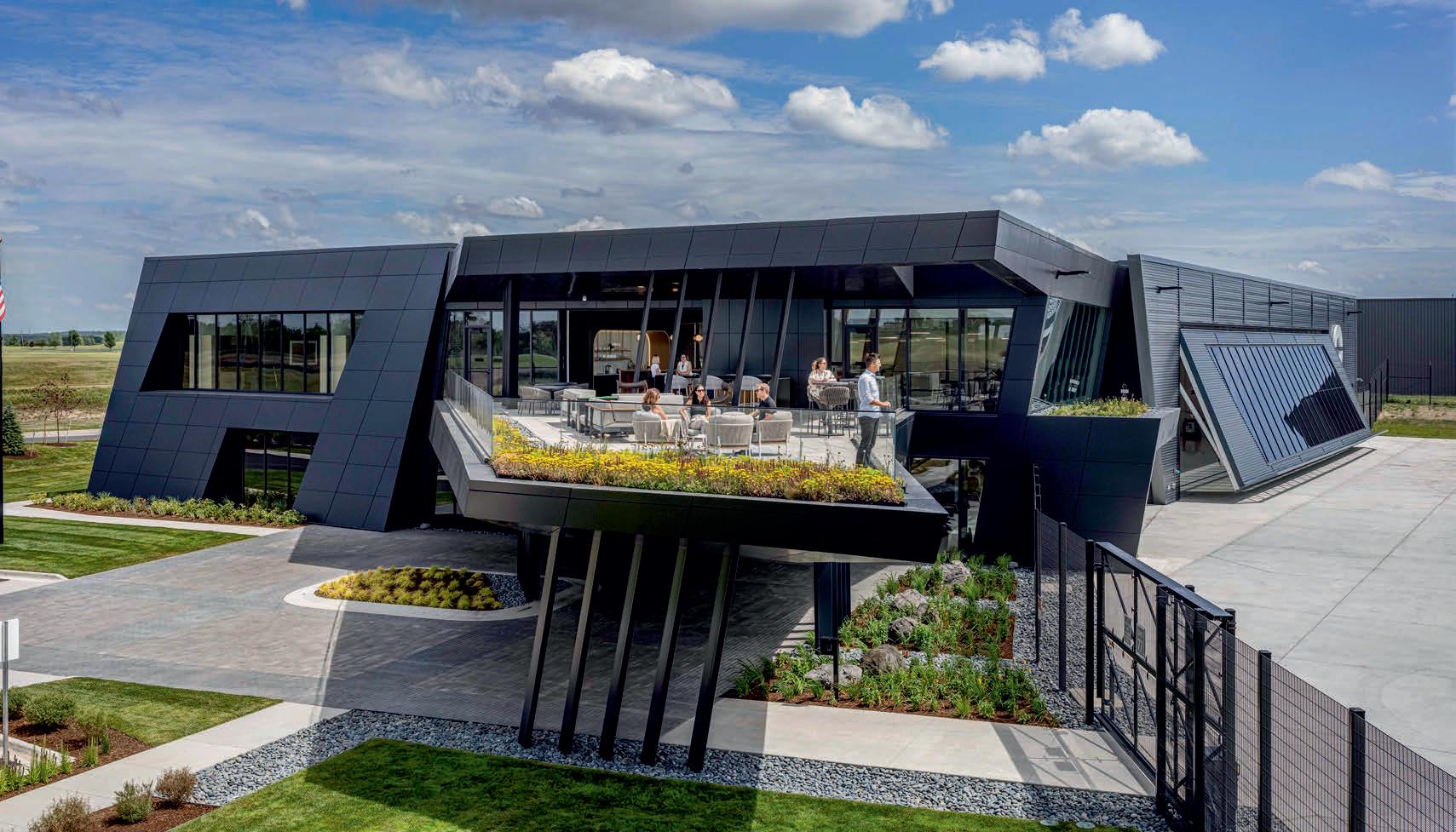


























































































































































































































Equipment that is capable of picking an apple every 3.6 seconds could be answer to growers’ labor wage concerns
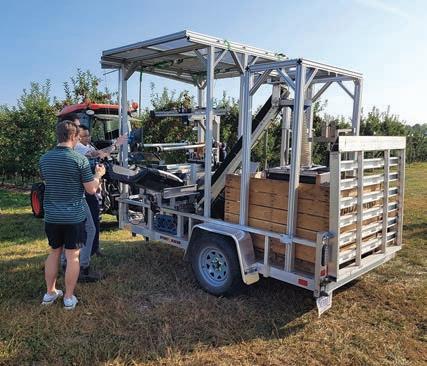
By Abby Poirier
A team of Michigan State University researchers is developing a robotic apple harvester that could o er help to farmers struggling with ever-rising wages for migrant farm labor.
Apple harvesting currently is a labor-intensive process that requires people to hand-pick the fruit, which bruises easily. To date, machines have not been able to replicate that human touch.
Enter Zhaojian Li and Renfu Lu, the inventors of the Automated and Integrated Mobile System, or AIMS. e automated vacuum system removes apples from trees through two independent robotic arms that suction the fruits from the branches before dropping them onto a conveyor belt for sorting. Lu was part of a team that started the project ve

Second
By Kate Carlson
Switch Communications Group LLC is about to complete its second data center building on the former Steelcase pyramid campus in Gaines Township, with plans underway to invest hundreds of millions of dollars more for a third building. Construction on the 312,000-square-foot expansion
on Switch’s campus at 6100 East Paris Ave. SE began in October 2022, adding to the company’s existing 360,000-square-foot data center. e second building, which is “a massive investment,” is expected to open early in the second quarter of 2025, said John Truscott, CEO of public relations rm Truscott Rossman, representing Switch. Construction on a third data center building on site is expected to start “sooner rather than later,” Truscott said, adding that the investment “will be several

By Mark Sanchez
Shareholders at ChoiceOne
Financial Services Inc. and Fentura Financial Inc. will vote in December on whether to approve the $180.4 million merger of the two institutions that came about from an on-again, oagain discussion dating back more than 14 months.
In fact, early merger talks between Sparta-based ChoiceOne and Fenton-based Fentura Fi-


nancial ground to a temporary halt a year ago before resuming in early 2024. If approved, the deal would create the third-largest bank headquartered in Michigan.
ChoiceOne (Nasdaq: COFS) and Fentura Financial (OTCQX: FETM) had started “preliminary discussions about a potential strategic combination” in August 2023. At the time, Fentura Financial directors were considering two separate merger op-
portunities, one of which was with ChoiceOne.
Directors “ultimately determined that a merger with ChoiceOne created the best opportunity to meet Fentura’s long-term objectives based on the two institutions’ similar cultures, strong markets, and the strengths created by combining board and management teams,” according to a proxy statement

Rain, shine, wind or snow, count on us to help you reach your goals.
Our Demand Response Program rewards businesses for shifting when they use energy. In 2023, participants earned over $7.3 million in incentives to reinvest in their operations, just for the summer. Beginning in summer 2025, Demand Response will be available year-round, with incentives paid at the end of each season. That means more opportunities to boost reliability — and your bottom line.
There’s no better season than now to be part of something bigger for your business and Michigan. Space is limited. Scan the QR code or go to ConsumersEnergy.com/yourbusiness today to learn more and enroll for summer 2025 and beyond.
By Kate Carlson
Technology and economic development leaders say landing a global brand like Microsoft Corp. into West Michigan could help propel goals of creating a regional tech hub, pay dividends for talent attraction, and bring an image boost for tech firms competing with the East and West coasts.
Microsoft is examining at least two sites totaling nearly 600 acres in West Michigan for data center projects, comprising 272 acres of
property in Dorr Township in Allegan County, and a 316-acre site 12 miles away in Kent County. The Allegan County property was acquired last month, and Microsoft purchased the former Steelcase Inc. property in Kent County in August for $45.3 million.
The Redmond, Wash.-based tech company worked with local economic development organizations on the acquisitions. While plans for the sites have yet to be presented, excitement is building among local economic develop-
ment and tech leaders about the potential projects.
“As we think about growing the tech economy in our region, this is one piece of the puzzle,” said Randy Thelen, CEO and president of The Right Place Inc., which worked with Microsoft on the Kent County site. “Certainly, (Microsoft) is one of the largest companies in the world and a leading tech company, so for them to fly their flag in the region is incredibly powerful.
See MICROSOFT on Page 67

By Rachel Watson
A judge may rule soon in a case that could decide the fate of shortterm rentals in a scenic lakeshore tourism hot spot near Holland.
Park Township Neighbors, a group of about 120 short-term rental property owners in Park Township, sued the municipality of about 19,000 residents along Lake Michigan more than a year ago over its ban on short-term rentals in residential areas. The case took an unexpected turn last month when the judge hinted he may kick short-term rental permitting decisions back to the township.
The latest development in Park Township’s case comes as tourism-reliant communities across Michigan are struggling with the competing interests of private property rights and the potential unintended consequences of short-term rentals on the local communities.
Along Lake Michigan, Muskegon and Saugatuck recently capped the number of short-term rentals they’ll allow at different percentages of the housing stock depending on the zone district.
Kate Stoermer, president of the Michigan Short-Term Rental Association, said while there have been

more than 9,000 nurses on the east side of the state will be casting ballots this week
By Dustin Walsh
When Spectrum Health merged with Beaumont Health to create Corewell Health in 2022, the West Michigan company stepped into a hornet’s nest.
Hospital worker morale had been swamped by then-leader John Fox under cost-cutting and restructuring measures. Several high-profile physicians left as Fox sought to “right-size” the operations and find a buyer. And the Michigan Nurses Association had been trying to organize nurses at Beaumont Royal Oak since at least 2019.
By the time Corewell was formed, the relationship between administrators, clinicians and staff was broken and, apparently, has not improved.
numerous lawsuits in the state between property owners over shortterm rental disputes, the Park Township case is the only one her organization is aware of between a township and a group of property owners over a zoning ordinance.
Fed up with the number of noise and nuisance complaints from neighbors of rental properties, the Park Township Board of Trustees decided in November 2022 to start enforcing a 1974 ordinance that neither specifically addressed, defined nor authorized short-term rentals. The board concluded that
“Of all the townships in West Michigan, only Park Township continues to refuse to work with homeowners like us, who they’ve told in the past that short-term rentals were allowed.”
Now Corewell faces the third-largest union organizing effort in the nation since at least 2019, behind the organizing of 40,000 workers at Disney World in 2021 and the organizing of 15,500 workers at AT&T Mobility in Ohio, according to an analysis of data from the National Labor Relations Board.
Beaumont nurses claim di-
minishing working conditions before and since Corewell was formed out of the merger, while the Grand Rapids- and Southfield-based health system is contending with rising costs and large payroll from the legacy Beaumont operations.
The result of the vote by 9,168 nurses across eight former Beaumont hospitals this month could trigger one of the nation’s most powerful union takeovers of health care and create a further ripple across the sector in the state.
Months of sparring
The International Brotherhood of Teamsters began a quiet campaign at Corewell East, which is the group of former Beaumont hospitals in Southeast Michigan, roughly 11 months ago, said Kevin Moore, president of Teamsters Joint Council 43.
“These nurses have tried to organize four different times,” Moore said, referencing the MNA’s previous attempts. “It never got to the finish line because it’s a lot of work, that’s a lot

By Mark Sanchez
A Massachusetts executive search firm promised to find Hudsonville-based Shefit Inc. a new CEO using “proprietary, data driven technologies and industry-lauded consultative techniques” and through a “transparent, fact-based” search.
On ZRG Partners LLC’s recommendation three years ago, sports bra marketer Shefit hired the new CEO.
The person didn’t work out, and Shefit “had no choice but to terminate him in September 2022.” The ex-CEO then sued in what Shefit labels a “frivolous lawsuit” that was eventually settled.
Now, Shefit wants ZRG Partners to pay back the $112,500 in fees it was charged for the CEO search, plus much more.
In a federal lawsuit filed late last month in Grand Rapids, attorneys for Shefit claim the executive’s “short tenure as CEO was a disaster” and accuse ZRG Partners of negligence in the search.
“He was not qualified for the job and was actually ill-suited for it,” according to court filings. “His failure/ inability to perform his job as CEO cost (Shefit) millions of dollars.”
In a lawsuit that claims negligent
performance and breach of contract, attorneys for Shefit allege that ZRG Partners failed to conduct a thorough background check on the CEO candidate and “had placed him earlier and placing him again was easy.” Nor did ZRG Partners follow any of the steps in the search processes that it promised to do, according to the lawsuit that claims the company’s work was “materially incomplete and negligently performed.”
When Shefit later looked into the CEO’s background, it “found that there were red flags in his work history that (ZRG Partners) should have discovered.”
“Had (ZRG Partners) performed these steps, Defendant would have discovered the truth about the candidate’s background and would not have recommended him and/or recommended other candidates for (Shefit’s) consideration,” according to the lawsuit.
Court documents do not account for how Shefit came to connect with and retain ZRG Partners in 2021 to conduct the CEO search. Shefit is a sports bra company that was founded in 2013 by Sara Moylan, a former Miss Michigan Teen USA and competitive bodybuilder, and her husband, Bob Moylan.
Sara Moylan did not immediate-

ly respond to an inquiry from Crain’s Grand Rapids Business.
Court documents also do not detail what “red flags” or problems Shefit later learned about the CEO’s background.
When Shefit asked for files related to the CEO search, the company “learned that (ZRG Partners’) work was materially incomplete and negligently performed,” court documents claim.
The lawsuit, filed in U.S. District Court for the Western District of Michigan, requests a jury trial on the claim and seeks a full refund of fees paid for the CEO search and reimbursement for financial losses.
Frank & Frank Law P.C. in Bloomfield Hills represents Shefit in the lawsuit.
Until now, Shefit has been on the receiving end of prior litigation filed by former employees, includ-
ing the CEO whose tenure coincides with the timeframe in the lawsuit against ZRG Partners.
Angel Ilagan, the former CEO of Shefit, filed a lawsuit against the company and the Moylans in October 2022 alleging breach of contract and violation of the Whistleblower Protection Act. Ilagan claimed he was fired in retaliation on Sept. 7, 2022, after the Moylans learned he planned to report alleged tax evasion by the company to the Internal Revenue Service.
In a separate case, Shefit’s former chief marketing officer, Michelle Zeller, sued the company for sexual harassment and discrimination and retaliation in violation of Michigan’s Elliott-Larsen Civil Rights Act.
Court records show the Ilagan case was dismissed in October 2023 with prejudice. The Zeller case was dismissed in March 2023. A court database did not indicate whether there was an out-of-court settlement in either case.
As well, Aronsson Group, owned by Detroit native Jeffry Aronsson who went on to be a New Yorkbased fashion investor, sued Shefit in Kent County 17th Circuit Court in February 2022 in a shareholder dispute. The case was dismissed with prejudice in October 2022.
By Mark Sanchez
A deal with Ferris State University women’s basketball team will allow Mitch Lyons’ retirement planning firm to “dip our toe” into using college athletes to promote his business.
Under the contract with Ferris State University’s women’s basketball, Mitch Lyons Wealth LLC will pay players $500 a month during the upcoming season. In return, players will create “fun” weekly content that the firm can use on its social media platforms.
The contract with the team represents a new avenue for Lyons both to market the business and highlight and support student athletes through a name, image and likeness (NIL) deal by creating what he calls “Team MLW.”
The deal was made possible through a three-year-old rule change for college athletics that allows athletes to use their name, image and likeness to generate income.
“We’re excited to kind of dip our toe into the NIL space with the Ferris State women,” said Lyons, a former college and professional football player whose daughter plays basketball at Ferris State.
“I’m trying to stay ahead of the curve. The financial industry tends to be a little stodgy at times. Everybody looks and feels the same and I’m just trying to be different,” Lyons said. “What we put out on our company pages and what they’ll create, I’m just looking to cast a bigger net and get exposure out there.”
The ability to contract with a col-
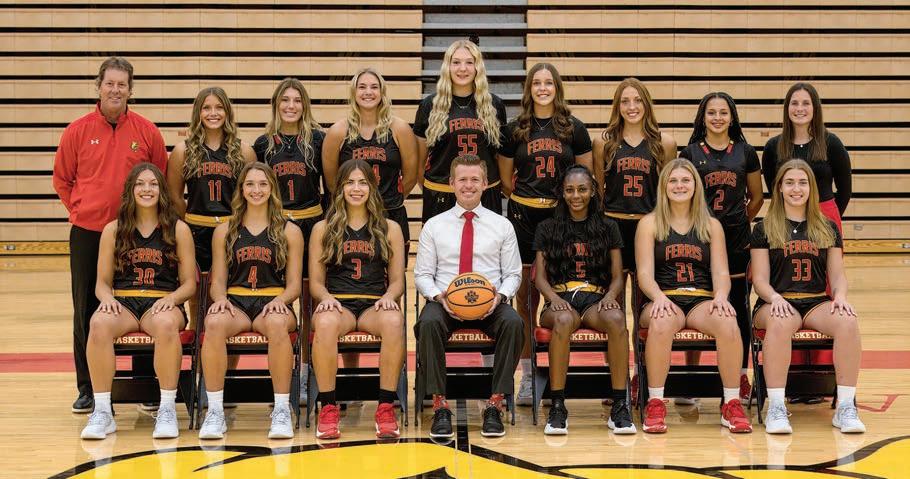
lege sports team came from the NCAA’s July 2021 decision to change a rule to allow student athletes to use their name, image and likeness to generate income. The change created an emerging and growing market.
The NIL platform Opendorse estimates that the market started at $917 million in the first year and grew to $1.17 billion by June 2024. Opendorse estimates the NIL market will expand further to $1.67 billion by June 2025 and to $2.25 billion in 2026 following a proposed settlement of a lawsuit that, if approved, allows universities to pay athletes directly.
Football dominates the NIL market with 72.2% of all activity, fol-
lowed by men’s basketball at 21.5%. Women’s basketball accounted for 2.3% of NIL activity during the 2023-24 fiscal year, according to Opendorse.
Nearly one-third of all commercial NIL activities involved social media posts by student athletes.
Lyons first approached Ferris State’s athletic director, Steve Brockelbank, about a potential NIL deal with the Bulldogs’ women’s basketball team. The parties then worked out a deal, which they announced last month.
“This partnership represents a major investment towards our student-athletes from Mitch Lyons Wealth,” Brockelbank said in the announcement. “This initiative is
mutually beneficial for both Ferris State women’s basketball and Mitch Lyons Wealth. We’re extremely grateful for the belief in our student-athletes and the value they have placed on our program.”
Mitch Lyons Wealth will measure the success of the NIL deal by how well the content the players create drives traffic for the firm’s social media platforms, and how well that results in new clients that originate from an expanded social media presence.
The firm has already been contacted by two potential new clients who reached out after the deal was announced, Lyons said.
If the move into NIL works out as Lyons hopes, he’ll renew the agree-
ment with the Ferris State women’s basketball team “at a higher level.” Lyons said the firm hopes to replicate it with other colleges and to see other companies try it.
“I want to help them and by helping them, I think it’s going to help us. Partnering together could be some fun, but I also want it to make financial sense. If it’s successful, then we’ll continue this and grow it,” he said. “I’d like to, longer term, if we can make this work, take it around the country because we work around the country. I think we could do it with some other schools around the country and build that out.
“But this is kind of the test case. We’re dipping our toes in the water, and I hope it encourages other businesses to step up. I’d love to be on the leading edge of, hopefully, more businesses stepping up and helping women’s sports through NIL packages or deals.”
A West Michigan native, Lyons played football at Michigan State University and played for seven seasons as a tight end in the NFL with the Atlanta Falcons and Pittsburgh Steelers.
In working out a deal with Ferris State’s women’s basketball team, Lyons aligned his firm with a winning program.
The Bulldog women’s basketball team won Ferris State’s first NCAA Division II Midwest Region Championship last season and earned a berth in the Final Four. Ferris State began the 2024-25 season at the Division II Conference Commissioners Association Tipoff Classic on Nov. 2-3 in St. Joseph, Mo.
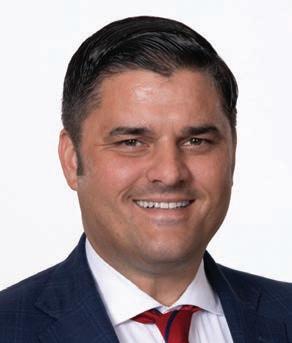
PAUL M. MERSINO
Paul M. Mersino, Butzel President and CEO, sets his primary focus on continuing the firm’s tradition of excellence for clients.
And what about your workforce? How does Butzel recruit and retain young talent?
Butzel has a long legacy. Being in business for 170 years is impressive. How is Butzel evolving to stay relevant and ahead of the rapid pace at which industries and businesses are developing?
Our attorneys recognize that staying relevant means continually evolving alongside the industries we serve. Detroit’s business community faces new challenges and opportunities, particularly in the automotive sector. Our automotive practice has been actively guiding clients through this transition, helping them navigate regulatory changes, supply chain disruptions, and the integration of new technologies.
Founded in 1854, Butzel is one of the oldest law firms in Michigan and one of the oldest continually operated companies of any kind in Detroit. Butzel has been involved in some of the biggest business deals in Michigan, including incorporation of General Motors and helping the Dodge Brothers to leave Ford to start their own company. The firm remains immersed in helping to shape businesses today. Learn more about
biggest mergers and acquisitions within the industry; and today has assisted startups, foreign corporations, private equity firms, and legacy clients as they grow, invest, acquire, and merge while they continue to evolve with the changing industries. We continue to evolve with the City of Detroit and the greater region.
Why is investment in these areas so important for Detroit?
Detroit has always survived and thrived on being innovative. For the region to thrive there must be a robust flow of capital. Now more than ever private equity investment, venture capital funding, angel investors, and
“Excellent client service is our true north star in all we do. And we will continue providing that high caliber service to businesses big and small.”
Beyond the automotive sector, cybersecurity, data privacy, and artificial intelligence are on the minds of every business. Our cyber practice is at the forefront of advising companies on how to protect sensitive information and maintain compliance in an increasingly connected world. We’ve established a dedicated group focused on AI and emerging technologies, providing counsel on the legal and ethical implications of deploying these innovations in various sectors.
Butzel began as an admiralty law firm; evolved with the growing auto industry, working on some of the
mindful business acumen is of the utmost importance. Businesses need to be ready for anything and know when they are well situated to acquire—or be acquired. Private equity and VC in particular are going to continue to play a critical role in the flow of new business, new ideas, and technologyfocused success for Detroit’s driving industries. We know because our Corporate and M&A attorneys are working these deals and we feel the sense of urgency to not only make sure our clients have the resources they need in their industry, but also the strategic partnership they need in their legal team.
The next generation of legal minds brings energy and perspective that we haven’t seen before. We’ve recently been named one of Crain’s “Best Places to Work” for the fourth year in a row. We really take pride in that award. We’re committed to offering opportunities and work experience that challenge young talent. We know the younger generation values inspiration and relationships in a new way. They want to work someplace that fosters collaboration and innovation. Our growth trajectory is one that we think appeals to these future leaders of the legal industry. Our attitude towards continuously evolving, and our relationships serving the most innovative clients, positions us to continue to recruit and retain the very best in our field.
With all the growth the firm is experiencing, including opening offices across the state, what does that mean for clients in Detroit and the surrounding Metro region?
Our recent growth only underscores our deep commitment to all things

Detroit. We’ve been in Detroit for 170 years. Our presence here is central to our firm’s legacy. We believe in the future of Metro Detroit and that our statewide reach is just one more way we can serve all of our clients.
If you had a crystal ball, what would you predict is in store for Butzel in the next 170 years?
Butzel’s future is bright. We’ve always been very serious about innovative business and believe that staying nimble and forward-thinking is the way we can best stay relevant, successful, and of service to our clients in solving their problems and achieving their goals. Our current success was built over 170 years on the shoulders of brilliant men and women. Today’s Butzel team
strives to continue that strong foundation for future Butzel. By continuing to relentlessly pursue excellence in the service of our clients, and nurturing the culture of trust and collaboration that we’ve established, I’m confident Butzel will remain a leader in legal innovation and a trusted partner for industry giants and startups still finding their footing—for the next 170 years.



We exist to provide excellent service to help our clients achieve their goals and solve their problems. For more than 170 years, we’ve remained true to our Core Values: Excellence. Drive. Trust. Teamwork. Come experience the Butzel Advantage.
By Elizabeth Schanz
The nonprofit that has long advocated for passenger rail service connecting northwestern and southeastern Michigan is pushing forward with a new study that aims to convince state officials and others that the project is worth pursuing.
The North-South Passenger Rail project proposes a passenger train route that connects northern Lower Peninsula cities like Traverse City and Petoskey to Ann Arbor and Detroit.
Traverse City-based Groundwork Center for Resilient Communities, along with an Up North transit authority, recently announced that it selected a consultant to lead a new yearlong study that will create a clearer picture of potential ridership and demand, a potential route, and the costs and benefits of the idea more than a decade in the making.
With an anticipated completion date of late 2025, the study could represent a tipping point and firmly answer questions about whether the project is both financially and operationally viable, project backers say.
“So this is the big one, this is the really big deal,” Carolyn Ulstad, transportation program manager for Groundwork Center, said of the new study launched last month. “You know, a feasibility study is a feasibility study. But this one is like the creme de la creme, like the one that you’re looking for before you can actually create a service.”
The study is led by international consulting firm WSP, which has nine Michigan offices. It will analyze the condition of the existing state-owned tracks along the route, total costs and benefits, potential management and governance structures, and potential routes and service options.
One more-than-casual observer is the state of Michigan, which will closely watch the findings to help
determine whether the project is necessary or fantasy.
“Rail is a priority (for the Whitmer administration), and the North-South project could become one of the top projects planned for development if the study goes well,” said Zach Kolodin, chief infrastructure officer in Gov. Gretchen Whitmer’s Michigan Infrastructure Office.
Kolodin added that the state avoids picking a “favorite child” when it comes to roads, rail and public transit infrastructure projects. While infrastructure safety improvements always take first priority, the state continually plans for expansion projects that “move forward and improve the quality of life,” he said.
But it’s still unclear whether the North-South Railway Project fits that bill, and if enough resources are available as it competes with other rail expansion requests.
While the Michigan North-South Passenger Rail project has been in development for about a decade, Ulstad — who often fields questions about why it’s taking so long to advance — said the timeline is typical for infrastructure projects that are required to have multiple rounds of research and planning.
Groundwork, formerly known as the Michigan Land Use Institute, around 10 years ago initiated the idea for a passenger railway between Traverse City and southeast Michigan. The idea formerly known as A2TC — for Ann Arbor to Traverse City — sought to reestablish passenger rail service on an existing railroad corridor.
“We’ve had trains running along different parts of this (North-South Railway) route over the years, but running at fairly low speeds and not meeting the modern service standards for passenger rail service in the United States,” Kolodin said.
“The project will have to address both the ability of trains to run at higher speeds and the condition of the tracks that are not currently
serviceable.”
In 2018, the nonprofit and its partners completed a $120,000 feasibility study that looked to see if a passenger railway was even possible. Now referred to as Phase 1, that feasibility study found that reestablishing rail service along the NorthSouth rail has the potential to attract 1.5 million riders and generate $100 million in revenue by 2040. Supporters also say the project would offer another transit option for people who may not own vehicles, and connect rural residents with more services, including health care.
One of the biggest findings from the 2018 study was that the existing tracks on which the passenger railway could run are state-owned, which makes a passenger line more feasible. State-owned corridors are a rarity, and often lines owned by freight companies make it difficult to get service running, Ulstad said.
With a passenger line potentially falling under an ownership structure that leases to freight companies, shipped goods would move through the line less frequently and create fewer conflicts, Ulstad added. She explained that when railroad lines are owned by larger, for-profit shipping companies, new rail services would have to purchase capacity, which can be a barrier to launching new services.
“I really think if we didn’t have state ownership on these tracks, our office probably wouldn’t have pursued it as hard,” Ulstad said. “The northern Michigan tracks are still owned by the state of Michigan, so the state can decide how the tracks should be used based on the needs and desires of people and businesses in Michigan.”
While Michigan owns the tracks, the state doesn’t provide any train service currently, leaving the management structure for the NorthSouth railway unclear. The latest study “will look at multiple options for how to best set up the opera-

tions and make a recommendation on what would likely fit this rail service the best,” Ulstad said.
Capital investments and costs for upgrades and operations pose the biggest question in starting passenger rail. Operations often require some funding from the state, but other funding sources would be needed to sustain the service longterm, Kolodin said.
Nearly six years after the Phase I study, Groundwork pushes forward in its effort to compile a plan for the North-South Railway, partnering with the Cadillac/Wexford Transit Authority (WexExpress) and choosing a consultant to conduct the Phase 2 study.
As a state-affiliated transit organization, WexExpress was able to obtain $2.3 million in grants to advance the plan, with $1 million from the Michigan Department of Labor and Economic Opportunity and $1.3 million from a Rebuilding American Infrastructure with Sustainability and Equity (RAISE) grant from the U.S. Department of Transportation.
“If you are to get a RAISE grant, it shows that that department sees this (the plan) as viable. They’re not going to be putting out money to things that they don’t think could
be possible. So I think that’s really valuable,” Ulstad said.
WSP was selected after an RFP process because of its experience on rail projects and involvement in Michigan, Ulstad said. WSP has nine Michigan locations including offices in Detroit, Traverse City, Lansing, Holland and Novi. Elsewhere, the firm has consulted for several years for the Virginia Passenger Rail Authority, including on program management, governance structure and corridor planning — similar issues it’s studying in Michigan.
“This is a project that has a great vision and really could meet the needs of the times,” Ryan Hoensheid, WSP’s engineering lead, said of the Michigan North-South proposal. “It’s very interesting with regards to the breadth and depth of the project.”
The Phase 2 study officially started on Oct. 14. WSP is responsible for in-depth data collection that would serve as the basis for what the Federal Railroad Administration calls a Service Development Plan for the Michigan North-South Passenger Rail project.
The Service Development Plan is essentially a “business plan” for the project, Ulstad said.
By Mark Sanchez
Trinity Health intends to appeal a federal judge’s decision that ordered the health system to recognize union representation for hospital employees in Grand Haven.
In an Oct. 29 statement to Crain’s Grand Rapids Business, Trinity Health Michigan said the Oct. 23 decision from U.S. District Court Judge Robert Jonker in the Western District of Michigan was expected. The health system will appeal the ruling to the U.S. Sixth Circuit Court of Appeals in Cincinnati, Ohio.
As the appeal proceeds, Trinity Health will obey the judge’s ruling.
“During this legal process, Trinity Health Grand Haven will com-
ply with the decision and resume bargaining with the union in good faith. We are actively discussing dates,” Trinity Health Michigan said in the statement. “Trinity Health Michigan remains undeterred in our commitment to remain true to the majority of Trinity Health Grand Haven colleagues who do not wish to be represented by this union and defend their interests to the best of our ability, under the law.”
Judge Jonker issued a preliminary injunction late last month at the request of the National Labor Relations Board’s regional director in Detroit that ordered Trinity Health to immediately recognize union representation for more than 180 hospital employees in Grand Haven and to negotiate in

good faith on a contract.
Trinity Health Grand Haven withdrew recognition from SEIU Healthcare Michigan as a bar-
gaining unit in August 2023, prior to the NLRB counting the ballots in the decertification vote that the union won. The health system cit-
ed a letter that several employees signed and submitted to management at the time saying they no longer supported the union. Despite the union winning the decertification vote, Trinity Health has declined to restore recognition of the bargaining unit.
The NLRB’s regional office in Detroit sought the preliminary injunction as a trio of unfair labor practice charges against Trinity Health Grand Haven proceeds in a single, consolidated case.
An administrative law judge in the unfair labor practice case ruled in September that Trinity Health Grand Haven violated the National Labor Relations Act and ordered the health system to restore recognition of the bargaining unit in Grand Haven.
By Elizabeth Schanz
Wolverine World Wide Inc. has appointed a new executive with deep retail experience to lead its Active Group of brands as the Rockford-based footwear and apparel marketer advances its turnaround plan.
Wolverine World Wide (NYSE: WWW) officials on Oct. 28 announced that Susie Kuhn was appointed president of the company’s Active Group, which consists of Merrell, Saucony and Chaco.
Kuhn will lead the Active Group’s brand strategies, go-to-market plans and commercial performance to continue building “a new company for the future,” Wolverine President and CEO Chris Hufnagel said in a statement.
“We’re excited to welcome Susie to the team and are confident that her diverse, global experience working with leading brands — coupled with her collaborative, results-driven leadership style — will help drive our Active Group brands and the entire Company forward,” Hufnagel said.
Kuhn will report to Hufnagel and
“We’re
excited to welcome Susie to the team and are confident that her diverse, global experience working with leading brands — coupled with her collaborative, resultsdriven leadership style — will help drive our Active Group brands and the entire Company forward.”
Chris Hufnagel, Wolverine President and CEO
serve on the company’s executive team.
Kuhn’s appointment comes amid what executives have characterized as a “turnaround” plan for Wolverine World Wide.
Under Hufnagel’s leadership, the company over the past year launched a three-phase plan involving “stabilization, transformation and inflection.” The final phase includes a heavy emphasis on customer-driven branding, Crain’s Grand Rapids Business reported in January.
One part of the plan is the company’s new “center of excellence” called The Collective. The center, which will report to Kuhn, uses customer insights, trends and innovation to drive growth for Wolverine’s brands.
“The Merrell, Saucony, and Chaco brands are recognized and loved by consumers all around the world, and The Collective is an industry-leading resource that will help
these brands forge even stronger connections with their consumers,”
Kuhn said in a statement.
“I look forward to building on the momentum that’s been created and accelerating these brands’ and the Company’s growth into the future.”
Kuhn has more than 25 years of experience in the footwear, apparel and retail industries. Kuhn previously worked on global brand building while in senior leadership roles at Foot Locker, Nike, Converse and URBN, a port-
folio of global consumer brands including Urban Outfitters, Anthropologie and Free People.

Over the past 18 months, Wolverine World Wide has initiated a variety of changes at the company. In August 2023, the company ousted former CEO Brendan Hoffman, who joined Wolverine as president in September 2020. Hufnagel, who has been in various leadership roles with Wolverine since 2008, assumed the CEO role.
Following the leadership change,
Wolverine consolidated all of its U.S. operations to Rockford in August 2023 and completed a variety of divestitures. Those include the $130 million sale of the Sperry brand to New York-based Authentic Brands Group Inc., which has a portfolio including Forever 21 and Reebok.
Meanwhile, the company has reported financial improvement in recent months. In reporting second-quarter earnings in August, Wolverine raised revenue guidance for the year to $1.71 billion to $1.73 billion in sales from ongoing business. Wolverine previously project-
ed annual sales of $1.68 billion to $1.73 billion.
The company reported $425.2 million in second quarter sales with $15.6 million in net income. Second quarter sales exceeded expectations of $410 million for the period and had increased 7.6% from the prior first quarter.
“We continue to strengthen our brand’s positioning in the marketplace with improved product pipelines, more effective demand creation initiatives and better brand management,” Hufnagel said in an August conference call with analysts to discuss quarterly results.










We are thrilled to announce that we have been ranked #1 in Member Satisfaction Among Commercial Health Plans in Michigan and swept all eight dimensions in the 2024 J.D. Power Study. This is a testament to our unwavering commitment to our members and the communities we serve.
We’re ready to help serve our members. bcbsm.com/employers






#1 in Member Satisfaction Among Commercial Health Plans in Michigan
By Rachel Watson
The executive who led Amway Corp. for more than five years has transitioned to living full time in Florida and is selling his home on Reeds Lake in East Grand Rapids.
Milind Pant and his wife, Amrita Pant, listed their 7,100-squarefoot, four-bedroom, five-bathroom home on 1.58 acres on the south shore of Reeds Lake on Oct.
11 for $6.6 million.
Ken Grashuis, a broker with Greenridge Realty of East Grand Rapids, has the listing.
Pant was the first non-family CEO of Amway since its founding by Richard DeVos and Jay Van Andel in 1959. He led the company from January 2019 through September 2024 and was succeeded by longtime Amway executive Michael Nelson in September. The

company did not give a reason for Pant’s departure.
Pant’s exit came after consecutive years of declining sales for Amway. The direct-selling giant recorded $7.7 billion in sales for 2023,
a 5% decline from revenues of $8.1 billion in 2022. The company recorded $8.9 billion in revenue in 2021, down from Amway’s peak revenues of $11.8 billion in 2013.
The Pants, who declined to be interviewed for this report, acquired the East Grand Rapids estate for $4 million from DP Fox Ventures President Diane Maher and her husband, Damian Maher, in May 2019.
more than 100 feet of water frontage, and a luxury beach house with a full kitchen, bathroom, outdoor shower and wraparound patio.
“You have the additional fourcar garage down at the water, plus the beach house, so it’s perfect for somebody that really likes to entertain,” Grashuis said. “Plus, it would be great for somebody that had a car collection.”


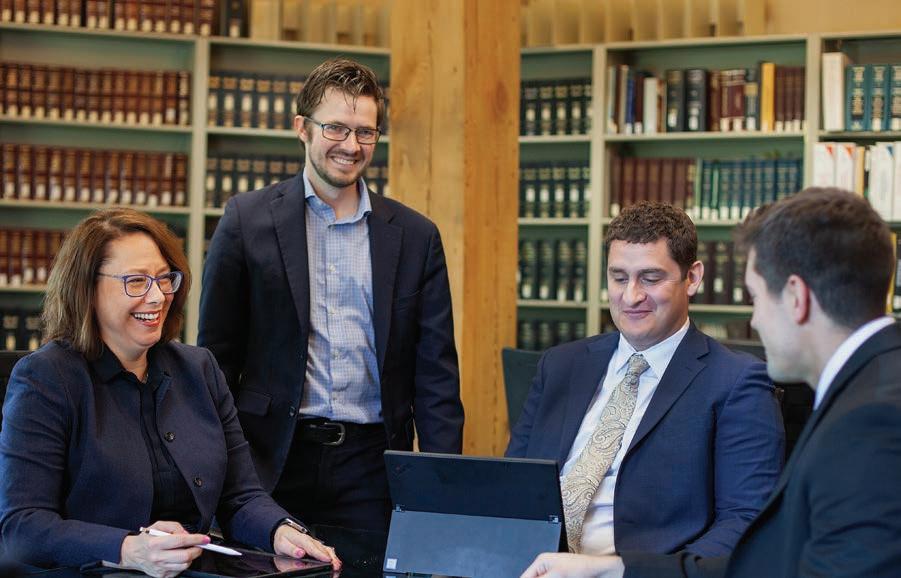
The house, built in 1960, is currently the highest-priced residential offering in Kent County and would be the highest-dollar sale in Grashuis’ career so far, he said.
Grashuis said the Pants’ former residence stands out for several reasons.
“The thing that makes the property special is both the size of the site, its location on one of the most prestigious streets in East (Grand
The main house also includes an expansive multilevel back patio system with a hot tub, and a walkout basement with a bar, family room and gym.
Per the listing, the house offers “unparalleled views” of the lake from every room. Maher and her husband renovated the house during their ownership tenure between 2012 and 2019, Grashuis said. The prior owners before that, John and Kelly Papp, added onto the original footprint to enlarge the home.
The gourmet kitchen features professional-grade appliances, including a double-stacked oven, extra-large refrigerator and range, and a wine cooler.
Rapids), then it expands down in the direction of the water with all this privacy, a beautiful tree canopy, manicured landscaping and this whole other area on the waterfront.”
Situated on one of the wealthy suburb’s most exclusive streets, the property features nearly 200 feet of road frontage, a half-circle drive, a brick paver auto court and four-car attached garage, as well as a sprawling manicured front lawn.
A tree-lined hill on the lake side of the house slopes down to the waterfront, where the property boasts a second four-car garage, a private boat ramp and dock on
Large main-floor living areas, including the great room, sun room and dining room, offer plenty of space for entertaining. The primary suite is located on the main floor and features a huge lakeside bedroom, luxury bath and custom walk-in closet.
Upstairs are three more bedrooms and two baths, plus an office that could be kept as-is or converted to a fifth bedroom.
Grashuis said in a location where plenty of wealthy buyers are acquiring property to tear it down and start over, this house offers an advantage.
“It’s basically turn-key,” Grashuis said. “… People can simply move in and start enjoying it.”

The 2024 Crain’s Grand Rapids Business Giving Guide, produced by Crain’s Content Studio, highlights the stories of local nonprofit organizations that are driving positive change in our community. The participants featured in this guide have sponsored its creation, providing them the platform to share their mission, vision, and the impactful initiatives they are championing. Discover their efforts and explore their plans for the year ahead. Connect with Crain’s Content Studio to learn more.
S2. Welcome/Member List
S3. LMCU
S4. Keynote/Winners
S5. Hopkins
S6. Winners Continued
S7. AFP/Lawson
S8. Alzheimer’s Association
S10. Barnabas Foundation
S12. D.A. Blodgett - St. John’s
S14. ICCF Community Homes
S16. Make-A-Wish Michigan
S18. Michigan CASA
S20. Pine Rest Foundation
S22. Ronald McDonald House Charities West Michigan
S24. Well House
S26. Beacon Hill Foundation
S27. Catholic Charities West Michigan
S28. Catholic Foundation of West Michigan
S29. Faith Hospice
S30. Grand Rapids Community College Foundation
S31. Grand Rapids Symphony
S32. Hand2Hand
S33. Junior League of Grand Rapids
S34. Mary Free Bed Foundation
S35. Paws with a Cause
S36. Senior Neighbors
S37. Wedgwood Christian Services
S38. YWCA West Central Michigan
S39. Thank You
For information about the Giving Guide, contact Jill May, jill.may@crain.com.
Dear Members of the Association of Fundraising Professionals,
As we look ahead to the coming year, I want to take a moment to recognize the incredible journey we’ve shared as fundraising professionals. is past year has once again shown the profound in uence we can have, not just in raising critical funds, but in shaping the future of the organizations and communities we serve. Our combined e orts continue to demonstrate that we are much more than fundraisers—we are changemakers.
e challenges of the last year may have been great, but the commitment, creativity and compassion of our community have proven even greater. Whether it was adapting to new fundraising trends, navigating economic uncertainties or embracing opportunities for innovation, we have remained steadfast in our mission to create positive and lasting change.
e landscape of philanthropy continues to shi , and we have met this with resilience and a proactive spirit. By embracing digital tools, reimagining
JoAnn Abraham
Allison Achenbach-Kramer
Trent Allen
Emily Ambs
Beth Banta
Donald Bedney
Colette S Beighley
Salina Bishop
Mrs. Cathy Lynn Blackburn
Michael Bohnsack
Sarah Burgess
Sarah Caldwell
Alisa J Carrel
Scott Christie
Michelle Covington
Shannon Dale
Joanna Donnelly Dales
Ms. Valerie Davis
Mr. Steven Geoffrey De Polo, MA
Bob Dekker
Ms. Jocelyn Dettloff
Mrs. Ashley Diersch
Rosemary Dishaw, BA
Nicholette Driggs
Mrs. Laura Katherine Dulay
Tiffany Dupont
Teresa Marie Durham
Susie Dutcher
Louise Edison
Megan Eppley
Megan Ernst
Emily Elizabeth Evers
Stacy Farmer
Greta Faworski, CFRE
Kelly Fitzgerald
Lyric Floria
Angela Jo Freier
events and strengthening donor relationships, we have helped organizations not just survive but thrive in an evolving world.
And, amid the uncertainties of the past year, one thing has remained constant: our ability to inspire hope and generosity. rough powerful storytelling and authentic connections, we have encouraged donors to continue giving and made philanthropy an essential part of their lives.
ank you for your tireless dedication to this important mission. Your hard work is seen, appreciated and deeply valued. Together, we will continue to transform lives, communities and the world through philanthropy.


ASHLEY DIERSCH president
Andrew Nichols French
Ms. Kate Frillmann, CFRE
Ms. Alexandra Galla
Anna Goddard, CFRM
Darrow Goodspeed
Elizabeth Graham Cherell Granger
Eric Greene
Taylor Green eld
Ken Greschak, CFRE
Danielle Guinsler
Arianne Hall, BA
Susan Halteman
Sue Hamm
Wendy Hammond
Erin Harrison
Jonathan Helder, CFRE
Denise Hillen
Joanna Lynn Hogan
Mrs. Sonya Hollins
Keith Hopkins, CFRE
Sarah Hotchkiss, CFRE, MBA
Sue Huggett
Catherine Hutchins
Dr. Heather Jach
Melissa Janes
Cheryl E Jereczek
Brooke Jevicks
Samantha Johnson
Cindy Johnson
Al Juarez
Brad Kaufmann
Sharlene Kipfer
Amy Elizabeth Knape, CFRE
Ms. Rachael Knapp
Ashley Koop
Mark A. Kraus
Laura Kruisenga
David Lee
Sandi Lehky
Keely Lehr, CFRE
Mr. James J. Lewis, Jr, PHD
Andy Lofgren
Kim Loftus, CFRE
Mrs. Kristin Long, CAP, CFRE, MPA
Stacie Longwell Sadowski,
CFRE, MS
Lisa Lund
Donald Mackenzie
David Madiol
Ms. Rayline Manni
Haley Marcos
Amanda Matthews
Pattijean McCahill
Carrie McCulloch
Dan Joseph McKean
Mr. Patrick Gene McLaughlin, BA
Han Meadway
Scott Meekhof
Jenna Mencarelli
Donna Messina
Beth Meyer-Kraff
Allyson Mills
Alyssa Morillo Scheidt
Mr. Kevin Michael Nelson
Maria Newhouse
Teresa Ann Newmarch, CFRE, MPA
Aubrey Norg
Deborah O’Donnell
Mr. Collin Ove Olsson
Jodi Overman, MS
MaryLee Pakieser
Jordan Palladino
Ms. Daniela Pena
Ms. Sheila Penrod
Colleen Perdok, BA, MPA
Kevin Peterson
Tim Pietryga
Cile Plumstead
Erin Poindexter
Stephanie Prall
Phil Pratt
Abigail Punt, BA
Jenelle Quinlan
Angie Quinn
Michelle Rabideau, CFRE
Ms. Christine Radtke,
Abby M. Reeg, CFRE, MA
Teresa Anne Reid, BA
Amy Reimann, CFRE
Mary A. Remenschneider
Ryan Robinet
Mary Robinson, MA
Monica Ruser
Jacob Sabourin
Ms. Susan Samaniego, CFRE, MA
Christina Scarpino
Gina Schulz
Mr. Jonathan Scouten
Elizabeth Semaan
Stephanie Sheler
Daryl J Sieplinga, CFRE
Navdeep Singh
Brad Smith
Megan Smith Jovanovic
Maggie Smitt
Stefanie Ann Snyder, BA, MPA
Emily Spranger
Ms. Nikki Statler
Mr. Chelle Steffens
Amy Stuursma
Melissa Summers
Mary Sumners
Kyle Szucs
Mr. Craig Thelen
Kori Leeanne Thompson, BS,
MBA
Jamie Tietz
Aaron Turner
Erin Van Egmond
Julia Van Fleet
Mr. Greg Vander Goot
Nick VanderLaan
Emily VanKleeck
Xavier Verna
Ms. Holly Visser
Libby Wahlstrom
Ms. Michelle Walk
Ms. Winni Walsh
Larry Warkoczeski
Claudine Weber
Dr. Katelin Webster
Rachel Webster
Lisa Wideman
Dustie Wiggins
Ellie Wilcox, MA
Sharon Willis
Mr. Steve Windom
Kristie Winslow
Mr. Robert John Woldhuis
Mr. Erik Wolenberg
Desiree Worthington
Clare Marie Worthington, MA
Lynn Yntema
Jane Zylstra








A message dedicated to those who are dedicated to community.





This National Philanthropy Day, LMCU wants to thank all our local heroes who selflessly work for — and with — nonprofits to help address community needs of all kinds. You inspire us to do the same, as we strive to take action that makes an impact in the places we all call home.
The Association of Fundraising Professionals West Michigan Chapter hosted an insightful discussion on the evolving landscape of corporate social responsibility (CSR) and philanthropy at National Philanthropy Day 2024, led by a panel of industry leaders who are shaping impactful community partnerships. Panelists explored what makes a successful partnership, shared their organizations’ approaches to corporate giving and offered valuable tips for nonprofits seeking to
MODERATOR PANELISTS

Crain’s Grand Rapids Business

DTE Energy Foundation and Corporate Citizenship
build lasting, meaningful relationships with businesses. Topics included aligning mission-driven strategies, engaging employees in community efforts, and fostering mutual trust with corporate partners. This dynamic conversation provided key insights into how businesses across sectors are making a difference through thoughtful and strategic philanthropy.



relations Lake Michigan Credit Union
Outstanding Youth in Philanthropy
Brooklynn Schmuker
Rockford High School student and community volunteer

Brooklynn Schmuker is a senior at Rockford High School, where she serves as president of the Student Council and actively participates in numerous clubs, including National Honor Society (NHS), Interact and Humane Society Club, where she is co-president. She is also the vice president of the Baking Club and a passionate member of Students Demand Action and Women’s Awareness and Empowerment.
Brooklynn’s dedication to her community shines through her extensive volunteering efforts, which she has pursued for several years. She grew up in Rockford, Michigan, alongside her hardworking mother, brother and sister. Her passion for helping people and making connections in the community has been a constant source of inspiration for her.
In the future, Brooklynn hopes to attend Stanford University and major in pre-law. She is driven by her desire to make a significant impact on the communities she will be a part of and is committed to giving underrepresented individuals the voice and representation they deserve.
Outstanding Volunteer Fundraiser The Grateful Team Make-A-Wish West Michigan

The Grateful Team is a dedicated fundraising and community group supporting Make-A-Wish Michigan. Their primary project is the annual Wish-A-Mile Bike Tour, featuring 300-, 200- and 100-mile options for riders. This event is Make-A-Wish Michigan’s largest annual event! Formed in 2023, The Grateful Team started with 11 members and quickly grew to 37 members in 2024. Their unrelenting commitment to comradery and fun continues to inspire new members and, together, the group raised over $110,000 this year alone! United by a shared passion for granting life-changing wishes to children with critical illnesses, The Grateful Team models the power and joy of working together to make a difference in the community! Looking ahead, the team plans to expand their annual calendar of projects, recruit more members and continue to bring hope and confidence to children when they are needed most.
• Cir C le t he Ater • Community Found Ation F or m uske G on County • e du CAtion d Ation o F Greenville • Family and Children s ervi C
ent County • Fulton s treet Farmers m arket • Fl At r iver o utre AC h m inistries
Geor G etown l ittle l e AG ue • Gild A’s Clu B , Gr A nd rA pids • Glen oA ks Community le G e • Grand r apids Community Foundation • Gr A nd t r Averse Children’s G A rden
Gr A nd t r Averse ConservAtion d istri C t • Gr A nd t r Averse r e G ion A l Community d Ation • hAB itAt F or h um A nity— k ent County • h a C kley p ubli C l ibrary • h oll
d e AC on’s Con F eren C e • h ospi C e o F h oll A nd • kA l A m A zoo Are A A CA demi C A C hieve ment p
sA u GAtu C k-
verse
Zoey Goehring was born and raised in Grand Rapids, graduating from Forest Hills Eastern High School in 2019. In her free time, she enjoys spending time with family and friends and taking walks with her beloved pup, Darby. Zoey has been involved with the Humane Society of West Michigan for most of her life, starting as a volunteer when she was just 10 years old. It was only natural for her to begin her career at HSWM, though she couldn’t have anticipated how fulfilling it would be.
Zoey started as an animal care technician, where she took pride in the day-to-day work HSWM was doing, not only for the animals but also for the community. She quickly found herself sharing the organization’s mission at offsite events, which led to her becoming the event coordinator, and eventually moving into her current role as corporate engagement coordinator. Now in her third year, Zoey is eager to see where the organization is headed. “As a relatively small nonprofit, it’s incredible to see the impact we’re able to make in our underserved community,” she says. Looking forward, Zoey envisions expanding to house more animals, launching a capital campaign and increasing HSWM’s presence in the community.


Keith Hopkins has worked in and with the nonprofit community for over 30 years. Keith’s career experience includes work in higher education and health care where he was employed in teaching, administration and fund development. Keith’s fundraising career in West Michigan began in 1997 with Monaghan Associates, a regional consulting firm that provided fund development services to nonprofit organizations throughout the Midwest. In 2007, he launched his own consulting practice. Keith has worked with nonprofit partners on nearly 350 campaign efforts, helping to raise over $700 million.
His experience has provided Keith with vast exposure to a wide variety of nonprofit organizations and the funding challenges they face. He has worked with churches, colleges, athletic organizations, libraries, hospitals, social service agencies, faithbased organizations, camps, arts organizations, educational entities, museums and more.
He is active in his church, a graduate of Leadership Grand Rapids, and served as board chair and vice chair of the West Michigan Chapter of the Association of Fundraising Professionals. He is also a past board member of the Thornapple Valley Baseball League and was an active coach in youth sports for many years. Keith has attended numerous workshops and conferences, including courses at the University of Indiana-Purdue’s School of Fundraising. He holds degrees from Hope College and Ohio University.
Dégagé Ministries is a faith-based nonprofit dedicated to reflecting the love of Christ by fostering dignity and respect for individuals experiencing homelessness and poverty in Grand Rapids. Serving over 1,000 unique individuals annually, Dégagé provides essential services such as meals, showers, haircuts, overnight shelter for women, case management, housing and employment support, health care referrals, and ID services.
In 2022, Dégagé surpassed its capital campaign goal, raising more than $7.3 million to renovate its shelter, adding classrooms, showers and a second kitchen for their social enterprise bakery. In 2024, the organization launched a groundbreaking transitional housing pilot program for 25 women with complex needs, including severe mental health and substance use disorders. Through partnerships with Trinity Health and Catherine’s Healthcare, the program provides onsite mental and physical health care and dedicated case management. As of September 2024, all participants remain housed, with significant reductions in emergency services, and many women are now pursuing personal goals such as GED completion and family reunification.



Haworth, founded in a schoolteacher’s garage in Holland, Michigan, in 1948, has grown into a global leader in designdriven workplace solutions, with $2.6 billion in global sales and 8,000 employees in 2023. Despite its growth, the family-owned company remains deeply committed to community well-being, a value instilled by Chairman Emeritus Dick Haworth in 1975.
Through its corporate giving program, Haworth Helps— established in 2021—the company partners with nonprofits to support education, health and overall well-being. Haworth also encourages volunteerism, providing 22,000 paid volunteer hours annually to empower employees and strengthen communities.
Organizations that benefit from Haworth Helps’ generosity include the Greater Ottawa County United Way, Children’s Advocacy Center, Boys & Girls Club of Greater Holland, Junior Achievement of the Michigan Great Lakes, Outdoor Discovery Network and Lakeshore Habitat for Humanity.
Leslie Brown is the owner and chairperson of Metal Flow Corporation, a leader in crafting high-volume, technically sophisticated custom metal components, primarily for the automotive industry. Celebrating 46 years in business, Metal Flow has thrived under Leslie’s leadership, thanks to the dedication of its talented team. Leslie attended both Miami University and Michigan State University, and grew up moving across the Midwest as the daughter of a US Steel executive. She now resides in Holland, Michigan, with her three children. Driven by the belief that “to whom much is given, much is expected,” Leslie and Metal Flow are committed to supporting a variety of initiatives, with a focus on education, family wellbeing, individuals with special needs and health care. Her philanthropic leadership has made a lasting impact on both her community and her industry.

Whatever

Navigating today’s print industry can be challenging.
Whatever story you’re telling, Lawson Printers can help you say it with amazing color, crisp edges and fine attention to detail. Content has never been more important than it is today and we’r here to be sure your message is delivered with impact and leaves




Navigating today’s print industry can be challenging.
Whatever story you’re telling, Lawson Printers can help you say it with amazing color, crisp edges and fine attention to detail. Content has never been more important than it is today and we’re here to be sure your message is delivered with impact and leaves a lasting impression.
At Lawson, our commitment is to you and we take pride in our long standing client partnerships. We continually search for equipment, processes and technologies that will help us do our job better. Our company culture is based on teamwork and everyone here is ready to help you make your communications shine. No project is too large or small. Lawson has been exceeding customer expectations for 85 years. Contact us today and let us help make your next project, resonate.













At Lawson, our commitment is to you and we take pride in our long standing client partnerships. We continually search for equipment, processes and technologies that will help us do our job better. Our company culture is based on teamwork and everyone here is ready to help you make your communications shine. No project is too large or small. Lawson has been exceeding customer expectations for 85 years. let us help make your next









The Alzheimer’s Association is the leading voluntary health organization in Alzheimer’s care, support and research.
Our Vision: A world without Alzheimer’s and all other dementia.
Our Mission: The Alzheimer’s Association leads the way to end Alzheimer’s and all other dementia—by accelerating global research, driving risk reduction and early detection, and maximizing quality care and support.
We work on a national and local level to provide care and support for all those affected by Alzheimer’s and other dementias.
As the largest nonprofit funder of Alzheimer’s research, the Association is committed to advancing vital research toward methods of treatment, prevention and, ultimately, a cure.
The Association is also the leading voice for Alzheimer’s disease advocacy, fighting for critical Alzheimer’s research and care initiatives at the state and federal levels.
VISIT: Check out alz.org/gmc or visit our Grand Rapids office for more information.
EXPLORE: Everyone can help in the fight to end Alzheimer’s. Join the cause by staying informed, donating or becoming an advocate for those with Alzheimer’s disease, along with their families.
JOIN: Join us in the fight to end Alzheimer’s. Our signature events occur in communities across the nation. We also offer a variety of in-person and virtual events, including support groups, education programs, conferences, galas and more.
HELP OTHERS: Volunteers are at the heart of the Alzheimer’s Association’s work. Opportunities include increasing the education and awareness of the disease within the community, leading support groups, helping plan the Walk to End Alzheimer’s and more. Visit alz.org/volunteer to learn more.
DONATE: Held annually in 22 communities in Michigan— including Grand Rapids—the Alzheimer’s Association Walk to End Alzheimer’s is the world’s largest fundraiser for Alzheimer’s care, support and research.
SHARE: Share your story. Some of the most important work of the Alzheimer’s Association is advocating for public policies that increase critical research funding and support all of those affected by Alzheimer’s and dementia.
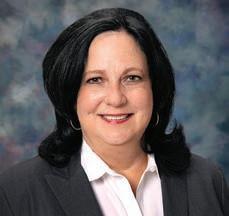




Claire Fisher West Michigan programs services director
Erin Muehlenkamp Grand Rapids development manager
Jamie Schneider donor engagement manager
Melanie Baird vice president of programs
Greg Bird public policy director
Kathryn Ribant Payne communications director
EXECUTIVE COMMITTEE:
Bruno Giordani
Maureen Mickus
Jimmie Plaskey
Katey Price
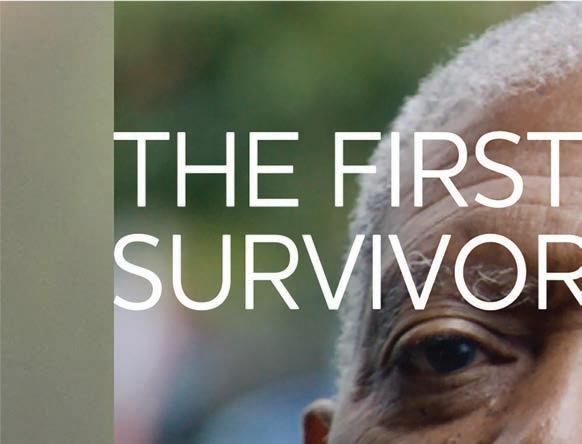














Since 1976, Barnabas Foundation has helped thousands of generous Christians transfer their wealth in ways that honor God, provide for their loved ones and support the causes that are close to their hearts. Specifically, we help families give tax-wise gifts (such as stock, real estate and business interests) to stretch their charitable dollars further.
The Stewards Fund, a donor-advised fund, is a powerful giving tool for those who support several charities or want to give appreciated, non-cash assets to their favorite causes. Like a charitable giving account, you can give cash, stock and other assets into a single Stewards Fund account and receive an immediate tax deduction. Then, whenever you see a need, you can recommend grants from that account to support your favorite nonprofit organizations.
Compared to other donor-advised funds, here are a few reasons people say they give through the Stewards Fund.
• Values. Distribution policies are guided by our statements of Christian faith, values and principles. Your gifts will support everything you stand for—nothing you don’t.
• Customer service oriented. Real, “live” people will answer your calls and emails, and they will quickly respond to your questions or concerns.
• Cost effective. There are no hidden fees or required balance to maintain after your initial contribution of $10,000 or more.
• Expertise. Benefit from the knowledge and expertise of Barnabas Foundation staff, who will help ensure you are making the right gift at the right time for you.
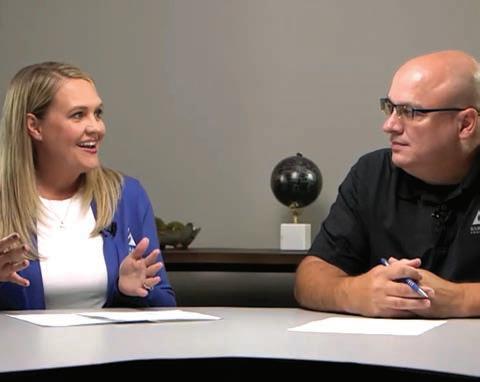
STREAMLINE: Save time and hassles by giving cash and non-cash assets into a single account from which you can support all of your favorite causes. Receive an immediate tax deduction at the time of your contribution. All of your giving receipts will come from one place.
REDUCE: Reduce taxes by giving stock, real estate and other assets. You’ll receive an immediate tax deduction at the time of your gift and avoid capital gains on appreciated assets.
SIMPLIFY: Barnabas Foundation makes it easy to give real estate, business interests, cryptocurrency, commodities and more. We’ll take care of the liquidation and management; you simply tell us where the funds should go.
EXPLORE: We’ll help you explore the best giving options for your goals and situation—helping you reduce taxes and/ or provide you or a loved one with income for life.
DONATE: Give to all of your favorite causes from the Stewards Fund, including faith-based ministries that some secular foundations will no longer allow you to fund. You can support both Christian and secular nonprofit organizations as long as they are not in conflict with Barnabas Foundation’s distribution policies.
JOIN: Unite with thousands of generous Christ followers who are committed to faithfully stewarding their God-given resources for His Kingdom and His glory.






All children deserve to be safe and loved, and all families deserve to be supported. At D.A. Blodgett - St. John’s (DABSJ), we come alongside children and families during some of the most difficult challenges life can bring.
Through the following comprehensive services, DABSJ provides compassionate support to create brighter futures for those in need:
• Family Preservation and Behavioral Health
• Foster Care
• Adoption
• On-Campus Residential Treatment and Independent Living
• Child Psychiatric Care
Steadfast in our commitment since 1887, we’ve been trusted by the community as a local organization that understands and cares for children—adapting and innovating through time, and always striving to collaborate and develop better ways to serve those who need our help.
DABSJ is an inclusive and welcoming organization for all children, all families and all individuals. We currently serve about 1,000 children and their families each year.
Community support makes us who we are. Whether it’s donors filling our halls with presents for our children each holiday season; a company spending a team volunteer day on campus; families passing down a legacy of supporting DABSJ from generation to generation; or a person clicking ‘Give Now’ to make their first-ever gift… each individual is part of a larger movement to provide homes and hope for children.
When you are part of the DABSJ community, you are part of a uniquely historic effort in West Michigan to help children and families!
VISIT: Visit dabsj.org to learn more about the many ways you can impact children and families who are in need in our West Michigan community.
EXPLORE: Our Backpack Drive and Holiday Gift Drive are special times when the community comes together for children and families in order to get ready for school and have a magical holiday season. Visit dabsj.org to receive drive information throughout the year.
JOIN: Join the DABSJ Guild of Volunteers. Always accepting new members, the Guild is an opportunity to find your unique way to make a difference, while also being part of a close-knit community within the DABSJ family. Learn more at dabsj.org/be-involved/jointheguild.
HELP OTHERS: We couldn’t be there for children and families who need us without the selfless, unwavering support of volunteers. Individual and group opportunities are available, from special events to caring for facilities on our 36 acres. Learn more at dabsj.org/be-involved/volunteer.
DONATE: An investment in children is an investment in the future of our community! Contribute to the Homes and Hope Annual Fund, estate giving, sponsorships or in-kind. Donate at dabsj.org/givetoday or contact Colette Beighley, chief advancement officer, at cbeighley@dabsj.org or 616-361-4131.
SHARE: Follow us on social media to stay connected and help share needs and information—from recruiting foster parents, to awareness on issues that are surrounding children and families.








ICCF Community Homes is Michigan’s oldest nonprofit affordable housing provider. Active in the Grand Rapids area since 1974, ICCF serves over 2,000 households a year through its programs and services. Program offerings include the Family Haven emergency shelter; over 600 units of affordable rental housing; newly constructed homes for purchase; homeownership education and financial counseling.
ICCF began with a single donation of a home to a church in 1974. A group of volunteers decided to renovate the house and sell it to a low-income family. Decades later, the scope of our work has increased significantly, but our heart remains the same. We believe that all people deserve safe, affordable housing—and that stable housing is essential to foster a thriving community.
How did housing become an issue in our community? Discriminatory housing practices have historically disenfranchised African Americans and other minorities. From slavery to segregation and from overt redlining to subtle discrimination, minorities face significant barriers to stable housing. Low housing inventory and skyrocketing costs also make homeownership impossible for many neighbors. Rising rent prices keep families in poverty with no alternative housing.
Additionally, due to inflation and poverty, many hardworking families find themselves one crisis away from homelessness. Wages have not kept up with rising housing costs, and one quarter of families with children in Grand Rapids live in poverty. The ICCF team is available to share more about the history and challenges our community faces with your business, church, civic group, school or organization.
VISIT: Join us for an upcoming Lunch & Learn event to tour our main office and learn about our mission, vision and how you can get involved.
EXPLORE: Attend ICCF Community Homes’ annual spring Houses to Homes Gala to learn more about our vision for housing justice, along with our highlights of the past year.
JOIN: Put your skills to use with individual and group volunteer opportunities, which can be tailored to your abilities and availability.
HELP OTHERS: Donate goods and services, as well as construction and office materials, assets or items from the ICCF Wish List.
DONATE: Your tax-deductible donation invests in people and the community. Employer matching contributions, United Way directed giving and monthly giving club options are available.
SHARE: Ask ICCF Community Homes to bring the story of families that need affordable housing to your location—with tailored timing and focus.




616-336-9333
Martin Luther King Jr. St. SE, Suite 100 Grand Rapids, 49507 WEBSITE iccf.org



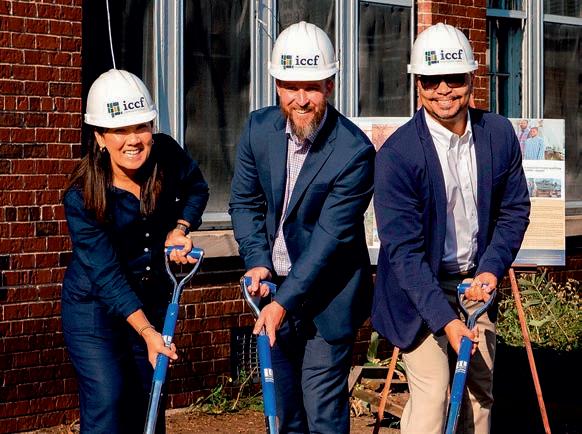











Since 1984, Make-A-Wish Michigan has granted more than 12,000 wishes to courageous children with critical illnesses throughout the state. In 2024 alone, wishes have been granted for 500 Michigan-based children.
It all starts with a question: “If you could wish for anything in the world, what would you wish for?” Each wish is as unique as the child, and our wish team’s sole focus is to exceed the wish child’s expectations and create a truly transformational wish experience.
A Make-A-Wish wish is more than meeting a special hero or taking a trip. A wish provides lasting hope and impact—not just for that moment when a wish is granted, but for a lifetime. This impact extends beyond the wish child, and the effects of the wish spread through their family, friends, medical team and community.
Wishes bring a newfound sense of hope and a positive focus, which has been proven to positively impact a child’s physical well-being and overall quality of life, as seen below.
• One hundred percent of medical professionals said a wish experience improves a child’s emotional well-being.
• Ninety-eight percent of medical professionals said a wish experience has a positive impact on a child’s physical well-being.
Make-A-Wish Michigan is one of 58 Make-A-Wish chapters across the country. Each chapter is its own 501(c)(3) with a Board of Directors, staff and volunteers. The organization does not receive state or federal funding to grant wishes, and funds donated to Make-A-Wish Michigan stay in Michigan.
Make-A-Wish Michigan is on track to fulfill more wishes than ever in 2025! Although the cost to fulfill wishes continues to rise, our local chapter is receiving record-high requests. We can only make these wishes come true through individual and corporate support like yours.
VISIT: Stop by our office in Grand Rapids and learn more about Make-A-Wish Michigan.
EXPLORE: Follow us on social media (@makeawishmi) to learn more about the life-changing wishes we are granting in your own neighborhood.
JOIN: Join hundreds of supporters in our Trailblaze or Wish-A-Mile events; create a team for Walk For Wishes at the Detroit Zoo; or attend Wish Ball Grand Rapids—with transformational stories of wish kids and wish alum. For more information, visit wish.org/michigan/our-events.
HELP OTHERS: Our volunteers are at the heart of every wish experience. Register to become a wish-granting volunteer and help kids realize their one true wish. Visit wish.org/michigan/volunteer for further information.
DONATE: Become a monthly donor, organize a payroll deduction or set up a fundraiser. Other opportunities include donating unused frequent flyer miles or your used car. Visit wish.org/michigan/ways-help-us to learn more.
SHARE: Together, we create life-changing wishes for children with critical illnesses. This is our mission. Please share it and learn how you can support us.
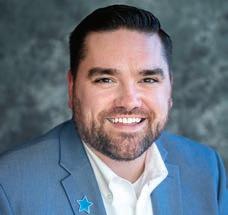



Our Wish Ball Grand Rapids occurred on May 10, 2024. This was not your normal gala; we transformed the venue into a magical wish land where our guests were a part of granting two wishes live. The wish kids had no idea and were beyond surprised and excited! Be a part of Wish Ball Grand Rapids 2025! Learn more at wishballgrandrapids.org.
ADDRESS
PHONE 877-631-9474
25 Michigan St. NE, Suite 1200 Grand Rapids, 49503 WEBSITE michigan.wish.org

Sherri Collins chief diversity and engagement officer
Jody Waits chief development officer
BOARD OF OFFICERS:
Phil Bocketti vice-chair elect
Rob Casalou immediate past chair
Todd Van Tol treasurer
Manthan Pandit secretary
Dr. James Fahner chapter medical advisor
Is your business ready to make a meaningful impact, develop strategic partnerships, and elevate your marketing efforts? Collaborate with the most trusted brand in the U.S. and help make dreams come true for children with critical illnesses!
Ways to Collaborate:
•Volunteer
• Host a joint marketing campaign
•Create a corporate social responsibility campaign
•Sponsor an event and receive marketing benefits
• Team building activities
• Fitness event participation for health and wellness

Please email us at Make-A-Wish@michigan.wish.org or call at (877) 631-9474 to ask questions or learn how we can help you meet your business objectives. Learn more at michigan.wish.org



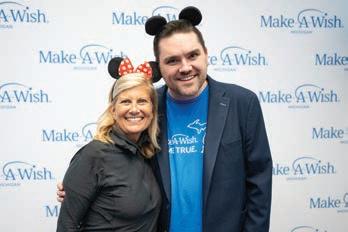



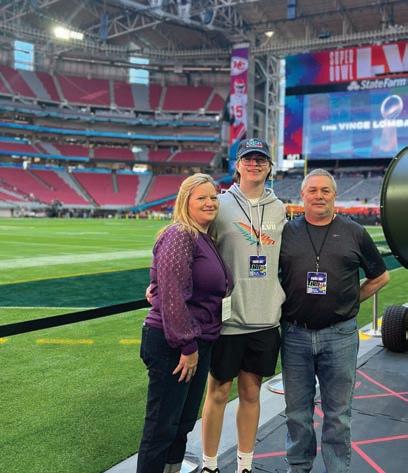

A Michigan Court Appointed Special Advocate (CASA) is a specially trained community volunteer that’s appointed by a judge to speak up for the best interests of an abused or neglected child.
Bringing urgency to a child’s needs both in and out of a courtroom, CASA volunteers advocate for safety, permanence and well-being for children through independent recommendations, based on their relationship and understanding of the child.
Michigan CASA is the statewide association for 30 local CASA programs. We work to connect each part of the CASA community and empower the local programs to perform at their highest level.
At the local level, the programs recruit, train and supervise CASA volunteers to advocate for children involved in the child welfare system and improve their well-being.
At the state level, Michigan CASA offers financial support, training and services to help the local programs operate in the most effective way possible so that they can provide the best interest advocacy to the children of our state.
We are dedicated to ending the cycle of child abuse and neglect, one child at a time.
Your support is crucial in helping Michigan CASA achieve our mission of advocating for the best interests of abused and neglected children. By joining us, you can be part of a statewide effort to ensure that every child has a voice.
VISIT: Visit michigancasa.org to learn more about becoming a CASA volunteer in your local county program. As a volunteer, you’ll receive comprehensive training to empower you to make a meaningful difference in the lives of children in foster care.
EXPLORE: Explore michigancasa.org to learn more about child welfare advocacy, training and best practices. You’ll find valuable resources and insights that will equip you to effectively support and advocate for vulnerable children in your community.
JOIN: Join over 700 volunteers throughout the state as they advocate on behalf of abused and neglected children. Together, we can create a powerful network of support that ensures every child has a voice and the opportunity for a brighter future.
DONATE: By visiting michigancasa.org, you can support CASA advocacy at the state level. Your contributions help fund essential programs and training that enable volunteers to provide critical support to children in need.


4
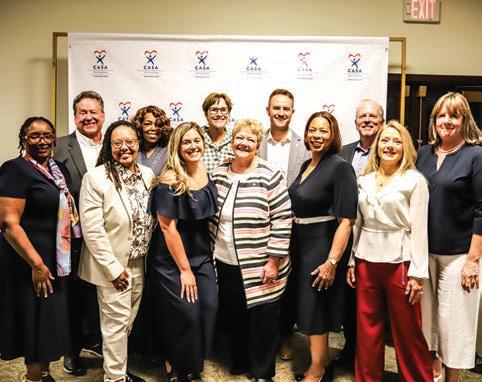


















The Pine Rest Foundation exists to provide Pine Rest Christian Mental Health Services with financial resources and community support so that its ministry of love—and healing in Christ’s name—can flourish and be enhanced.
GIVING OPPORTUNITIES: Gifts to the Patient Assistance Fund are used to reduce treatment costs for people who are unable to afford care for themselves or a family member. Without this fund, many would be unable to receive life-changing and life-saving care.
Donations can be made in several ways:
• Online: pinerest.org/donate
• Phone: 616-455-8680
• Mail a check:
Pine Rest Foundation
P.O. Box 165 Grand Rapids, MI 49501-0165
• QR code (see to the right)
SUPPORT RUSTIC MARKET: You may also shop, donate or volunteer at Rustic Market, located at 389 68th St. SE. One hundred percent of proceeds go to the Patient Assistance Fund. In just the last six years, the Rustic Market’s sales have contributed over $1 million to the Patient Assistance Fund.
PATIENT ASSISTANCE FUND: No one should delay or forgo care for depression, anxiety, addiction, dementia, stress or relationship issues because of cost. Thanks to a generous and compassionate community, financial assistance is available through the Pine Rest Patient Assistance Fund.
IMPROVING ACCESS AND QUALITY OF CARE:
The Casey Wondergem Grant Program, supported through the Pine Rest Foundation endowment, offers funding for research and innovation. The Foundation also raises current funds for special Pine Rest projects and initiatives.
STATE-OF-THE-ART FACILITIES: As the need for all levels of treatment increases in our communities, the Pine Rest Foundation raises funds to update and build new facilities.
EDUCATION TO IMPROVE OUTCOMES: An environment of learning improves care and outcomes for the community. With this in mind, Pine Rest programming includes internships, residencies and fellowships for psychiatry, advanced practice providers, nurses, psychologists, social workers and professional counselors. In addition, we offer continuing education opportunities for staff and professionals in the community.

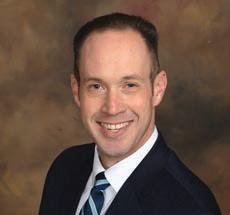


ADDRESS
300 68th St. SE
P.O. Box 165
Grand Rapids, 49501
PHONE 616-455-8680
WEBSITE pinerest.org/foundation
BOARD OF DIRECTORS:
Jack DeBoer chair
Rob Stafford secretary and treasurer

Steve Alles
Peter Draaisma
Steve Ender
Ann Hansen
Aaron Jonker
Ray Lanning
Janis Petrini
Bryan Ridgeway
Jeff Steeby
Mel Trombley
of








What matters to you, matters to us. That’s why we continue to invest in proven behavioral health treatments based on cutting-edge research. Why we opened the first same-day psychiatric urgent care in the state and pioneered new training programs for the next generation of mental health experts. You matter to us. That’s why.















Ronald McDonald House Charities West Michigan (RMHCWM) offers care, comfort and respite for families with children who are receiving medical treatment at partner hospitals.
Our support includes private bedrooms and bathrooms, an onsite laundry facility, a spacious community kitchen, a colorful playroom and five acres of serene property. Families also benefit from transportation to and from the hospital; volunteer-made meals and treats; weekly linen and towel laundry services; and numerous other amenities and services, including the following—all free of charge.
• A fully stocked pantry, fridge and freezer with a variety of food and ingredients
• Grab-and-go breakfasts and lunches to help families save on dining expenses
• Welcome Bags filled with toiletries, journals, blankets, socks and other comfort items
• High-speed Wi-Fi and in-room TV streaming services
• Holiday activities and decorations to celebrate special times of the year
• Outdoor areas, such as walking paths and a meditation garden for relaxation
• On-call chaplain services and an anonymous prayer request box for spiritual support
• “Going Home Bags” containing snacks, gas cards and agespecific items for children to ease their transition home
Through our comprehensive range of services and amenities, RMHCWM stands as a beacon of hope and support for families during their most challenging moments. Together, we strive to provide comfort, care and a sense of community to those who need it most.

CORPORATE VOLUNTEERING: From preparing meals to assisting with projects around the House, your organization can play a key role in creating a compassionate community. Get involved and make an impact—learn more at rmhcwm.org/get-involved.
SUPPORT RMHC AT MCDONALD’S: Rounding-up your order at McDonald’s ensures all families have access to a Ronald McDonald House when their children need critical medical care. Learn more about our founding and forever partnership at rmhcwm.org.
COLLECTION DRIVES: Help provide essentials for families that are staying at RMHC West Michigan by hosting a collection drive throughout the year. You can also sponsor a toy drive to ensure every child, whether a patient or a sibling, receives gifts this holiday season. Visit rmhcwm.org for details on how to contribute.
DONATE: Your support helps provide comfort and care to families with critically ill or injured children. Contribute to RMHC West Michigan through individual gifts, sponsorships and in-kind donations, or include us in your estate planning. Donate at rmhcwm.org/donate or contact Salina Bishop, chief development officer, at sbishop@ rmhcwm.org or 616-258-5732.
SHARE: Stay connected with us on social media and help spread the word about RMHCWM. Share updates, family stories, volunteer opportunities and ways to support families in need by following us on Facebook, Instagram and LinkedIn.
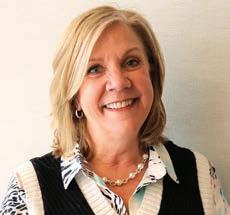

rmhcwm.org



Ronald McDonald House Charities West Michigan provides care, comfort, and community for families with children receiving medical treatment in Grand Rapids. We believe that children heal better with their family by their side. That’s why we offer a nurturing environment with private accommodations, home-cooked meals, laundry services, and numerous other amenities—all free of charge. Together, we create a space where families can focus on what truly matters: being together during life’s toughest moments.
Join us in making a difference; your support brings hope and healing to families in need.
To make a gift of impact, visit rmhcwm.org/donate. Where families find hope and healing together.



Well House is a Grand Rapids-based housing service provider with the mission to expand, provide and safeguard low-cost housing options for vulnerable populations. We offer permanent housing for individuals and families who are experiencing chronic homelessness and are no longer able to access housing through traditional markets.
By prioritizing placements for people who are experiencing numerous barriers, we help our neighbors come in from the streets, emergency shelters and other unhealthy conditions—bringing them into safe, stable housing in a supportive community. By addressing the primary need for housing, tenants with economic, health, behavioral and social problems can stabilize and work to recover from traumas that led them to homelessness, while also exercising independent living skills.
The guiding principle of our service approach is respect. Because our houses are in neighborhoods throughout the city, we model the engagement practices that incoming tenants can embrace as they move into unique communities that have established rhythms and cultures. Respect for our tenants, neighbors and community partners is central to the successful integration of new tenants. Our discreet “in-community approach” is embraced by the neighbors in communities where our homes sit.
Well House is committed to creative program strategies, which are aimed at addressing the range of complex needs that lead individuals and families to chronic homelessness. In 2022, the Board of Directors approved a $1.9 million fundraising effort to bring nine new housing units online—with the capacity to permanently house as many as 35 additional people.
CONTRIBUTE: Having raised over $1.6 million to date, please consider making a pledge to help us reach our goal.
With your contribution, you’ll be joining supporters like:
· City of Grand Rapids HOME-ARP Funded Program
· Express Employment professionals
· Grand Rapids Dominican Sisters Foundation
· Grand Rapids Housing Commission
· Michigan State Housing Development Authority - MICH
· Orion Construction
· Peter C. & Emajean Cook Foundation
· The Wege Foundation
· Eenhoorn
Other financial supports provide assistance with maintenance and operations. Contributions can be made as a one-time gift or as recurring monthly donations through our website.
HELP OTHERS: Many of the individuals we house lack basic necessities and are always in need of items like (new) bedding, curtains, pillows and blankets, which provide them assistance during their transition from homelessness to housing. Contact our office to arrange delivery.
VOLUNTEER: Well House volunteers are the backbone of the organization. There are many opportunities to volunteer—especially for skilled construction and landscaping professionals, among others.

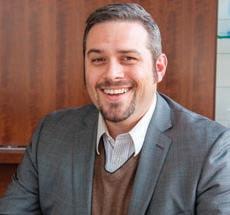
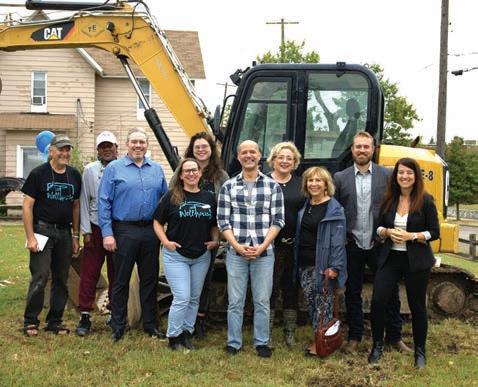

IN 1978 PHONE 616-245-3910 ADDRESS 600 Cass Ave. SE Grand Rapids, 49503 WEBSITE wellhousegr.org FUNDING
4 EMPLOYEES

For

Grand Rapids Dominican Sisters Foundation






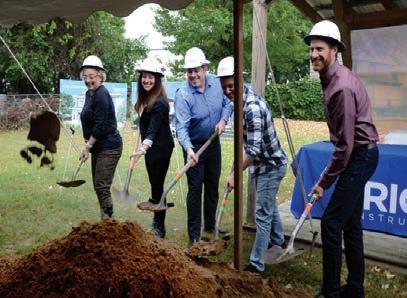










KellerWilliams North - Red Day 5/9/2024 Conversation Among GR Housing Providers 9/26/2024 Groundbreaking w/ Orion Construction 9/24/2024













The Beacon Hill Foundation cultivates care and community by supporting the people and the places that make Beacon Hill at Eastgate one of the nation’s leading senior living communities. Its mission is to ensure that Beacon Hill at Eastgate continues to meet the physical, social and spiritual needs of its residents; has adequate resources for the development of its campus and facilities; and remains an integral part of the Eastgate neighborhood.
Beacon Hill is a community of caring and support, and we believe in the importance of building and sustaining a loving, faith-based home for older adults in the Grand Rapids community. Through the Benevolent Care Fund, the Foundation provides continued support to residents, irrespective of financial status. Annual charitable contributions to the Benevolent Care Fund ensure continued support and ease from worry for our residents year after year.
Giving to the broader Beacon Hill Community helps sustain initiatives for our Beacon Hill residents. We support our residents’ spiritual care through the Russell & Dorothy Watkins Chaplaincy Fund, while also supporting our staff with the Employee Scholarship Fund for continuing education. Being good neighbors in our surrounding community means supporting initiatives like open arts and education events too, along with community gardens and Eastgate Neighborhood Association activities.
Guided by a Board of Directors, the Beacon Hill Foundation grants funds for Benevolent Care, Celebrating the Arts, Community Engagement, Campus Enhancements, Employee Scholarships & Education, and Spiritual Care.
BENEVOLENT CARE: The Benevolent Care Fund ensures residents can remain in their homes even if their financial circumstances have changed.
CELEBRATING THE ARTS: Donors help provide high-quality, robust arts events in our Community House Auditorium.
COMMUNITY ENGAGEMENT: Through community engagement funding, we can support our surrounding community with concerts, arts and education events, as well as partnerships with the Eastgate Neighborhood Association.
CAMPUS ENHANCEMENT: Community funds support large campus projects, including building enhancements, gardens, sustainability efforts and community spaces.
EMPLOYEE SCHOLARSHIPS AND EDUCATION: Thanks to our donors, the Foundation funds opportunities for continuing education and training.
SPIRITUAL CARE: The Russell and Dorothy Watkins Chaplaincy Fund enhances our residents’ spiritual care though high-quality programming for every stage of their life journeys.
VOLUNTEER: Current opportunities include visiting residents, reading to residents, letter writing, walking buddies, flower arranging and special events.


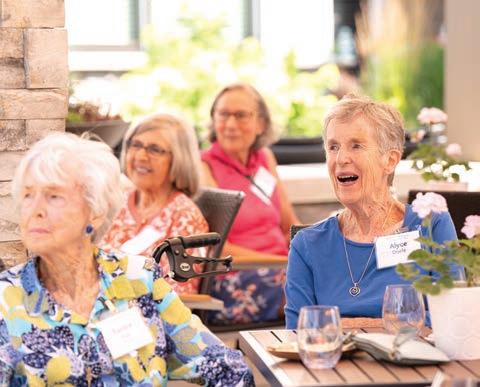



Catholic Charities West Michigan (CCWM) exists to ensure that every individual and family in our West Michigan community is provided with life, dignity and care.
Since 1946, we have seen the importance of healthy and connected communities. We desire to see individuals and families flourish.
From meeting the tangible needs of our surrounding communities through nourishing meals and family resources—to fighting for intangible needs like behavioral health and counseling, we offer more than 50 programs, which have been created to provide relief to those who are struggling and vulnerable. Our services range from education and prevention to crisis intervention.
Fueled by faith, we strive to promote feelings of belonging, worth, confidence and value within every person in West Michigan. We seek to create just and compassionate communities where all people can achieve their divine purpose.
Our programs and services pursue the best interests for each of our clients—representing a diverse population, including persons of all faiths and ethnic backgrounds.
We work to provide hope in challenges, loving solutions in crisis and guidance through new stages of life. Whatever you’re facing, there is hope and we’re here to help.
Providing Help. Creating Hope. Catholic Charities West Michigan.
HELP OTHERS: CCWM has an opportunity for everyone to serve. Create meaningful change in the lives of your community by making a meal at God’s Kitchen, becoming a personal shopper at St. Gianna’s and more! Visit ccwestmi.org/volunteer for more opportunities.
DONATE: Our 50-plus programs—and the thousands of people we serve each year—rely on the generosity of local businesses and individuals like you. Visit ccwestmi.org to learn how your donation can make a difference.
SPONSOR: Become a beacon of hope for those who are the most in need in our community. Host a Diaper Day for St. Gianna’s No Cost Baby Boutique and provide diapers for a day, week, month or up to a year to ensure families have what they need to raise their little ones.
CONNECT: Connect with us on social media to stay up to date on current needs, events, success stories and more!
• Facebook: facebook.com/CCWMI
• Instagram: instagram.com/catholiccharitieswm
• LinkedIn: linkedin.com/company/catholic-charitieswest-michigan
HOST: Give back tangibly to those in need by providing essentials like diapers and clothing to families at St. Gianna’s or canned goods to our neighbors at God’s Kitchen by hosting a material drive for CCWM. Visit ccwestmi.org to learn how you can provide for the physical needs of your community.



EXECUTIVE COMMITTEE:
Laura Ploof chief administrative officer
Leticia Pittman director of child welfare
Elizabeth Harsevoort director of behavioral health
Brianna Figures director of family preservation


Dawn Harper director of human resources
Susan Kornoelje director of quality and compliance
Jeff Hoyh God’s Kitchen food and pantry program manager
Pedro Gomes mission and advocacy manager

At the Catholic Foundation of West Michigan, we believe in the power of our community to impact the world around us for good.
Since 1995, we have helped donors design giving plans that celebrate their faith, honor their values and positively impact the West Michigan community.
Our pledge remains that of being trusted advisors to assist the faithful in their financial and charitable planning.
As an independent, 501(c)(3) Catholic community foundation, donors work with us to accomplish their philanthropic goals and leave a legacy to support the spiritual, educational and/or social needs of our local community.
Through a spirit of generosity; values-aligned philanthropy; prudent investment vehicles; optimal tax benefits and grantmaking to vital nonprofits, we look forward to working with you.
Join us to ensure your charitable giving is efficient, supported by our expertise and properly directed to create your greatest desired impact.
VISIT: Visit catholicfoundationwmi.org to access our Giving Guide and discover how the Catholic Foundation can support your intent and impact.
EXPLORE: Explore the different giving options, including Endowment Funds, Donor Advised Funds, Restricted Funds, Immediate Need Funds and Scholarships.
JOIN: Join our supporters who are inspired by faith, educated on options and invited to opportunities, such as the Light of Christ Legacy Society, the Bishop’s Angels program and the Catholic Business Leaders Series.
HELP OTHERS: By joining together, we combine our resources to spread the love of Jesus Christ. Each year, millions of grant dollars impact children; young adults; the poor and vulnerable; future Catholic leaders; our natural environment and the community at large.
DONATE: The Catholic Foundation welcomes new gifts— large or small, simple or complex—at any time. There are hundreds of charitable funds you may choose to support, or you can start your own.
PLAN: Consider a planned gift—a gift deferred until the Lord calls you home—in your will or estate plan for the betterment of the Church and its many ministries. This type of gift provides an excellent opportunity to establish your legacy and express your family’s values without affecting today’s cash flow.





Faith Hospice is a locally owned and operated nonprofit organization that provides expert and compassionate hospice care for anyone in our community that’s facing their end-of-life journey.
Our hospice services are offered in the patient’s home, at a hospital or a senior living residence, or at our Trillium Woods inpatient facility. As they provide these services, our interdisciplinary team of physicians, nurses, social workers, chaplains and volunteers empower our patients to experience the end-of-life journey on their terms, helping to fulfill their wishes, while also improving their quality of life.
Our holistic approach to hospice care encompasses physical, emotional and spiritual support. We offer a range of complementary therapies to help achieve this, including music therapy, massage therapy and pet therapy.
In addition to hospice services, Faith Hospice offers grief support for anyone who’s navigating the loss of a loved one. Our bereavement care is not a “one size fits all” service. Instead, it provides guidance through each individual’s unique healing process.
Since all grief support services are offered free of charge, donations are essential to delivering this important work.
VOLUNTEER: Volunteers are the heart of hospice. By helping us provide compassion, comfort and care to those at the end of life, you will be enriching your own life as well.
There are many ways to serve, and we will help you find the right opportunity. You do not need a special talent or expertise—just a desire to make a big difference in someone’s life.
DONATE: As a nonprofit, we rely on the generous support of our community to help fulfill our mission of providing Christ-like care.
Financial gifts are used to enhance the care that Faith Hospice provides to patients throughout our community, along with their grieving loved ones.
CIRCLE OF FAITH FUND: Gifts to the Faith Hospice Circle of Faith support an endowment fund that will help people now—and in the future—receive hospice care services.
BUY A BRICK: Dedicate a brick along the pathway to our Van Andel Hope and Healing Pavilion as a way to show your support for our grief support services.

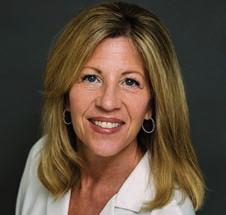

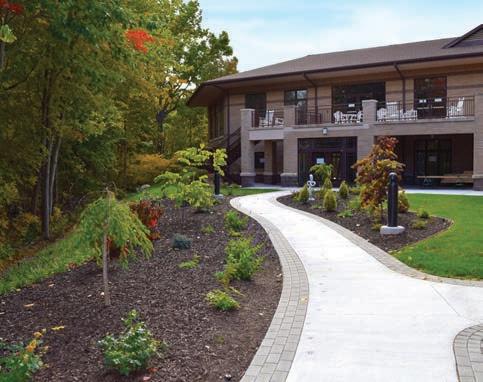
ADDRESS 8214 Pfeiffer Farms Drive SW Byron Center, 49315
WEBSITE

Adam Kinder CFO, Christian Living Services
Janet Jaymin director of grief support services
Gina Schulz director of philanthropy
The mission of the Grand Rapids Community College (GRCC) Foundation is to secure and manage financial gifts that support learning for students, employees and the broader community.
In doing so, the Foundation helps GRCC fulfill its goal of transforming lives through accessible, high-quality education, empowering students to grow, thrive and develop the skills necessary for success in their chosen career paths.
For many GRCC students, scholarships are more than just financial aid—they are a lifeline. A scholarship can be the deciding factor between continuing their education and pursuing their dreams or putting their academic journey on hold to work and support their families. Scholarships can change the trajectory of a student’s life, opening doors to opportunities that would have been out of reach without financial support.
The GRCC Foundation awards scholarships to more than 1,500 students each year, supporting them in achieving their educational and career goals. The $1.3 million in scholarships provided annually not only alleviates financial burdens, but also fosters hope and motivation. This essential support enables students to concentrate on their studies and work toward a successful future for themselves and their families.
Together, we are creating a stronger, more skilled and educated community, one student at a time.
VISIT: Like and follow us on Facebook (@GrandRapidsCC), Instagram (@GrandRapidsCC), X, formerly Twitter (@grcc), and TikTok (GrandRapidsCC) to stay updated on the latest GRCC news and events.
Extend your networking reach by following our LinkedIn page: linkedin.com/school/grand-rapids-communitycollege.
EXPLORE: Discover how your donations make an impact by reading our GRCC Foundation Annual Report at grcc.edu/annualreport24, featuring stories from students, alumni and donors.
JOIN: Support student scholarships by attending our signature fundraising event in May—known as Scholarfest— and connect with fellow community members.
HELP OTHERS: Students face challenges beyond tuition and fees. You can make a difference by supporting the GRCC Student Food Pantry. Visit grcc.edu/pantrylist to view the most-needed items or choose the Food Pantry as your donation designation at grcc.edu/donate.
DONATE: Every gift changes a student’s life and strengthens our community. Donate today at grcc.edu/donate.
SHARE: Are you a GRCC alumni? Inspire current students by sharing your story and journey at grcc.edu/alumnisharemystory.

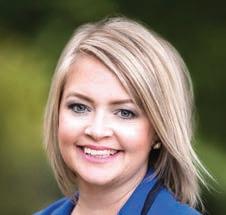

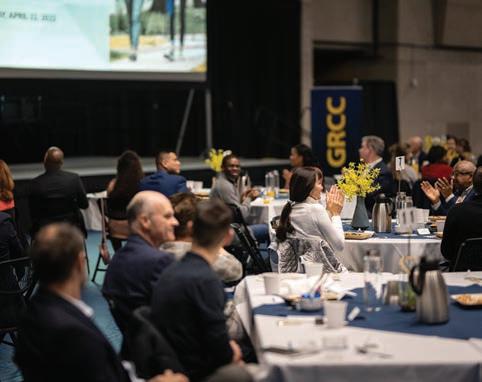
Creating Connections is a breakfast that enables scholarship recipients to meet donors, connect with them and express their gratitude to them in person.
ADDRESS
PHONE 616-234-3939
Custer Alumni House 143 Bostwick Ave. NE Grand Rapids, 49503 WEBSITE grcc.edu/foundation

BOARD OF DIRECTORS, EXECUTIVE COMMITTEE: Nancy Ayres vice chairperson Jeff Pauza treasurer
Lepzinski secretary
Freiburger
Due to visionary community leaders’ steadfast commitments, Grand Rapids Symphony has become nationally recognized for its high-quality concerts and educational programs since its establishment in 1930.
Led by Music Director Marcelo Lehninger, Pops Conductor Bob Bernhardt, Assistant Conductor Duo Shen and Symphony Chorus Director Dr. Pearl Shangkuan, the Grand Rapids Symphony touches the lives of some 400,000 people from 13 counties across the state—through its Richard and Helen DeVos Classical Series, Fox Motors Pops Series, Coffee and Chamber Masterworks Series, and a new Family Series.
Furthermore, it performs a whole host of education and engagement and programs. As part of its commitment to being a more integral and indispensable part of the West Michigan community, the Symphony’s Gateway to Music educational programming reaches 87,000 students, adults, senior citizens, citizens from diverse ethnicities and economic backgrounds, and people with disabilities—through partnerships with community organizations to serve local schools and engage new audiences.
The Grand Rapids Symphony also has affiliations with the Grand Rapids Symphony Chorus, which was founded and organized in 1962 with the guidance and support of Mary Ann Keeler. Additionally, it has connections to the Grand Rapids Youth Symphony and Classical Orchestra, founded in 1959 to provide West Michigan’s young musicians a way to rehearse and perform orchestral music together.
As the Grand Rapids Symphony approaches its 100th anniversary season, it is dedicated to strengthening its commitment to being the orchestra of its community, while also fostering a deeper connection through music and collaboration.
VISIT: Whether you like classical music, pop or rap, or you want to experience a movie score that’s brought to life by an orchestra, enjoy a concert with the Grand Rapids Symphony.
EXPLORE: By exploring with the Grand Rapids Symphony, doors are opened to extraordinary musical journeys that blend rich traditions with innovative performances. It’s an opportunity to experience diverse repertoire, engage with passionate musicians and connect deeply with the community through exceptional live music.
JOIN: Volunteers are the heart of the Grand Rapids Symphony, as they support concerts, education events and initiatives, while also sharing their advocacy for the value of music experiences.
HELP OTHERS: The Grand Rapids Symphony has 16 music education and access programs that reach 13 West Michigan counties. Nearly 87,000 students, adults, senior citizens and people with disabilities benefit from the Grand Rapids Symphony’s programs, which promote positive interactions with role models, learning and community building.
DONATE: Donations to the Grand Rapids Symphony support vibrant musical performances, educational programs and community engagement. Your contribution enriches West Michigan’s cultural scene and ensures worldclass orchestral experiences are accessible to all.
SHARE: By sharing the Grand Rapids Symphony’s live orchestral experience with someone, they’ll experience a unique emotional journey, while witnessing its vibrant performances and immersive atmosphere firsthand. It’s a chance to connect deeply with music and community in settings that range from community parks, to schools, to local performance venues, to the dynamic DeVos Performance Hall.






One in seven children in West Michigan are at risk of hunger. Hand2Hand provides hope to students through a weekend food backpack.
Weekends are the most vulnerable time for our students who experience hunger. Hand2Hand exists to eliminate that 68-hour gap of the weekend so that every kid has an opportunity to thrive.
Service Area:
Hand2Hand is Michigan’s most extensive weekend food program, reaching eight counties, including Allegan, Barry, Kent, Mason, Muskegon, Newaygo, Ottawa and Van Buren.
Hand2Hand is currently serving:
• Up to 15,000 students (approximately 2,500 more than during the last school year)
• 280 schools
• 45 school districts
Nutrition Education:
In addition, Hand2Hand often provides recipe cards for weekend backpacks, which empower kids of all ages to learn how to cook balanced and nutritious meals.
We believe every child should have access to a healthier future where they can reach their full potential. With this in mind, we are expanding our nutrition education program this school year. Furthermore, we have many opportunities available for people to sponsor and become involved.
GIVE: Contributions to Hand2Hand can be made in multiple ways:
• Online: h2hkids.org/donate
• By mail: 306 Chicago Drive, Jenison, MI, 49428
• Food wish list: h2hkids.org/individual
Your donations will help eliminate child hunger in West Michigan. Hunger impacts a child’s opportunity to succeed in school and life. The need is great this school year as more children request weekend food services.
ACT: Engage your team in making a difference by hosting a Corporate Packing Event. To learn more, contact us at 616209-2779 or info@h2hkids.org.
PARTNER: We invite you to attend and sponsor the Hand2Hand Golf Outing on July 14, 2025, along with the Hope for Kids Fundraiser on October 14, 2025. Learn more at h2hkids.org/dinner.
You can also nominate Hand2Hand for a corporate or community grant to help expand our impact.


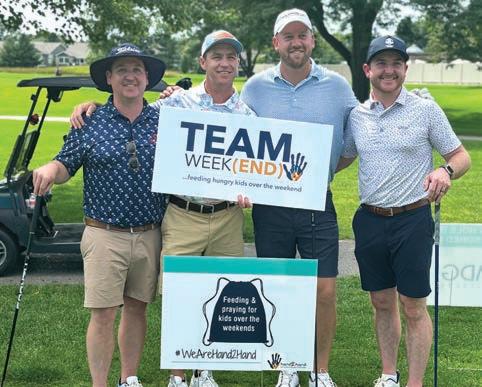
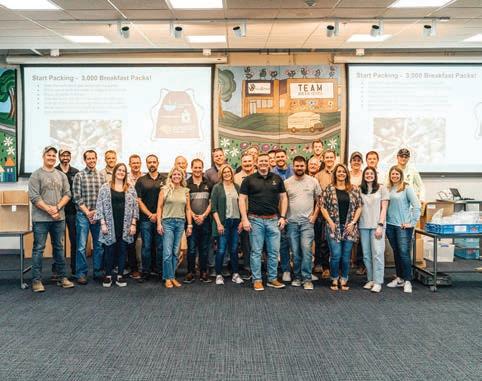
23 EMPLOYEES VALUE
BOARD OF DIRECTORS:
Tom TenBrink president
Drew Nielsen vice president
Jim Meyer treasurer
Lisa Uganski secretary
Brian Pirog

Derek Steele
Greg VanderMeer
Lindsey VanDyken
Tom Livezey ex officio board member
Doug VanderJagt, Ph.D. ex officio board member

Founded in 1925, the Junior League of Grand Rapids (JLGR) is a nonprofit women’s service organization dedicated to advancing women’s leadership for meaningful community impact through volunteer action, collaboration and training.
JLGR empowers local women by providing leadership training, mentorship and hands-on experience. We believe that—by equipping women with the tools to lead and collaborate—we can inspire positive social change.
Over the years, JLGR has played a crucial role in supporting community programs and continues to be a driving force in creating lasting change across West Michigan. We have partnered with—and supported— organizations like the Grand Rapids Art Museum, Mary Free Bed Rehabilitation Hospital, Gilda’s Club, CASA, Ronald McDonald House, and Grand Rapids Parks and Recreation, showcasing our commitment to making a lasting impact alongside these community partners.
Currently, our community impact focus area is advancing women’s health and development. Through a multi-faceted approach, we are addressing this pressing issue and making a tangible difference in the lives of women in our community.
Whether it’s through direct service, advocacy efforts or partnerships with local organizations, JLGR combines volunteer leadership, fundraising and community partnerships to create meaningful, lasting change. Our efforts, rooted in collaboration and volunteer action, are vital to building a healthier, more equitable future for all.
As we celebrate a century of service, JLGR remains steadfast in our dedication to developing the next generation of women leaders. Together, we are shaping the future of Grand Rapids, while ensuring a legacy of strong, confident women leaders who will continue to make a meaningful impact for years to come.

ATTEND: JLGR will celebrate its 100-year gala on April 25, 2025. Our annual gala will showcase how JLGR empowers women and impacts West Michigan through fundraising, voluntarism and leadership training. Visit our website to learn more and buy tickets.
EXPLORE: Visit juniorleaguegr.com and follow us on Facebook (@JuniorLeagueGrandRapids), Instagram (@juniorleaguegr) and LinkedIn (@jlgr) to learn about our current and past partnerships and projects, as well as how you can contribute or become involved.
JOIN: We are accepting new members now. Follow us on social media for information about recruitment events and to learn more about the League. Visit our website to complete your membership application. Email us (juniorleaguegr@gmail.com) for more information.
HELP OTHERS: Over the last 100 years, JLGR has helped establish programs, provided grants and furnished volunteers for various initiatives and community partnerships. Examples include YWCA, Mel Trotter Ministries, St. John’s Home, Habitat for Humanity and Women’s Resource Center.
DONATE: We encourage you to support the Junior League of Grand Rapids through a donation. In doing so, you’ll help develop and sustain impactful projects in the community that foster the next generation of civic leaders, while also improving West Michigan women’s health and development.
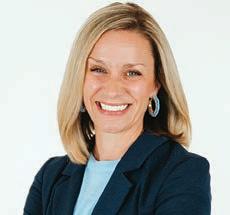


25 Sheldon Blvd. SE, Suite 127 Grand Rapids, 49503
WEBSITE

Melisa Schut vice president of finance
Mabel Heitmeier vice president of communications
Kristin Georgelos vice president of community impact
Jennifer Vacanti vice president of membership development
Tarra Geertman vice president of fund development
Julie Allen vice president of new member development
Theresa Osmer secretary/ parliamentarian
Carroll Velie sustainer representative (voting)
Rachel Siglow sustainer representative
Autumn Hubbard office manager
The Mary Free Bed Foundation is a bridge to hope for patients who have experienced a traumatic injury or illness. Patients come to Mary Free Bed Rehabilitation Hospital with a wide range of conditions. Some have had strokes, spinal cord injuries or brain injuries. Others have cancer, amputations or other chronic diseases. But no matter what they’re facing, they all have one thing in common: they want to get back to their lives and the people they love.
The Mary Free Bed Foundation proudly champions the hospital’s mission to restore hope and freedom through rehabilitation. Since its establishment in 2012, the Foundation has raised more than $113 million to support bold initiatives—including capital projects, transformative programs and services, and patient assistance. These philanthropic efforts have benefited hundreds of thousands of Mary Free Bed patients across Michigan, the nation and the globe.
As a nonprofit organization, we rely on the generosity of donors. Your gift helps restore independence to thousands of people through highly specialized therapy programs, innovative technology and capital improvements.
Today, our sights are set on building a free-standing pediatric rehabilitation hospital in Grand Rapids. Opening in 2026, the state-of-the-art facility will be one of only three of its kind that’s located between the east and west coasts of the United States.
EXPLORE: Learn more about our mission, services and impact by visiting maryfreebed.com/foundation.
JOIN: Stay connected with the Mary Free Bed community! Sign up for our tri-annual newsletter, Momentum, to catch up on the most recent happenings in—and around—Mary Free Bed.
ANNUAL EVENTS: To support the Mary Free Bed mission, consider sponsoring or attending an annual event. For questions, contact Maggie Smitt, annual fund director, at maggie.smitt@maryfreebed.com or 616-840-7425.
WAYS TO GIVE: There are a number of ways you can offer financial support, including community fundraising, planned giving and more. You may also attend foundation special events.
DONATE: When you give to Mary Free Bed, you give the gift of hope and healing. Contributions can be made via our website or by mail.
SHARE: Get to know Mary Free Bed on social media! Meet our patients, hear from our teams, and discover how we restore hope and freedom through rehabilitation. Find us on Facebook, X, Instagram and LinkedIn (@mfbrehab).




235 Wealthy St. SE Grand Rapids, 49503
616-840-8137
8 EMPLOYEES 2023 REVENUE

For 45 years, Paws with a Cause (PAWS) has assisted thousands of people living with disabilities through our custom-trained Assistance Dogs. Each PAWS Dog opens a world of possibilities—inspiring independence, confidence and companionship for individuals and their families. PAWS places four types of Assistance Dogs, including Service Dogs for mobility, Seizure Response Dogs, Hearing Dogs and Service Dogs for children with autism.
The cost to raise and train an Assistance Dog is estimated to be over $35,000, and there is no government funding or insurance to help cover this expense. As a 501(c) (3) nonprofit, PAWS is able to provide Assistance Dogs for clients with disabilities at no cost, thanks to the generosity of donors.
In addition to Assistance Dogs, PAWS has been placing Facility Dogs in schools, hospitals, residential care facilities, counseling centers and more since 2019. Facility Dogs are trained to work with a handler and serve multiple people who are in need of emotional support, comfort or recovery motivation. PAWS also partners with other organizations to place Veteran PTSD Emotional Support Dogs, and Electronic, Narcotic or Arson Detection Dogs with law enforcement agencies or fire departments.
Accredited by Assistance Dogs International, PAWS serves over 20 states across the country. To learn how you can become involved, please visit pawswithacause.org.
VISIT: Located just a few miles south of Grand Rapids, PAWS provides opportunities to snuggle with puppies and play with dogs—or we can bring our Visiting PAWS Dogs to you for emotional support and stress relief.
EXPLORE: Explore educational opportunities through a presentation or tour! PAWS Presentations allow businesses and community groups to learn more about our mission and access rights for Assistance Dog Teams.
JOIN: Join our community of volunteers! There are a variety of ways to volunteer for PAWS, including becoming a foster puppy raiser, hosting a breeding dog or helping with day-today operations as an individual volunteer or as a corporate or community group.
DONATE: There are plenty of ways to support the PAWS mission! You can give online, sponsor an event, host a thirdparty fundraiser, purchase items from our Amazon wish list, set up a regular contribution through your workplace giving program and more.
SHARE: Share the news! Visit pawswithacause.org to join the PAWS mailing list or sign up to receive e-newsletters and stay informed about upcoming events and volunteer opportunities, while also hearing client stories.

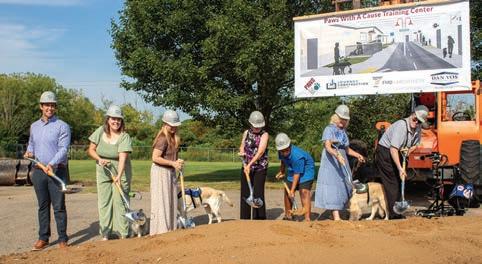


Senior Neighbors exists to enhance the lives of older adults in Kent County. Since 1972, we have empowered thousands of older adults to maintain independence and dignity through a broad range of services.
Our programs include transportation, wellness and technology classes, and social engagement at our centers—all designed to promote self-sufficiency and well-being.
Our case managers assist older adults as they navigate life’s complexities. From Medicare/Medicaid information and housing assistance to money management counseling and refugee support, our case managers patiently—and persistently—help older adults, who are in need of emergency care, find the assistance they need to avoid evictions and utility shut offs, while also assessing important services in our community.
Our wellness programs focus on balance, strength, flexibility, cardio and fun to keep seniors mentally and physically fit. Of those participating, 98% report a positive impact on their overall health.
Senior Neighbors operates five senior centers across Kent County, located in Lowell, Sparta, Grandville, Grand Rapids and Walker. These centers provide meals, social activities and a safe space for camaraderie. Popular activities include Masquerade balls, Wii bowling tournaments, guest speakers and summer picnics.
In 2023, we served over 5,500 older adults in Kent County. We provided 209 seniors with technology assistance and 1,598 seniors with transportation services. Additionally, 700 seniors participated in daily movement classes. Our services resulted in a 95% satisfaction rate, underscoring our commitment to creating positive, lasting change in the community.
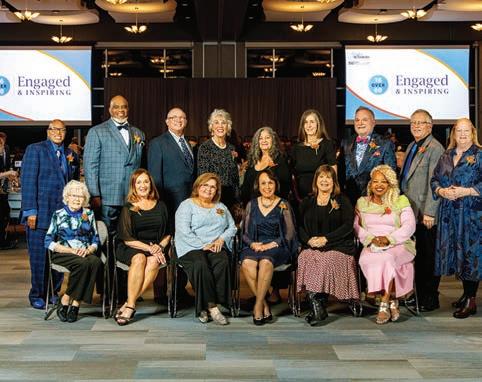
VISIT: Explore our senior centers in Lowell, Sparta, Walker, Grand Rapids and Grandville. These centers host Engaging Wellness programs that promote healthy living and social connections, in partnership with community organizations.
EXPLORE: Visit our website to watch testimonials, read newsletters and learn more about how our services positively impact seniors across Kent County.
JOIN: Join us in supporting local seniors by becoming a community partner or event sponsor. Opportunities include sponsoring our annual 16 Over 60 Gala or engaging in year-round partnerships, which offer visibility through our website, social media and printed materials.
HELP OTHERS: Volunteer with us! There are opportunities available to serve as a companion to an older adult or participate in special events or center activities. Folks 55 and older should check out our AmeriCorps Senior program, too.
DONATE: Your donations directly enhance the lives of seniors in Kent County. Contributions can be made as one-time gifts, recurring donations or through event sponsorships. Each donation helps expand our services and increase our impact.
SHARE: Help raise awareness by referring seniors to our programs and services. Follow us on social media and spread the word, ensuring that seniors in need can access the support they deserve.



EXECUTIVE COMMITTEE:
Jeffrey Gass director of operations
Aruna Kamara director of client services
Rachel Taplin director of volunteer services BOARD OF DIRECTORS

CHRIS TIAN SERVICES
Wedgwood Christian Services is one of Michigan’s most highly regarded mental and behavioral health nonprofits. Since 1960, Wedgwood has been providing an excellent and grace-filled comprehensive continuum of mental health care for kids and families. Through Residential Care, Counseling Services and Community Programs, Wedgwood impacts the lives of nearly 11,000 individuals annually.
Wedgwood’s Residential Care provides specialized treatment for youth in the child welfare system who have experienced significant trauma and mental health challenges. The trauma that kids in Wedgwood’s care have experienced has caused them to struggle in typical home environments. Wedgwood offers services that address the whole child, including specialized therapy, education, employment training, recreation and activity therapy, occupational therapy and optional chaplaincy services. Many of these support services are completely donor funded.
Wedgwood’s Counseling Services are open to anyone in the community who needs additional or specialized support for their mental health. With Psychiatry Services provided onsite, children, teens, adults and families can receive comprehensive counseling and therapy services that fit their needs and goals—including substance use disorder treatment, trauma-focused therapy and parenting classes, and Wraparound services. Most insurances are accepted.
Wedgwood’s Community Programs meet a variety of needs, including life-changing early intervention and skills-focused services for children with autism spectrum disorders, inschool prevention, empowerment and leadership programs, and human trafficking prevention education.
Wedgwood Christian Services’ mission is to extend God’s love to youth, adults and families through professional counseling and education services. The vision is to create a community that’s transformed and equipped to reach its full potential through distinctively Christian, professionally excellent and financially sustainable behavioral health services.

VISIT: Join us for Wedgwood 101, a lunch, tour and opportunity to learn more about the impact that Wedgwood makes in the lives of kids and families—and how you can be a partner in transforming lives.
EXPLORE: Explore conversations with Wedgwood and community experts on Wedgwood’s Coffee Break Conversation Podcast—helpful, hopeful and approachable conversations about mental health in our community. The podcast is available on YouTube or wherever else you acquire your other podcasts.
JOIN: Wedgwood team members play a crucial role in supporting the journey toward hope, creating meaningful connections, and experiencing both personal and professional growth. At Wedgwood, you’ll be part of a compassionate community that’s dedicated to making a positive impact on the lives of those we serve.
HELP OTHERS: There are a variety of volunteer opportunities available at Wedgwood for individuals, families and groups—either onsite or offsite. Opportunities include, but aren’t limited to, prayer; encouragement cards; mentors; events for staff or residents; Fulfill Wishlists and teaching a class.
DONATE: Wedgwood provides life-changing services above and beyond what the state and funders require—and donor and community support makes these transforming services possible. Text GIVE to 616-942-2392 to make a gift and support mental health services for kids and families!
SHARE: Wedgwood Christian Services is active on social media as it shares helpful information, events and ways to get involved, along with stories of hope and transformation!
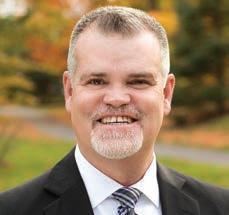


Dave Gorman vice president of youth development
Brooke Jevicks vice president of advancement
Kris Witters vice president of people strategies
Sandy Boyer vice president of total compensation and HR risk management
Dawn Harvey director of residential support services

LeRae Kuperus director of spiritual formation
Jeanna Raterink director of quality improvement
Jarrod Hale director of information technology
BOARD OF DIRECTORS:
Tom Stritzinger chair
Matthew McGowan vice chair












e YWCA West Central Michigan provides our community with the most comprehensive response to domestic and dating abuse, sexual assault, stalking and child sexual abuse.
Each year, over 4,000 individuals come to the YWCA seeking safety, healing and support from violence and trauma. From crisis services, such as our 24/7 Helpline, emergency domestic violence shelter and expert, victimcentered advocates, to transitional housing, supervised visitations and counseling, we meet survivors where they are.
Last year, nearly 300 adults and 200 children, who were victims of sexual assault, received expert medical care and forensic exams through our Nurse Examiner Program (NEP), the rst of its kind in Michigan. Our NEP program provides survivors a safe, quiet and private space with specially certi ed nurses 24/7.
Donations to the YWCA help transform lives with expert services for victims, education to end the issues that fuel abuse and public policy that translates our mission into law. As the need for survivor services increases, the YWCA relies on community support to provide our services free of charge.
Our donors ensure that every survivor who walks through our doors can access life-saving resources without the added burden of cost. Donations have a direct impact on the lives of survivors by helping to provide safety, expert care and the tools that they need to rebuild their lives. ose who support the YWCA become a vital part of a community committed to safety, healing and hope for all.
VISIT: Sign up for our monthly newsletter at ywcawcmi.org to learn how the YWCA supports survivors. Find the “Add Impact to your Email” section at the bottom of the page, and follow us on Facebook, IG, Twitter/X and LinkedIn!
EXPLORE: Are you part of a company, church or social club that would like to support survivors? We have various ways for you to get involved and give back with projects ranging from Adopt a Family for the holidays to International Women’s Day campaigns. Together, we can empower survivors and create a safe, supportive space for healing and growth. Please get in touch with Emily at elange@ywcawcmi.org to learn more.
JOIN: Follow us on social media for information about our upcoming events, including the Arise! Luncheon, the Women Lawyers vs. Judges Charity So ball Game, Domestic Violence and Sexual Assault Awareness Month activities, community events and our upcoming 125th Anniversary Celebration.
HELP OTHERS: Volunteers make our work possible, and we are always looking for more. We have a range of individual and group volunteer opportunities for onetime and recurring projects. Learn more about our many opportunities at ywcawcmi.org/get-involved/#volunteer.
DONATE: Donations to the YWCA transform lives and upli s communities. You can o er nancial support via online or mail donations, monthly giving, corporate event sponsorships and company-speci c projects, planned giving and more. To learn more, please contact us at 616-459-4681 or dev@ywcawcmi.org.



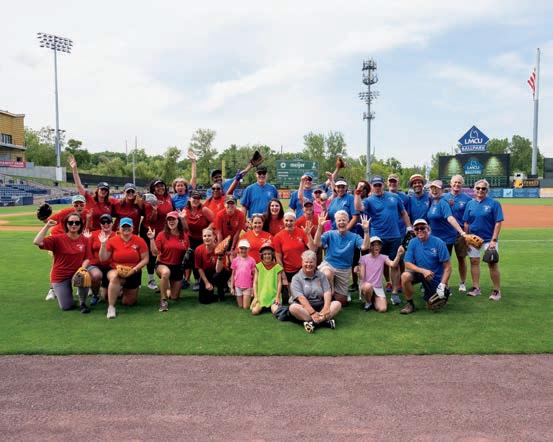

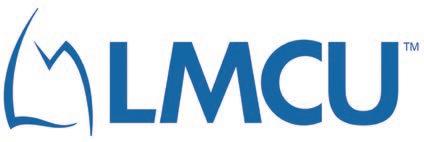






















Crain’s Content Studio acts as an extension of your team and connects you with your target audience to meet your objectives.
SPONSORED CONTENT
Your story, your way
NATIVE ADVERTISING
High-profile print, digital options
QUICK TAKE VIDEO
Virtual thought leadership platform
INTERACTIVE REPORTS
Digital landing page featuring data and research
EXECUTIVE INSIGHT
Invite-only roundtable and white paper content
CUSTOM EVENTS/WEBCASTS
Turnkey production, Crain’s promotion
WHITE PAPER PUBLISHING
Powerful lead generation tool
MARKET RESEARCH
Surveys deployed to Crain audiences
ANNUAL REPORTS
Project management, design solutions
For more information, contact:
Kristin
Bull Senior
Director, Crain’s Content Studio kbull@crain.com
ResearchedbySonyaD.Hill:shill@crain.com|ThislistoflargestgrantmakingfoundationsisanapproximatecompilationofthelargestsuchorganizationsinMichigan.Itisnotacompletelistingbutthe mostcomprehensiveavailable.Informationwasprovidedbythefoundationsorfromstateorfederalfilings.N/A=notavailable. e. Crain'sestimate. 1. FigureincludesassetsofW.K.KelloggFoundation andW.K.KelloggFoundationTrust. 2. Crain's estimate.Latestfinancialswerenotavailablebeforepublication. 3. Crain's estimate.Latestfinancialswerenotavailablebeforepublication. 4. NicoleSherardFreeman will succeed DeVore as president, effective Jan. 1, 2025. 5. From 2023 audited financial statement.
ResearchedbySonyaD.Hill:shill@crain.com|Thislistof501(c)(3)statusnonprofitorganizationsisanapproximatecompilationofthelargestsuchorganizationsinMichigan.Schools,hospitals,churches andassociationsarenotincluded.Itisnotacompletelistingbutthemostcomprehensiveavailable.Informationwasprovidedbythenonprofitsorfromstateorfederalfilings.Actualfiguresmayvary. NonprofitswithheadquarterselsewherearelistedwiththeaddressandtopexecutiveoftheirmainMichiganoffice.N/A=notavailable. e. Crain'sestimate. 1. Includesconsolidatedfinancials. 2. Crain's estimate.Latestfinancialswerenotavailablebeforepublication. 3. FormerlyTheSalvationArmy-EasternMichiganDivision.TheEasternMichiganandWesternMichiganDivisionsjoinedasanewGreat LakesDivisionasofJuly1,2022. 4. Nonprofitestimate. 5. MacombOaklandRegionalCenterInc.(MORC)mergedwithEasterseals,effectiveOct.1,2022. 6. Toretirelaterthisyear.COOStarrAllenPettway to succeed him in November.









MichaelGross, Managing Partner; William BlakeIII, Partner; CharlesRothstein, Founding Partner; EmmaBiasiolo and BenBernstein, Principals
Managing Director; Samantha Lewis, Partner; HeathButler, Venture Partner; BlairGarrou and AzizGilani, General
and
Partner; ChrisStallman, Partner; DanRatliff, Principal; LauraPetterle, Partner and CFO; ChrisThomas and ChrisCheever, Founder and Partners


Thank you for joining us at Samaritas' 90th Anniversary "Be The Rock" Homecoming Gala on September 12! It was an incredible evening, made special by your presence and support.
We are thrilled to share that, together, we raised $169,270 to help the most vulnerable in West Michigan!
From the mesmerizing speed painting to exciting auctions and dancing to Main Street Dueling Pianos, the night was filled with celebration, connection, and purpose.






















By Rachel Watson
A West Michigan family-owned metal fabricator has completed a $5 million expansion at its Ottawa County headquarters as the company seeks growth opportunities in supplying components for data centers.
DeWys Metal Solutions Inc. held a ribbon cutting Oct. 25 to celebrate the completion of a 10,000-square-foot, two-story addition to its headquarters at 15300 8th Ave. in Wright Township. DeWys launched the expansion in November 2023, and construction was completed in August.
The approximately 150,000square-foot facility includes office and manufacturing space and houses about 200 of the company’s 280 employees, while the rest work at DeWys’ three other West Michigan locations. The headquarters expansion is expected to create 80 jobs over the next three years.
The state backed the expansion with a $560,000 performance-based Jobs Ready Michigan Program grant, and Gov. Gretchen Whitmer said during the ribbon cutting that DeWys’ growth over the past half-century is “such
a great Michigan story.”
“A company that is investing in itself, investing in its employees, growing its base, creating 80 good-paying jobs and growing its footprint right here in West Michigan. … This is what happens when every layer of government can work together with the private sector to make sure that you can stay competitive and that we can get projects like this over the finish line,” Whitmer said.
Whitmer added that the company of late has made a name for itself fabricating metal enclosures for data centers.
“We know (this) is crucial to the future of AI,” she said. “The whole world has changed at such a rapid clip, and this work is going to be pivotal to our success in it. We’re proud to be a partner in building on the legacy of dependable manufacturing right here in Michigan. We’ll continue to have your backs and continue to be your partner as you confront whatever issues are in front of you.”
Crain’s Grand Rapids Business reported earlier that Microsoft Corp. is examining at least two large sites totaling nearly 600 acres, one in Kent County and one
in Allegan County, for potential data centers. Las Vegas-based data-storage company Switch already operates a massive data center in Gaines Township.
So far, DeWys Metal Solutions has added about 25 to 30 of the 80 jobs it committed to creating over a three-year period. The new jobs include manufacturing, engineering, technical and administrative positions.
CEO Jon DeWys told the crowd of about 100 employees, local officials and customers that the company was proud to be able to choose Wright Township over a competing site in Indiana for this expansion, which was about 10 years in the making.
“We got to a point where we just ran out of space,” he said. “We had team members here crammed in every nook and cranny … and now we have a space that we can all appreciate, and it’s a place that it’s amazing just to see.”
DeWys’ late brother, Mark DeWys, founded the company in 1977 as DeWys Manufacturing Inc. They built the Wright Township location in 1987 and have added onto it six times over the years.

The company rebranded as DeWys Metal Solutions in 2021 to reflect the increasing diversity of its portfolio that grew in part through acquisitions over the past seven years. That includes the acquisition of American Grower Resource in 2017, which helped DeWys gain a foothold in the agriculture space, as well as ReFab in 2020.
DeWys Metal Solutions’ portfolio provides custom metal fabrication, laser cutting, powder coating, product assembly, and engineering and design services for customers across the U.S. in multiple industries. In addition to American Grower Resource and








In the realm of employee bene ts, there’s a transformative approach gaining traction: Population Health Management (PHM). For employers seeking to optimize the health and productivity of their workforce while containing healthcare costs, understanding PHM is essential.
At its core, PHM is a strategic method aimed at enhancing the overall health outcomes of a de ned group, typically employees and their dependents. Rather than viewing healthcare through a narrow lens of individual treatments, PHM takes a holistic approach, considering the collective wellbeing of the entire population. So, what does this mean for employers? It translates
into proactive initiatives designed to prevent illness, manage chronic conditions, and promote overall wellbeing among employees. Here’s how a successful PHM strategy can bene t an organization:
1. Preventive Care Emphasis: PHM encourages a shi towards preventive healthcare, focusing on early detection and intervention to stave o potential health issues before they escalate. By investing in wellness programs, health screening, and lifestyle management initiatives, employers can help employees stay healthy and productive.
2. Chronic Disease Management: Many employees grapple with chronic conditions like diabetes, hypertension, or obesity, which can signi cantly impact their quality of life and work performance. PHM facilitates e ective management of these conditions through coordinated care, personalized interventions, and support services, ultimately reducing absenteeism and healthcare costs.
3. Engagement and Empowerment: Central to PHM is the notion of engaging employees in their health journey. By providing resources, education, and incentives,
employers can empower individuals to make informed decisions about their wellbeing, fostering a culture of health and accountability.
4. Cost Containment: By prioritizing preventive care and chronic disease management, PHM can yield substantial cost savings for employers. By mitigating the need for expensive medical treatments and reducing absenteeism, employers can e ectively manage healthcare expenditures while improving the bottom line.
In essence, Population Health Management represents a paradigm shi on how we approach employee health and bene ts, with success relying on a deep understanding of the plan data and a proactive bene ts partner that isn’t afraid to challenge the status quo.
When it comes to navigating the complexities of PHM, Alera Group has a wealth of tools and in-house expertise to help employers achieve their goals. We focus on:
• Data-Driven Decision Making: We leverage healthcare data to inform long-term strategic plan decisions, ensuring that every step is backed by comprehensive insights
tailored to your population’s unique needs.
• Cutting-Edge Risk Identi cation: Utilizing Johns Hopkins ACG System, we identify both current and future risks, allowing for e ective implementation of proactive measures.
• Performance-Oriented Approach: Alera Group assists in setting objective goals for vendors, leveraging these benchmarks to develop performance guarantees that drive accountability and excellence.
• Future-Focused Solutions: By identifying future cost drivers and connecting them to the correct resources, we ensure your PHM strategy remains adaptable and forward-looking, safeguarding your business from unforeseen challenges.
For more information on implementing a Population Health Management strategy at your organization, contact Jason Nickel: (616) 745-3525, JNickel@lighthousegroup.com


ReFab, other subsidiaries based out of the newly expanded office are Shoreline Powder Coating, Wyze Designs, DeWys Stainless Solutions and DeWys Manufacturing.
The new office space primarily houses employees in salaried positions such as engineering, technical and administrative roles. The project follows a $7 million expansion in 2019 that added 30,000 square feet and 41 new jobs.
Plainfield Township-based Progressive Companies was the architect on the latest expansion, and Kentwood-based Wolverine Building Group was the construction manager.
PHM CLIENT CASE STUDY
• Client had locations across the country and needed to understand unique needs
• Client had signi cant investments in an onsite clinic and no indication of the impact
• Pharmacy spend was increasing at an unsustainably high rate
After meeting with the client, Alera Group put a strategy in place that included integrating data from all sources and vendors, auditing PBM data, evaluating vendor programs, and identifying unique needs by state. This enabled the client to select a better onsite partner, eliminate ineffective vendor partnerships, and change their specialty medication strategy, resulting in:
• A 22% reduction in plan spend over two years.
• $1.9M saved in specialty medications in one year.
• Improved member health and reduced dependency on the healthcare system.
By Elizabeth Schanz
The vacant ground-floor restaurant space in McKay Tower downtown will be filled by a local poke bowl restaurant in the coming months.
The location, formerly occupied by quick-serve restaurant Freshii, will be Poke Toki’s third location in West Michigan and its first downtown. The restaurant is expected to open in January after the space was vacant for nearly a year.
McKay Tower property manager Lauri Miller said finding a tenant for the space has been a year in the making. While filling the relatively large, 2,300-square-foot space was challenging, Poke Toki will be able to take over with minimal changes.
“They’re pretty much taking (the space) as is,” Miller said. “They need that serving counter that Freshii had. It just works out great for them. They don’t have to put any grills in. They don’t have to put any air or exhaust or any of that stuff. So we’re hoping they’ll open sooner than January even.”
Miller said Poke Toki signed a five-year lease for the space.
“(We’re excited about) getting another restaurant, and just filling that space,” Miller added.
Poke Toki’s menu features create your own or pre-designed Korean, Japanese and Hawaiian-style
poke bowls. The bowls can include rice, vegetables and proteins such as steak, chicken, pork, raw or cooked fish.
Owned by John Chang, Poke Toki opened its first location at 5150 Northland Drive in 2018. In 2021, Poke Toki expanded with a second location at 4750 Cascade Road in Cascade Township. Chang could not be reached for comment, but said in a statement to local media outlets that a downtown location is a “natural step in our continued growth.”
Miller welcomed the increasingly popular sushi bowl and un-
Other food and beverage tenants in McKay Tower include Wise Men Distillery, Kilwins, Biggby Coffee and Sushi Yama. Residents who live above the retail spaces are frequent customers, Miller said.
The iconic McKay Tower along Pearl Street and Monroe Center Street is co-owned by two separate tribally owned investment entities, Waséyabek Development Co. and Gun Lake Investments.
Waséyabek is the non-gaming economic development arm of the Nottawaseppi Huron Band of Potawatomi Indians, while Gun Lake Investments is the non-gaming economic development investment entity of the Match-EBe-Nash-She-Wish Band of Pottawatomi Indians, or Gun Lake Tribe.
Waséyabek and Gun Lake Investments acquired McKay Tower in early 2020 for $17.5 million as part of a “rare co-investment” by the economic development entities of two Native American tribes based in Michigan.

wrapped sushi concept.
“I think this is going to be a great option for something different that’s healthier,” she said. “I think they’ll get a lot of support just because we’re in the center of downtown and across from Rosa Parks Circle. I think it’s a great place for them to succeed.”









As of September, the former Freshii location contributed to a 21% retail storefront vacancy rate downtown, Crain’s Grand Rapids Business previously reported.
The vacant storefront was also part of a project by Downtown Grand Rapids Inc. that aims to spur retail interest by placing large
QR codes on exterior windows. When scanned, the code leads to an online survey asking respondents what brands, amenities, products or services they’d most like to see.
Miller said the most popular feedback on the future Poke Toki space “was to bring a Chipotle or
something.”
“It’s kind of interesting to get everyone’s feedback, but we didn’t get it, we got a Poke Toki instead, so we’re happy,” Miller said. Poke Toki will be open Monday through Saturday from 11:30 a.m. to 9 p.m., according to local media reports.














































By Rachel Watson
East Grand Rapids city officials are taking steps to create a brownfield authority to provide tax incentives for a massive plan for housing downtown and for other similar projects in the future.
The East Grand Rapids City Commission on Oct. 21 voted to spend about $15,000 to hire Varnum LLP attorney Fred Schubkegel and Fishbeck consultant Susan Wenzlick to assist with the “potential establishment” of a city brownfield redevelopment authority. The authority would consider awarding local and state incentives known as brownfield tax increment financing to eligible housing projects.
dian income. That’s about $80,600 to $96,720 for a two-person household in Kent County, according to the latest guidelines from the U.S. Department of Housing and Urban Development.
The East Grand Rapids Planning Commission has said it will wait to vote on the plan until the developers complete parking and traffic studies.
Charles said during last month’s city commission meeting that creating a brownfield authority would ensure “local flexibility” to address the city’s specific needs — housing or otherwise — as it evaluates potential projects moving forward.
City Manager Shea Charles said the city has been considering the move since the state expanded its brownfield law last year to include tax increment financing for housing.
“Affordable housing has been a priority within the city commission’s goals and objectives for the last few years, so when the tool became available in summer of 2023, it was something that we started looking at at a staff level going, ‘Does this apply?’” he said.


























He said it also was prompted by funding needs for Gaslight Investors’ proposed 180 units of mixed-income housing and commercial space. The developers’ project would rise at the mostly vacant 8.6-acre former Jacobson’s department store site along Wealthy Street and Lakeside Drive SE.
Charles said that because of the city’s socioeconomic status, with household incomes at roughly double the county’s area median income, East Grand Rapids is generally ineligible for other state and federal grants or funding opportunities.
“This is really the first tool we’ve seen in a number of years that the city could even consider looking at potentially utilizing for a project of this type,” he said.
Gaslight Investors developers Scott Wierda and Brian DeVries have previously said they hope to reserve up to 10% of the housing units in the project for people making 100% to 120% of area me-
“While we’re looking at this from a housing lens at this point, having a BRA just as a tool in your back pocket … (is) a very effective tool for helping bring projects to fruition if it’s deemed appropriate by the community,” he said.
City Commissioner Chris Wessely said during the meeting that he supports setting up a brownfield authority.
“I don’t really see any justifiable reason why our city wouldn’t want to create a BRA, considering the housing crisis,” he said. “East (Grand Rapids) is a great place where we want to raise families, and we need more kids in our school district. It just makes a lot of sense to me.”
Tax increment financing is a tool that allows local authorities to capture the difference between pre- and post-development property taxes to reimburse developers for eligible activities for a certain number of years, provided a brownfield plan has been approved.
Local brownfield authorities can create brownfield plans that contain either local or state property tax captures, or both, depending on the needs of the project. A plan containing a state TIF component would require approval by the Michigan State Housing Development Authority and the Michigan Economic Development Corp.
For a municipality that approves a brownfield plan, local property tax revenues would stay the same during the TIF period and increase after the developer is fully reimbursed for eligible activities.
By Mark Sanchez
Gentex Corp. still expects record revenues for 2024, even after slightly lowering annual sales guidance as light vehicle sales soften globally.
In reporting record quarterly revenues on Oct. 25, the Zeeland-based Gentex (NASDAQ: GNTX) projected $2.35 billion to $2.4 billion in annual sales. That’s down a bit from Gentex’s prior guidance three months ago for $2.4 billion to $2.5 billion in sales for 2024.
Gentex attributed the lower guidance to easing light vehicle sales that declined 5% globally in the third quarter from a year earlier, and 6% in just North America.
Executives cited a recent S&P Global Mobility outlook that projects North American light vehicle production to slow to 15.47 million units for 2024, down from 2023’s 15.68 million units. S&P Global Mobility expects 2025 North American production to dip further to 15.29 million units.
The S&P Global outlook expects Japanese and Korean light vehicle production to remain flat at 12 million units this year, and European production to decline slightly by 70,000 units to 17 million.
Even with the softer projected vehicle sales, President and CEO
Steven Downing told brokerage analysts in a conference call to discuss quarterly results that Gentex still expects record revenues for 2024 and 2025. That’s “despite significant changes in the light vehicle production environment, vehicle mix and regional mix that have impacted the production landscape,” Downing said.
“The actual and forecasted light vehicle production deterioration has impacted our total revenue estimates for 2024 and 2025, but our 12% outperformance versus the underlying vehicle production numbers in our primary markets during the third quarter gives us renewed confidence in our ability to continue to outperform the market,” Downing said.
“Obviously there were some ups and downs in the quarter based on different OEMs and how they performed,” he said, noting that sales for General Motors were “quite strong, especially.”
“There’s a couple of others that obviously struggled, not only with overall production volumes, but also some featuring content that caused some headwinds in the quarter,” Downing said.
Gentex — a producer of auto-dimming vehicle mirrors and aircraft windows and fire protection products that ranks 94th on

Automotive News’ list of the top 100 global suppliers — provided the updated sales guidance while reporting record revenues of $608.5 million for the third quarter, a 6% increase from the $575.8 million for the same period in 2023. Gentex recorded $122.5 million in net income, or 53 cents per diluted share, versus $104.7 mil-
lion, or 45 cents per diluted share, in the third quarter a year earlier.
The higher sales came despite a light vehicle production that “weakened across all major regions, but especially in our primary markets,” Downing said. Production declined 6% in the third quarter in North America, Europe, and Japan and Korea, “which was
significantly worse than the 3% quarter-over-quarter decline forecasted at the beginning of the quarter,” he said.
Sales through the first three months of 2024 totaled $1.77 billion, a 3.5% increase from the $1.71 billion through the quarter last year, with $316.8 million in net income, or $1.38 per diluted share.
Join The Right Place for one of the most anticipated economic forecast events in our community. The Economic Outlook will provide critical perspective for what may lie ahead for the Greater Grand Rapids region, the State of Michigan, and the nation, so you can prepare yourself and your business for success.
To learn more and register for the Economic Outlook for 2025, scan the QR code to the right.
By Elizabeth Schanz
A Grand Rapids resident with experience in both nonprofit and for-profit administrative and financial management has been named executive director of Grand Rapids Civic Theatre ahead of the organization’s centennial in 2026.
Erik Wolenberg started in the position on Nov. 4 and succeeds Bruce Tinker, who will become the Civic Theatre’s full-time artistic director until his retirement planned for 2027.
North American executive search firm Arts Consulting Group led the monthslong, nationwide search to fill the role. Three Civic Theatre employees served on the search committee along with current and former Civic Theatre directors, according to an announcement on Wolenberg’s appointment.
Civic Theatre officials say Wolenberg, who is the organization’s 12th leader in its 98-year history, had skills around crafting a strategic vision and building strong organizational culture that set him apart.
“It’s exciting to have found an
exceptional local candidate who deeply understands our community,” Holly Sullivan, former chairperson of the Civic Theatre board and co-chair of the search committee, said in a statement. “Moreover, Erik’s positive, solution-oriented mindset assures me that he will quickly make an impact and help us chart an inspiring course for the next 100 years.”
Sullivan added that Wolenberg’s prior administrative and financial management experience at for-profit and nonprofit organizations will be essential to the Civic Theatre position.
For the last five years, Wolenberg held leadership positions at Grand Rapids-based nonprofit Hope Network, overseeing fundraising, external relations, investments and administration. Most recently, he served as the Hope Network Foundation’s executive director for nearly two years before leaving the position in March, according to Wolenberg’s LinkedIn profile.
He previously served as the marketing and public relations manager for Gilda’s Club/LaughFest Grand Rapids.
Wolenberg also previously
worked at Byron Center-based grocery retailer SpartanNash as a product development manager and culture and corporate affairs manager. In this position, he coordinated DEI efforts for contractors and vendors.
As a Grand Rapids resident, Wolenberg and his family intertwined with the West Michigan arts community. One of his children is a student at the Grand Rapids Civic Theatre School of Theatre Arts, a community theater education program serving more than 1,600 students of all ages.
“I like to say that Grand Rapids is the biggest small town there is, but I would also posit that most people have a much closer connection to Grand Rapids Civic Theatre than they may realize,” Wolenberg said in a statement.
“We are going to help people make those connection points and explore each possible opportunity to engage every part of our community.”
As executive director, Wolenberg will spearhead growth for Civic Theatre’s business, marketing and development, said Tinker, who joined the Civic Theatre team as the executive and artistic direc-

tor after Paul Dreher, who held the position for 39 years.
Wolenberg’s appointment comes in the wake of leadership shifts in the organization over the last couple of years.
The executive director and artistic director positions were split for the first time in the organization’s history in 2021, when Allyson Paris became the sole artistic director for the Grand Rapids Civic Theatre. Paris departed the role in June 2023 to take a position as a full-time theater faculty member at Muskegon Community College.
Following Paris’ departure, Tinker took on the position of both executive and artistic director.
Now, with Wolenberg’s appointment to the executive director role, the organization intends to prepare for additional leadership shifts as a result of Tinker’s planned retirement in 2027.
Until then, Tinker will continue as artistic director overseeing the theater’s programming including mainstage productions, special programs and events as the organization nears its 100th anniversary in 2026.
“I am excited to work with Erik because of his vision of launching Civic’s second century of exceptional live theater and education in an ever-changing world,” Tinker said in a statement.


By Kate Carlson
Construction activity in West Michigan’s industrial real estate market is coming down a bit from the extraordinary high the sector enjoyed after the COVID-19 pandemic, as developers of new projects still struggle with a lack of buildable land.
Still, market experts say it’s no cause for concern, given the region’s conservative approach to development so far.
“The market was robust for a time after COVID, and the pace has dropped off a bit, but Grand Rapids was never overbuilt in the first place, so we’re at no place of concern,” said Stu Kingma, executive vice president at NAI Wisinski of West Michigan. “We’ve gotten back to what I would say is a normal market.”
Negative absorption of about 227,000 square feet of industrial space in the West Michigan market contributed to a slight increase in the region’s industrial vacancy rate, according to an industrial market report from Colliers International’s West Michigan office. At the end of the third quarter this year, the industrial vacancy rate in West Michigan was at 2.6%, up slightly from 2.4% in the previous quarter, according to Colliers.
This is in line with NAI Wisinski
of West Michigan’s third quarter report, which showed an identical 2.6% vacancy rate in industrial property across West Michigan.
The southeastern submarket had the highest vacancy rate last quarter at 3.1%, while the southwest region had the lowest vacancy rate at 1%, according to NAI’s report. Advantage Commercial Real Estate places the vacancy rate across West Michigan at a lower 1.9% for the third quarter of the year, tracking a slight uptick from 1.8% vacancy in the previous quarter, according to the brokerage’s most recent report.
Some of the recent sublease activity at industrial properties also can be the first barometer for change in a market sector, Kingma said. Meanwhile, zero new industrial projects were delivered to the market in the second quarter of this year, according to Colliers’ most recent market report.
Advantage Commercial Real Estate CEO John Kuiper said less industrial construction could be viewed as a positive since most major markets in the U.S. are overbuilt.
“We’re more conservative and we don’t overbuild,” Kuiper said.
“Dallas probably has 20 million square feet of vacant industrial product, mostly brand new, whereas our market, the local and regional developers tend to slow down




sooner, so there is less building.”
High interest rates this year have also led to a drop-off in speculative industrial builds. However, a steady decrease in rates could bring a return to speculative industrial builds in the region.
PNC Bank expects the Federal Open Market Committee to lower the federal funds rate by 25 basis points over the course of the rest of the year, with more rate cuts next year, according to PNC Bank economists.
“There is a lot of discussion of

whether or not we’re in a little bit of a mild recession right now,” Kuiper said. “If that is the case, I think West Michigan is going to come out of it very smoothly and quickly as the overall market corrects itself.”
Kingma and Kuiper also both noted that some of the slowdown in new construction for industrial projects could be attributed to companies and developers waiting until after the election.
Despite some softening in the industrial market, West Michigan is in a healthy place overall, Kingma
said. But the lack of developable land is one of the biggest hurdles for new projects in the area, he said.
Kuiper also told Crain’s Grand Rapids Business recently that Microsoft’s purchase of nearly 600 acres across two sites in Kent and Allegan counties contributes to that lack of availability by taking out hundreds of potential developable acres to a single user.
“We’ve really gotten to a point in West Michigan where the lack of industrial land is at a place I haven’t seen before in my 30 years in this industry,” Kingma said.
Kingma noted a need for more zoning and master planning to plot out where communities would support more industrial projects.
Kuiper said he sees a need for the West Michigan market to work collectively on a good plan for zoning, road and utility infrastructure to continue to facilitate “normalized” industrial development, he said.
“It’s been really easy for the last five years to be spotty at it and react to whatever shows up, but for the next five years there has to be a better effort as a general West Michigan marketplace to figure out how to facilitate ongoing and future projects,” Kuiper said. “That will take a lot of collaboration and we’ll see whether or not it will happen in a positive way.”
MBA • PROFESSIONAL MBA • MSA • MST
• Curriculum that balances proven theory and real-world, industry-relevant experience
• Delivered by a trusted partner in the business of developing talent for what’s next
• Located in the heart of West Michigan’s business center
www.gvsu.edu/seidmangrad








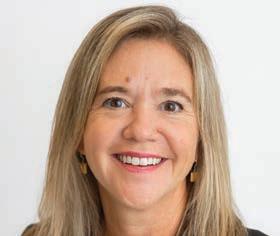

By Kate Carlson
Progressive Companies, the multidisciplinary design firm behind the Acrisure Amphitheater, soccer stadium and Fulton & Market projects, has switched up leadership and named a former tech executive as its new president and CEO.
Meredith Bronk previously served nearly 25 years at Grand Rapids-based Open Systems Technologies Inc. (now named Vervint), including eight as president and CEO, before working for the past two years as head of portfolio operations at South Bend, Ind.-based private equity firm Graham Allen Partners.
“When I think about the core of what Progressive Companies is, (my experience) is very transferable as far as just the approach and the overall business,” Bronk told Crain’s Grand Rapids Business. “My perspective puts me in a position to be able to say, ‘How are we helping people do their best work?’”
Bronk officially stepped into the role of leading Progressive Companies Nov. 6, succeeding longtime president Bradley Thomas, who will stay at Progressive and work more closely with clients on Grand Rapids riverfront and skyline defining projects.
“My tenure here is all about honoring what’s been built, building on the core of that and sustaining and growing,” Bronk said. “When I think about what Progressive Companies looks like 10 years from now, it’s what we are today and being an industry leader in something that probably none of us have thought about yet.”
Pulling from her background in tech, Bronk added that she plans to look at where technology is used and how it can be leveraged by Progressive going forward.
“The (private) equity firm that I just came from uses data and (artificial intelligence) as its core thesis,” Bronk said. “So I’ve been thinking a ton just in general about how to use data and AI to make businesses even better.”
The leadership changes are “a marriage between strategy and succession planning” for Progressive Companies, Thomas said. The company began long-range planning about six years ago,
plotting a way forward to grow the firm in different ways, which included some restructuring and changing the name from Progressive AE to Progressive Companies, Thomas said.
“If you’re thinking football, I would say I’m entering my fourth quarter, but the game is not over yet,” Thomas said. “There is still lots of game to play.”
Thomas examined his role at the firm and determined he could add the most value by focusing on three transformational projects in various planning and development stages in downtown Grand Rapids: the Acrisure Amphitheater and soccer stadium, as well as the Fulton & Market project planned for the former Charley’s Crab restaurant site.
“I’ve spent 25 years in this community I care deeply about and I’m candidly having a lot of fun with how the face of our city is going to evolve in the next three to five years,” Thomas said. “There is heavy lifting on the front-end of those projects that involves finding sites, aligning stakeholders and finding funding and putting in operation structures to help everything come to fruition.”
Thomas has spent a lot of time assembling teams of experts and shepherding large projects forward for the owners, he said.
“That work has certainly heavily focused the last few years on the Grand Rapids riverfront,” Thomas said. “But I think it will travel and allow me to provide similar types of services for other clients venturing on large, complex initiatives.”
Highly visible, marquee projects like the Grand Action 2.0 developments and Fulton & Market “provide a sort of launch pad” for Progressive Companies to continue to grow and leverage that into what happens next, Thomas added.
“This past year we hired a new practice leader in the area of sports entertainment, in part building from the work we’re doing here in Grand Rapids with the amphitheater and soccer stadium,” Thomas said. “We’ve already landed a couple of other exciting sports-related venues in the really early stages right now. We’ve got projects around the country, and in the sports and entertainment market sector we see that as one that will travel well.”
By Rachel Watson
A developer proposing an infill neighborhood just west of a busy intersection in Walker has been sent back to the drawing board to address concerns over density, traffic, road design and water drainage on the site.
Tim Raredon, doing business as Bat Flip LLC, recently filed plans with the city of Walker for an unnamed neighborhood with 46 single-family lots on a more than 19acre parcel he owns at 4519 Richmond St. NW, west of the intersection of Wilson Avenue/M-11.
The Walker Planning Commission on Oct. 23 voted unanimously to table Raredon’s requests for preliminary area site plan review and to rezone the property from commercial and agricultural to low-density residential to give Raredon time to revise his plans.
In response to neighbor feedback, the board would like to see an amended plan containing fewer and larger lots and a reconfigured placement of the proposed access road to slow traffic.
Planning commissioners also said they would like the applicant to conduct traffic and wetlands
studies and work with the city engineer to address water drainage issues on the site, which several neighbors indicated is a problem.
Raredon has prior experience building high-end homes through a former business, Caledonia-based Platinum Custom Homes LLC. He is not billing the homes in this proposed project in Walker as highend, and he plans to sell the lots to other builders rather than constructing homes himself, he told Crain’s Grand Rapids Business.
Raredon acquired the property in 2018 from Leslie and Edwin Vanportfliet for an undisclosed price. Initially, he used it for logging and farming before devising plans for housing on the site.
“I wanted to get a place that I could deer hunt on for a while, and then someday in the future, develop the property,” he said, noting that he pivoted to housing development when his hunting blinds were stolen off the property and farming turned out to be more effort than expected.
“(Those issues) seemingly moved us along quicker to doing what we’re doing now, which I think is a great thing for Walker and a good thing for that area and that spot,” he said of the housing plan.
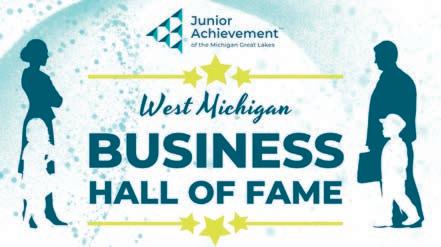

The neighborhood would border Orchard Ridge, another single-family development to the west. Raredon plans to build a new access road heading north off Richmond Street for the development, as well as making connections to stub roads in the Orchard Ridge neighborhood.
About 17 Orchard Ridge residents spoke during a public hearing on the project last month with concerns about traffic, density, water drainage and environmental issues tied to the site’s former logging and farming uses, as well as the presence of suspected wetlands.
“There’s already a water problem, and if it’s not done right, there’s going to be a bigger water problem,” said Helen Popelar, who said her backyard in Orchard Ridge routinely floods, and she’s worried more houses would exacerbate the issue.
Kurt Nummerdor, also of Orchard Ridge, said he wants to see a traffic study done.
“The corner of Richmond and Wilson is a big traffic issue. I’ve seen people die there in traffic accidents, and seen a number of bad collisions,” he said. “… That really should be studied before any development














like this is even considered.”
Some neighbors weren’t opposed to the development but said they want to see it “done right.” Dan Ralston, whose property would border this development on the north end, said he was surprised to learn Raredon’s property is currently zoned for commercial use.
“Quite frankly, done right, I would much rather have my house back up to another neighborhood than a commercial property,” he said. “So I am not completely against this, but I think that there are plenty of things that need to be addressed in the proposal.”
Planning Commissioner Tyler Khorfage pointed out that very few new proposed projects in Walker draw initial support from neighbors, and that he believes development is inevitable.
“Just remember, people didn’t want (your) development, (Orchard



Ridge), either,” he said. “The north end of the property is zoned commercial, so if somebody comes in with a plan with all the proper setbacks, with everything to code, there’s not a dang thing you could do about putting commercial in there. It would go in, because they have the right to develop it. … Do you want a neighborhood, or do you want commercial behind you?”
Raredon told Crain’s that while it was disappointing to hear so many strong negative reactions from neighbors, he is planning to increase the lot widths to 90 feet to mirror the lot sizes in Orchard Ridge. He also will reposition the access road to create a curved, rather than straight street entrance off Richmond to reduce traffic speeds. Together, he estimates those changes will require the elimination of about four units from the development plan.

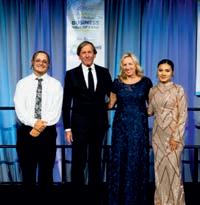




By Elizabeth Schanz
Manufacturing defense contractors within the next year will be required to meet new cybersecurity standards for their operations to maintain contracts involving the U.S. Department of Defense.
Known as the Cybersecurity Maturity Model Certification (CMMC) program, the standards have been under development for nearly three years. The proposed rules encountered some delays along the way as government officials and technology consultants warned that a vast majority of defense manufacturers weren’t adequately prepared to adopt the standards.
However, with a final rule clarifying timelines for implementation and standards, manufacturers with DoD contracts need to act now to work to comply with standards or face losing defense contracts to competitors that are, experts say.
The CMMC framework aims to create a cybersecurity standard for both prime and secondary contractors that are part of the Defense Industrial Base.
While the final rule was officially published on Oct. 15 and the CMMC-specific terms are just beginning to ramp up, widespread adoption of the requirements will likely start showing up in contracts in about a year, said Jeff Williams, the

turers in West Michigan.
“But just because the DoD doesn’t say it needs to be in the contracts doesn’t mean that the prime contractors aren’t going to come back and say, ‘If you want to be part of our supply chain, you’ve got to get the certificate now,’” Williams said. “For most of them, it’s really that the time of ‘we’ll wait and see’ has passed. This final ruling made it a reality for them, and now it really is becoming, ‘OK, what do we need to do and how do we do it?’”
ply chain need the certification, consolidates security controls and establishes a timeline for the assessment for prime contractors.
“The version three just continues to do what version two did, and that was to clarify some of the actions,” said Mark Tellier, owner and president of Colt Cyber Security Consultants LLC near Grand Rapids. “Is it going to be life altering? No. But is it going to be process altering? Yeah.”
While the structure is relatively consistent with the initial framework and plan, the final rule simplified which firms need a cybersecurity assessment, refined the
paredness need to be completed.
Mark Pardee, president of Cascade Township-based Prescott LLC, an accredited organization that helps defense contractors prepare for their certification assessment, said contractors “need to be ready for (CMMC) assessment” by mid-2025.
Pardee said about 80% of companies’ work needed for certification is documenting that all of the required cybersecurity controls are in place, and then making a training and culture change to operate a CMMC-compliant program.
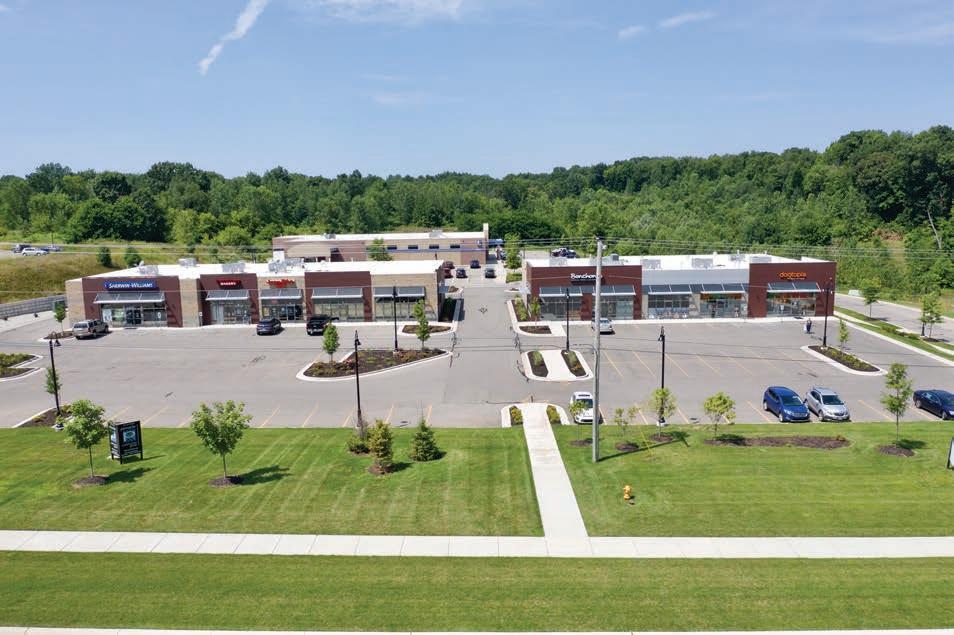
–Michael Garrett, President and CEO
In recent years, manufacturers have been slow to initiate the assessment process through CMMC compliance organizations. Now, compliance consulting firm Prescott is experiencing an influx in assessment requests with the final rule in place.
“The manufacturers need to make a decision and move sooner rather than later. Because, for one thing, organizations like ours are getting busier and busier. So time is of the essence,” Pardee said. “Even within the defense industrial base, a lot of the manufacturers have still been waiting and saying, ‘Oh, it’s not going to happen. It’s been years.’ And now that the rule is final, we’ve seen a big uptick in our sales calls and our activity in the last 45 days.”
Two major challenges that have made manufacturers wary to start the process are the time and cost of obtaining CMMC. Pardee said these barriers are particularly prominent for small manufacturers that are “really struggling with the decision of whether to leave the defense industrial base or not.”
It’s often still a 12- to 18-month process to get ready for the assessment, while preparing for and completing an assessment could cost hundreds of thousands of dollars, Pardee said.
Most defense contractors will likely need Level Two compliance level that requires passing 110 cybersecurity controls, Tellier said. Level Two includes incident response procedures, conducting regular vulnerability assessments and providing security training to employees.
He also noted that reaching compliance can be a time-consuming and costly effort.
“You have 110 security controls that you’ve got to spend time, money and resources on in order to implement within your organization,” Tellier said. “But if they’re not doing the analysis or the gap analysis to see what is really required on their network to start meeting the compliance, it’s taking some organizations over a year to align time, money and resources correctly to start remediating some of these fixes.”
Some of the cybersecurity controls can be enacted in phases or get some leeway if companies make efforts to achieve them and complete a plan of action. From there, companies have six months to complete the plan of action that often includes setting up a network with multi-factor authentication, encrypting emails and data, and training employees.
“Things are not difficult, but they are difficult if cybersecurity or I.T. is not your business,” Tellier said. “These manufacturers all do what they do, and they do it all very well. But now the federal government says, ‘Here’s this cybersecurity requirement we’re putting on top of you.’ So now they have to integrate something that is just totally foreign to what they’ve been doing for 10, 20, 30, and some organizations, 70 years.”
“The industry estimates are $200,000 to $400,000 for a contractor to get ready, get everything implemented and go through the assessment,” Pardee said.
While the cost is lofty, the state of Michigan is working to make the CMMC process more affordable, Tellier said.
The state-backed Michigan CyberSmart Program, for example, locks in an initial price for a gap analysis. Michigan defense contractors can receive a $1,500 gap analysis, while it can cost companies outside the defense industrial base between $10,000 to $50,000 for the analysis, Tellier said.
The Michigan CyberSmart Program’s second phase offers up to $22,500 in cost-share grant funding for companies to address identified deficiencies in I.T. infrastructure.
While the DoD may include some grace periods and extensions to obtain the certification, Williams warns that contractors should be in the process of hitting timelines to keep them from worrying about being in violation of contracts. Additionally, companies that are ready and do get assessment “are definitely going to be at a competitive advantage here in the near future,” he said.
In addition to maintaining security with defense contracts, Tellier said the certification is also good practice for businesses in protecting themselves against cyber threats.
“It’s not if, it’s when you get hacked,” he said. “What are your next actions to either lessen that effect or to be able to recover from that effect? We try to say that you can’t just be reactive with cybersecurity today because there’s just the advanced persistent threat.”
By Abby Poirier
Four months after hitting the market, Monsoon Vietnamese Cuisine has a new owner, as a husband-and-wife team look to open a New Orleans-inspired Cajun and Creole concept in the downtown Grand Rapids space after the start of the new year.
Phong Nguyen, who opened Monsoon in 2022, is selling the 2,200-square-foot restaurant to Raphael and Jessica Jones in a deal expected to close in mid-November.
The Joneses are looking to open their own concept, Garden District, in the 75-seat restaurant at 55 Monroe Center St. NW, bringing a taste of authentic New Orleans cuisine to downtown Grand Rapids.
“My family lives in New Orleans,” Raphael Jones said. “Every year we’re down in New Orleans (to visit), and it’s always sad for us when we come back. New Orleans is just such a melting pot of so many different foreign influences: it’s French and Spanish and Caribbean.”
Jones noted that Grand Rapids lacks an exclusively Creole restaurant, though some local restaurants serve southern food, which Jones
believes is often confused for the spicier, seafood-focused Creole and Cajun cuisine that comes from New Orleans.
The Joneses named their restaurant after the historic Garden District in New Orleans, which has produced some of the nation’s top chefs, including James Beard Award winners Jamie Shannon, Emeril Lagasse and Tory McPhail, to name a few.
“We’re going to capture New Orleans food, and we want to name (the restaurant) after the New Orleans hot spot for food,” Jones said.
Though the deal has yet to close, Raphael and Jessica Jones have been quietly operating the restaurant since August as they prepare to transition into ownership.
While Garden District will be the duo’s first foray into restaurant ownership, they’re familiar with the industry.
Jessica Jones’ resume includes seven years at Maru Sushi and Grill, where she worked her way from server to general manager before leaving the company in August to start Garden District.
Raphael Jones has 10 years of experience in restaurant management, including at Maru. He is cur-
rently general manager of Buddy’s Pizza, located on 28th Street, a position he is leaving to operate his new restaurant full-time.
Nguyen said the couple’s combined experience secured his confidence that they could successfully operate the business.
“The only thing I don’t have is experience like they do, managing a restaurant for a long time,” he said. “They believe that they can do a new thing in the downtown area, and I’m glad that they believe in the concept. They’ll do a good job. I can even tell (by) the way they run Monsoon, I already love it.”
Jessica Jones said she and her husband have discussed opening their own restaurant for several years, but it was “always kind of a far-fetched dream” for them.
“In the early part of the summer, we really turned words into actions and started making things happen,” she said.
Raphael Jones said he first saw Nguyen was looking for a new owner for Monsoon through Crain’s Grand Rapids Business, which reported the listing in June.
“I read (the story) and I looked at my wife, and I was like, ‘Monsoon is for sale,’” Jones said, noting that
Retrofitting existing spaces offers cost, speed and sustainability benefits for advanced manufacturers.
By Rockford Construction
As advanced manufacturing companies expand and innovate, they must decide whether to build new facilities or renovate existing ones. Rockford Construction, a leader in manufacturing space retrofits, knows that renovation offers a smarter, faster and more sustainable solution — especially for specialized spaces like dry rooms and clean rooms.
“Renovating an existing space offers significant cost savings and gets manufacturers up and running more quickly,” said Josh Rewa, Vice President of Industrial Construction at Rockford. “We’ve seen clients realize considerable benefits by optimizing existing facilities rather than building new from the ground up.”
Cost Efficiency and Speed to Market
Cost is a major factor in deciding between renovation and new construction. New builds involve substantial expenses, including
land acquisition, regulatory approvals and escalating material costs. Renovating existing facilities can reduce these costs, allowing companies to focus resources on specialized fit-outs needed for advanced manufacturing.
“By renovating, companies can allocate their budget more effectively,” Rewa said. “This approach allows them to achieve their operational goals without the financial burden of a new build.”
Renovation projects can often be completed more quickly than new construction, enabling companies to respond rapidly to market demands. “Time is of the essence,” Rewa said. “The faster we complete a renovation, the sooner our clients can capitalize on new opportunities.”
A Sustainable Choice
Sustainability is a core value for many manufacturers, making renovation an attractive option. Retrofitting existing structures

the Monsoon space was previously home to coffee shop West Coast Coffee, which was operated by a friend of his, Doug Bowman.
“I spent so many years sitting out in front of here drinking coffee,” he said.
West Coast Coffee closed in 2015 after 10 years in business, according to local reports.
“Monroe Street really, you know, embodies what the Garden District vibe is,” Jones said. “(It was) the perfect size and a location for what we’re looking for. The pieces just kind of fell into place after that.”
The Joneses anticipate closing Monsoon within the first two weeks of January, after which they’ll lightly renovate the space and open Garden District.
Other than some new paint and fixtures to reflect the new concept, no major changes are planned for
the restaurant space.
Raphael Jones will bring in his brother, a New Orleans chef, to open the restaurant, making certain the menu accurately reflects the region’s flavor profiles.
Garden District will focus on Cajun-Creole fusion, offering classic New Orleans fare like gumbo, etouffee, muffuletta sandwiches, beans and rice and a variety of po’ boy sandwiches.
As well, a cocktail menu will offer classic New Orleans drinks like the hurricane, Sazerac, daiquiris and a coffee martini.
While selling the restaurant is a relief, Nguyen said it’s also been a tearful goodbye.
“It’s my baby, it truly is,” he said. “This was my first restaurant, and I slept so many nights in the restaurant, from when it was built out until I was finished.”
minimizes environmental impact by reducing waste, limiting carbon emissions and contributing to a circular economy.
“Retrofitting existing spaces supports a more sustainable approach,” Rewa said. “At Rockford, we integrate sustainable practices into our renovations, using energyefficient materials and efficient building techniques.”
Leveraging Strategic Locations
Existing manufacturing facilities often benefit from locations near supply chains, transportation hubs and skilled labor pools. Renovating these locations allows companies to maintain these advantages while upgrading their capabilities. Existing infrastructure — like utilities and service connections — can also be repurposed or enhanced.
“Maintaining a facility in a strategic location is a huge benefit,” Rewa said. “Our team specializes in adapting infrastructure to meet advanced manufacturing needs,

from upgrading electrical systems to retrofitting air quality controls.”
Successful Renovation Strategies
Rockford begins each project with a comprehensive assessment of the facility’s structural integrity, utility capacity and suitability for advanced manufacturing. This groundwork informs a tailored renovation plan.
“We customize each project to the client’s needs,” Rewa said. “Advanced manufacturing demands precision, and we ensure that spaces like dry rooms and clean rooms meet exacting standards.”
Equally critical is collaboration and communication throughout the renovation process. “Open communication is key,” Rewa said. “We work closely with our clients to ensure the renovation stays on track and delivers the results they expect.”
Rockford’s Proven Expertise
Renovating instead of building new offers advanced manufacturers significant benefits in cost, speed, sustainability and strategic positioning. With hundreds of millions of dollars in successful projects, Rockford has established itself as a leader in adapting existing spaces for advanced manufacturing.
“Our track record speaks for itself,” Rewa said. “We help companies transform facilities into state-ofthe-art environments, allowing them to stay competitive and agile in a fast-changing market.”
Plan Your Renovation Project With Rockford https:// rockfordconstruction.com/

This year at the Great American Beer Festival in Denver, Colorado, brewers from across the country gathered, but our friends and fellow brewers from Asheville, North Carolina, were noticeably absent. The once-pristine water, essential to Asheville’s reputation for crafting some of the nation’s finest beers, had surged through town, destroying steel tanks filled with hundreds of gallons of beer and knocking buildings off their foundations. Hurricane Helene had left them unable to attend, as they focused on picking up the pieces of their businesses and shattered communities in the aftermath of the storm.

The destruction caused by Helene and other extreme weather events are becoming increasingly common across the country. For the craft brewing industry, this means facing an unpredictable future, with climate change impacting everything from the resiliency of our own infrastructure to the price and quality of future hops. As my colleague, Steve Bertman, at Western Michigan University reminds his students, it’s not just Michigan’s climate we need to worry about. Our entire supply chain — from farmers to suppliers — feels the effects of climate change, influencing

local brewing. Climate-related events are often quickly forgotten, but we must take them seriously, as the stability of our supply chains depends on predictability.
Here in Michigan we are seeing increasingly wetter springs, making it harder for our farmers to get seeds in the ground. Meanwhile, in the plains states, rising temperatures are forcing grain farmers to explore growing further north. These seasonal changes and extreme weather swings are altering growing seasons, impacting the
starch levels in our barley, and bringing new pest infestations — threatening the core ingredients of our beer and requiring our industry to adapt to this new normal. Despite these challenges, we remain undeterred. As we have always done in the face of change, our industry has shown resilience, coming together to adjust and rebuild. The craft brewing industry is built on cooperation and collaboration, and that same spirit extends to climate action and adaptation. Whether on the farm,
within our business model, or in Washington, D.C., collective action and investment are essential to protecting our communities, homes, jobs and businesses. At Brewery Vivant, we aim to lead by example. We were the first microbrewery to earn LEED certification, and we adhere to rigorous B Corporation standards. It’s our way of “beering” the change we want to see in the world. After all, making great beer requires more than just clean water — it demands a stable climate.
In a short time, artificial intelligence is everywhere — predictive analytics in business, autonomous systems in manufacturing plants, generative AI like ChatGPT in classrooms and machine learning in our streaming apps to suggest movies we personally would most like to watch.
AI is a game-changing technology that is estimated to contribute upwards of $16 trillion to the global economy by 2030 — more than the current output of China and India combined.
But AI also poses risks and produces fears about control over data privacy, integrity, fairness and job security. The state’s research universities — Michigan State University, the University of Michigan and Wayne State University — are using a thoughtful approach to developing technological advances and ethical uses of AI and generative AI that match our institutional values and principles. And we are working with students, faculty and staff across our campuses and people and organizations across Michigan and beyond to learn how to integrate and appropriately use AI and generative AI to augment
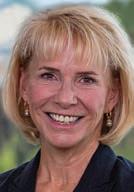


ies of what AI can do to make our institutions, graduates and industries in our state more competitive, effective, creative and successful.
work, not replace workers.
Our universities comprise Michigan’s University Research Corridor (URC), one of the nation’s top university innovation clusters. Together we conduct $2.8 billion in research and development, educate more than 152,000 students and employ nearly 71,000 Michiganders each year, with a net annual economic impact of $23.9 billion that reaches every county across the state.
We are dedicated to serving the residents, industry and the economy of Michigan. This includes pushing the boundar-
Dedicated research labs and groups focused on AI have formed across our campuses. Collectively our universities conducted more than $369 million in AI-related R&D over the past five years. From engineering to philosophy and biology to linguistics, AI spans academic fields and is often highly interdisciplinary and collaborative.
In addition to developing new AI technologies, our universities are leveraging AI to benefit humanity and society, from reducing health disparities and mitigating food insecurity, to improving K-12 education and the quality of our air and water. AI has been deployed to improve the productivity and efficiency in transportation, health care, finance, communications, security and entertainment, among other industries.
For example, Michigan’s Space Grant Consortium at UM funds research proj-
ects in areas relevant to the strategic interests of NASA, including in mobility, AI and sustainability, for undergraduate and graduate students and postdoctoral fellows at Wayne State, MSU and universities across Michigan.
Additionally, MSU researchers are working with colleagues from UM to make MRIs smarter by using machine learning to improve imaging and reduce errors.
And the Michigan Translational Research and Commercialization (MTRAC) Advanced Computing Technologies Innovation Hub at Wayne State supports applied research and commercialization efforts across a range of advanced computing disciplines, including AI, machine learning, natural language processing and robotic processes, and fast tracks technologies and innovations from labs at universities and nonprofits across the state into the market.
AI will impact our lives, our work and our world. We endeavor to lead not only in innovation and technology development, but also in ethics and integrity to ensure AI and generative AI are infused with our best traditions and values.
of nurses to organize. We have strong nurses and we built a very quiet campaign for the first three months. (Corewell) didn’t know we were coming. It’s out now and we’re going full steam.”
Moore said the organizing effort has taken so long because it’s organizing all Corewell East locations — hospitals in Grosse Pointe, Troy, Royal Oak, Farmington Hills, Wayne, Taylor, Trenton, Dearborn and the former Beaumont headquarters in Southfield — at once. The MNA tried to start with just the nurses in Royal Oak.
Since then, the union and Corewell have been sparring. Corewell has hired third-party consultants to address the bargaining unit effort by the nurses, people who Moore and two nurses who spoke to Crain’s on the condition of anonymity called “union busters.”
Posters and flyers have circulated across Corewell East hospitals informing the nurses of the potential dangers of unionizing, including the high fees the union charges.
“The Teamsters charge 2.5 times your hourly rate each month. If you make $38 per hour, you’ll owe them $95 every month. This high monthly fee doesn’t include the potential for additional initiation and assessment fees or fines,” a poster posted online from Royal Oak reads. “The Teamsters are trying to divide us. That is a preview of the culture the Teamsters want to create.”
A nurse at the Royal Oak hospital told Crain’s that the third-party consultants give individual 30-minute talks to the nurses about unionizing.
“We believe it is important to ensure our team members have all the information they need to make an informed decision,” Mark Geary, senior communications director for Corewell, told Crain’s in an email. “We have made external experts available to connect with our nurses.”
Moore said the Teamsters plan to file a labor complaint against Corewell in the coming days with the National Labor Relations Board. The union has already filed at least two complaints against Corewell this year, for alleged coercion and threats to its organizing efforts.
Those cases remain open with the nation’s labor agency.
One of the nurses who spoke with Crain’s said the unionization effort is a result of years of mistreatment by administrators, predating Beaumont’s merger with Corewell.
“We didn’t think we needed a union at the old Beaumont; it was run by the doctors and nurses,” the nurse said. “Not that we didn’t have administrators, but they always listened to the medical professionals. Then John Fox took over Beaumont and everything changed.”
Fox was appointed CEO of Beaumont Health in March 2015.
By 2020, Fox was facing rampant calls for his resignation, including a no-confidence vote by physicians that asked the board to remove him. Those physicians alleged patient care had deteriorated under Fox as the top executive of the eight-hospital system began cutting costs to make a merger more attractive.
Fox first tried to merge Beaumont with Akron, Ohio-based Summa Health in 2019, but called off the deal in May 2020, blaming the COVID-19 pandemic.
Meanwhile, widespread dissatisfaction culminated in two negative physician and nurse surveys. In June 2020, Beaumont signed a letter of intent to merge with Advocate Aurora Health, a 28-hospital system in Illinois and Wisconsin with $12 billion in revenue, and the doctors feared a loss of local control.
That deal, too, was scrapped, once again with administrators blaming the pandemic.
The clinicians appeared to take a
different tack when Fox announced the merger with Spectrum and largely supported the deal, with Fox leaving when the deal was completed in February 2022.
But the nurses told Crain’s the conditions have largely not improved under Corewell.
“We never have a seat at the table,” the nurse said. “Our pay is terrible, we get no benefits and our co-pays are insane. But Priority Health [Corewell’s in-house insurer] made record profits again. Meanwhile, they are cutting staff.”
Geary told Crain’s that Corewell is proud of the compensation it provides to nurses and is commensurate with peers.
“We are proud to offer competitive pay and benefits to our team members, regardless of where they live,” Geary wrote. “Our pay and benefits are aligned to national data.”
At stake for Corewell is runaway labor costs at its former Beaumont hospitals. As the nurses pointed out, doctors and nurses enjoyed a level of freedom at the old Beaumont and the health system’s longstanding public image was that it hired the best and brightest among its doctors and nurses.
That costs money.
Labor costs are simply higher in Southeast Michigan than in Grand Rapids, largely due to far more competition than there is on the west side of the state.
Shortly after the systems merged, Beaumont and its eight hospitals had higher expenses than Spectrum’s 11 West Michigan hospitals. Between Feb. 1 and June 30, 2022, Beaumont spent $1.21 billion on wages and benefits, compared to $980 million for Spectrum West Michigan during the first six months of that year.
Corewell has since merged its reporting, eliminating the ability to compare its West and East operations. It is the largest health care
system in the state and reported $8.3 billion in net patient revenue in 2023, up from $7.5 billion in 2022, according to data compiled by Crain’s.
Corewell West, which holds market share domination in West Michigan, does not have a unionized workforce. But unions in the health care sector in metro Detroit have grown tremendously since the COVID-19 pandemic.
At least three new unions have cropped up at Michigan Medicine in Ann Arbor in recent years. The system just avoided a strike by the 2,700-member SEIU Health Care Michigan union last month after reaching a deal. Another union, The United Michigan Medicine Allied Professionals and its 4,600 members, authorized a strike in a vote last month.
Grand Blanc-based McLaren Health Care also reached a deal recently with its nurses union at its Flint hospital after it sued the union and two of its own employees over allegations that the union encouraged the public to not seek care at McLaren Flint during contract negotiations.
And earlier this year, emergency room doctors at Henry Ford St. John Hospital — formerly Ascension St. John — in Detroit walked off the job in a one-day strike.
Since 2021, there have been eight strikes and 27 labor protests in Michigan in the health care and social assistance sector, according to Cornell University’s Labor Action Tracker. And this year, the National Labor Relations Board has received petitions for labor representation from groups of clinicians and other workers at more than 15 health care facilities and service providers in Michigan.
Jeremy Millroy, a professor of history and labor history expert at Wayne State University, said the rise of unionization in the sector is a response to corporate profitability and union wins in other sectors.
“Corporate profitability is high, but these gains are not getting shared
BDO USA
BDO USA has named Jonathon Geisen a Principal in the firm’s Tax practice. As a trusted tax advisor to public and private multinational corporations, Geisen is the firm’s Central Geography Leader for Accounting for Income Taxes and Total Tax Managed Services. With nearly a decade of experience, he has served clients across a variety of industries, including manufacturing, distribution, technology and private equity.

ACCOUNTING
BDO USA
BDO USA has named Tom Walch Principal and Chief Information Security Officer of the firm. Walch is responsible for the strategy and operations of the firm’s cybersecurity program, designing and implementing practices to protect its systems, data, and people from cybersecurity threats. Under his leadership, BDO achieved ISO 27001 certification and has undertaken multiple successful SOC2 audits, demonstrating the firm’s commitment to protecting confidential information.
BANKING & FINANCE
Mercantile Bank

Mercantile Bank is pleased to announce the addition of Tim Davison, SVP, Commercial Banker. With over 30 years of commercial banking expertise, he will focus on meeting the needs of Lakeshore businesses from Northern Ottawa County through Manistee County. Davison works collaboratively with his customers to achieve mutually beneficial outcomes. As a 25-year Spring Lake resident and Rotarian, Tim enjoys water sports on the Lake, working out, and spending time with his wife and adult children.

by workers, who have also been squeezed by inflation and price gouging over the past several years. Workers are opting to organize to achieve their goals, and are somewhat supported in doing so by a tighter labor market in recent years,” Millroy said to Crain’s in an email.
Major health care companies have been seeing profits.
“At Kaiser Permanente, where over 75,000 workers struck last year, the company had reported over $24 billion in profits in the previous five years. Corewell reported $170 million in operating income the first six months of the year, which is up,” Millroy said in the email. “Corewell and Kaiser are both nonprofit companies, which means they have significantly less tax burden than other major employers.”
Millroy said well-publicized victories by unions — like the UAW, SAG-AFTRA and the writers’ guild in Hollywood and Starbucks Workers United — have inspired workers to organize.
The Corewell nurses will vote to organize under the Teamsters Nov. 12-14. As of now, the vote will occur in person, something Moore said is unfair and an attack by Corewell, which requested the vote be in-person versus by mail.
“A nurse involved in four surgeries is expected to leave a surgery to vote? That’s not fair,” Moore said. “(Corewell) will do anything they can to defeat our effort. Mail-in ballots is the only fair way to have this election.”
Geary said the in-person vote is the right way to do it and that the organization believes the effort will fail.
“We respect our team members’ rights to explore joining a union; however, we believe our ability to provide high quality care to our patients and maintain a positive work environment is best achieved through a direct working relationship with our nurses,” Geary wrote. “We do not believe a majority of our nurses want to be unionized.”
Dustin Walsh is a reporter for Crain’s Detroit Business.
Advertising Section
To place your listing, visit https://www.crainsgrandrapids.com/ people-on-the-move/ or, for more information, contact Debora Stein at 917.226.5470 / dstein@crain.com
BANKING & FINANCE
Voisard Asset Management Group

Hope Network

Voisard Asset Management Group is pleased to announce Daniel Haines as our newest Senior Wealth Manager. As a CFA® charterholder and a CERTIFIED FINANCIAL PLANNER™ practitioner with over 20 years of experience, he will be responsible for the development of comprehensive wealth management plans, the management of investment portfolios and the development of firm-wide investment strategies. Dan serves his community volunteering on two boards and enjoys being with his family in his free time.
Hope Network is excited to welcome Jaime Counterman as its first-ever Chief Advancement Officer. A passionate leader with 15+ years of nonprofit experience, Counterman will lead the development and execution of the organization’s comprehensive advocacy and philanthropy strategy. With a deep-rooted passion for community, she is committed to fostering a world where everyone can thrive, which makes her a perfect fit for Hope Network.


years ago with the initial aim of creating an in-field sorting system for apples.
“Growers were very supportive and excited (about the sorting system,)” he said. “But after a demonstration, some growers came to me and said, ‘It would be nice if we could have the robotic harvester to incorporate with our in-field sorter because it still requires the workers to pick apples to feed into the sorter.’ So basically, that’s how we got it started. The robotic harvester is really badly needed.”
Currently, the equipment is capable of picking an apple every 3.6 seconds in high-density orchards — still slower than a human harvester — and achieves an 80% success rate while picking with minimal bruising to fruit.
While the technology has been proven to work, the inventors say they’re still approximately five years away from being able to put their product on the market as they continue to work through the technical intricacies surrounding ease of navigation and harvesting speed.
on the deal filed with the U.S. Securities and Exchange Commission.
The situation changed that fall as ChoiceOne’s share price fell during the third quarter. By late October 2023, directors at Fentura Financial concluded that the corporation should cease discussions about a potential merger, “largely based on the recent volatility in ChoiceOne’s stock price and resulting transaction valuation concerns,” according to the proxy, which outlines how the deal eventually came together.
At the same time, Fentura’s directors also started due diligence about a possible merger with another potential suitor that had been brought forward by an investment banking firm. On Nov. 1, 2023, ChoiceOne and Fentura “formally agreed to cease any fur-
AIMS is a collaboration between the U.S. Department of Agriculture’s Agricultural Research Service (USDA-ARS) and Michigan State University.
Li is an associate professor of mechanical engineering in MSU’s College of Engineering with a Ph.D. in aerospace engineering. Lu is an agricultural engineer with USDA-ARS, a position he’s held since 1994, and serves as an adjunct professor at MSU’s department of biosystems and agricultural engineering.
The pair started working together in 2019 and developed their first robotic apple picker in 2021.
The equipment is sorely needed to help Michigan farmers deal with ever-rising wage costs and apple harvests that set a state record in 2022 at 1.36 billion pounds and fell just short in 2023 at 1.15 billion pounds. Michigan is the second-largest producer of apples in the U.S. behind the state of Washington.
While farmers welcome the strong harvests, their optimism is tempered by rapidly escalating labor costs, particularly for migrant farm workers on H2-A visas needed to hand-pick the crop. The federally mandated Adverse Effect
ther preliminary discussions about a potential strategic combination of the two companies,” according to the proxy.
ChoiceOne’s share price eventually rebounded by late January 2024, when executives from the two banks and representatives from their investment banks met at a banking conference “to provide each an update on their respective bank’s operations, strategic direction and market trends.”
About a month later after talks with investment bank Hovde Group LLC to consider its options, Fentura’s board unanimously decided “that it was in the best interests of Fentura shareholders to move forward exclusively with the potential strategic merger combination with ChoiceOne,” according to the proxy statement. Preliminary merger discussions resumed in March.
The two corporations continued talks through the spring, exchanged proposals in early summer, and
Wage Rate (AEWR) for H-2A workers varies by state, but rose for the 10th consecutive year in Michigan in 2024. Currently, Michigan farmers are paying $18.50 an hour, an increase of 6.7%, or $1.16, over last year’s rate of $17.34 for essential migrant labor.
“Labor costs account for more than 50% of total production costs for tree fruits,” Lu said. “Picking is the single-largest cost in the production of apples. … It hurts the industry badly.”
In addition to labor costs, farmers also are paying for transportation for workers, housing and the administrative costs of the program itself, which can drive total hourly costs closer to $30 for H-2A workers in Michigan.
The inventors of AIMS want to provide a solution to Michigan growers’ escalating costs by bypassing the need for human hands to pick apples.
Phil Schwallier, owner of Schwallier’s Country Basket in Alpine Township and a former MSU Extension educator, sits on the advisory board for the AIMS project. He said the H-2A wage mandates have increased harvesting costs at his orchard by approximately 20%.
eventually worked out a deal that was approved by both boards of directors and publicly announced July 25. Under the terms of the deal, Fentura Financial shareholders would receive 1.35 shares of ChoiceOne Financial common stock for each of their shares. If approved by shareholders and regulators, the merger would create the third-largest bank headquartered in Michigan with 56 offices across the Lower Peninsula. The combined bank would have $4.5 billion in total assets, nearly $3.7 billion in total deposits, and “will result in manageable tangible book value dilution with an expected earn-back period of less than three years,” according to the proxy statement.
Shareholders at Fentura Financial will decide Dec. 12 whether to approve the merger into ChoiceOne Financial Services, the parent corporation for ChoiceOne Bank.
In a separate meeting at the same time in Sparta, ChoiceOne
Over the past 20 years, he’s been modernizing his 100-acre apple orchard to narrow, trellised trees, both to prepare for automated harvesting technology and for ease of maintenance.
“Maybe 50% or 60% of my orchard could be picked by this machine,” he said. “In five years, maybe 80% of our orchards will be the right structure and dimensions (for automated picking).”
The current robot, which MSU has tested in orchards like Schwallier’s, has two arms, and harvests at speeds of 3.6 seconds per fruit. It does so by removing the fruit with a vacuum system that pulls and twists apples to detach them from the trees and then deposits them onto a conveyor belt, which moves the fruit to bins for sorting and storage.
By using a vacuum system to remove fruit from trees rather than a robotic hand, AIMS cuts down on picking time, as the system does not need to manipulate individual fingers to pick the fruit. Simplifying the harvester keeps costs lower and makes for easier repairs should the equipment break down, according to the inventors.
Li said the goal is to increase the speed to 2 seconds to 3 seconds per
Financial Services shareholders will decide whether to increase the corporation’s authorized common shares from 15 million to 30 million and to approve issuing more than 6 million of the additional shares for the all-stock transaction. The merger “will allow ChoiceOne to expand its franchise in attractive markets” in central and Southeast Michigan, “none of which ChoiceOne currently operates in and which are adjacent to its current markets in Southeast Michigan.” The merger also would “enhance earnings and profitability beginning in 2025” and “provide greater operating scale,” according to the proxy.
Similarly, Fentura Financial directors view the deal with ChoiceOne as an opportunity to create a combined bank “with additional resources necessary to compete and expand more effectively in Michigan,” according to the proxy statement. Executives and direc-
fruit, which is equivalent to a human worker.
“Our goal (is that) each robot module will be independent and equivalent to a human worker,” Li said. “We still have a lot of work to do with our current robot, but I’m optimistic that in the next two or three years, we will reach that target.”
Lu noted that future iterations of the robot will address its size so it’s easier to navigate between tree rows and has more maneuverability in traditional orchards, which don’t grow in vertical, trellised rows.
The AIMS project also intends to add an apple sorter to the automated unit that uses AI to spot blemishes and irregularities in fruit.
AIMS has filed patents for its technology, which Lu anticipates could hit the market over the next five years. First, the team needs to iron out flaws in the equipment and find a developer to bring the project to life at a commercial scale. Lu thinks many orchards will be quick to adopt the technology.
“Most farmers are looking for new technologies (and) methods that can help improve their production as well as (lower) their costs, so they are very excited about this technology,” Lu said.
tors at Fentura Financial who hold 10.4% of its common stock have agreed to vote their share in favor of the merger.
ChoiceOne Bank currently operates 35 offices in Kent, Lapeer, Macomb, Muskegon, Newaygo, Ottawa, and St. Clair counties with $2.72 billion in total assets and $2.2 billion in total deposits. The corporation last month reported $7.3 million in net income for the third quarter, or 85 cents per diluted share. Net income through the third quarter totaled $19.5 million, or $2.46 per diluted share.
Fentura Financial, the parent company of the more than 125-year-old The State Bank, has 21 offices in Bay, Genesee, Ingham, Oakland, Saginaw and Shiawassee counties with nearly $1.8 billion in assets and $1.47 billion in total deposits as of Sept. 30. The State Bank will take on the ChoiceOne name after the deal closes, which is expected to happen in the first quarter of 2025.
hundred million” dollars.
The artificial intelligence, cloud and enterprise data center provider closed in September on $5 billion in new debt financing for new projects across its four campuses, according to a statement on the financing deal. The company has “prime” data centers in Kent County, Reno, Nev., Las Vegas, Nev. and Atlanta, Ga., and also is in the process of building a “prime” data center in Austin, Texas.
Switch’s third data center planned for the pyramid campus in Gaines Township is included in investment plans for the $5 billion in financing, the company confirmed.
“The series of financings we have completed this year ideally position
us for growth opportunities at the forefront of cloud, AI and enterprise, while affirming our commitment to sustainability,” Switch President Thomas Morton said in a statement.
“We are excited to enhance our liquidity position and support our robust development pipeline.”
The financing the company announced Sept. 12 included $4.25 billion of sustainability-linked borrowing base facility, as well as a $770 million revolving credit facility. Switch plans to use the proceeds from the debt financing “to fund the development of new projects totaling over $5 billion of total contract value across four campuses.”
Switch also plans to apply some of the proceeds to refinance some of its existing debt related to a 2022 deal with DigitalBridge and IFM Investors that took the former publicly traded company private.
More than 25 banks participated in the financing, according to a statement.
In early September, Reuters reported that Switch was weighing a new initial public offering “as early as 2025” that would value the company at around $40 billion, including debt. The report noted increased demand from artificial intelligence companies was creating a rush for new data center capacity.
Switch acquired the 138-acre pyramid property in late 2017 for $22.2 million, two years after Steelcase sold the property for $4 million. Switch’s website says the location has space for up to 1.8 million square feet of data centers. According to Gaines Charter Township property records, Switch has built out more than 1 million square feet of facilities at the site.
Switch is working with Consumers Energy and electric transmission company ITC Holdings to put an electric utility substation on the southern end of the property along 60th Street. The substation would connect to ITC’s overhead transmission lines along East Paris Road and distribution circuits to support development on the Switch campus, according to site plans filed with Gaines Township. The township’s planning commission approved Switch’s plans to add the substation at its Oct. 24 meeting.
“Once the data centers are constructed, they really don’t seem to have much of an impact at all, and are often not the most nice-looking buildings, but Switch did a reasonable job on theirs for such a prominent corner,” said Dan Wells, Gaines Township’s community development director.
Upon the property receiving state Renaissance Zone status that exempted the company from paying most state and local taxes, Switch had promised $5 billion in new investments and up to 1,000 jobs over several phases. Switch also has a payment in lieu of taxes (PILOT) agreement with Gaines Township and an agreement with Caledonia and Kent Intermediate school districts under which it pays real property but not personal property taxes.
Switch’s expansion comes as Microsoft Corp. considers developing data centers at two large sites the company acquired this year in Kent and Allegan counties, totaling nearly 600 acres. The Kent County location, also a former Steelcase property, spans 316 acres less than 5 miles from Switch’s property in Gaines Township.
From Page 3
made them illegal by default.
The surprise decision came after the township had been considering a zoning change to address short-term rentals over the course of the previous 18 months.
Park Township Neighbors argued that the township’s move to ban the rentals without properly amending the ordinance violated the Michigan Zoning Enabling Act.
The neighborhood group also contended the decision overturned decades of instances in which the township upheld the rights of property owners, under the same ordinance, to rent their homes and cottages as short-term rentals.
Park Township Neighbors President Jeremy Allen has said the group would rather see the township enact a cap that would prohibit additional rentals in residential areas but allow existing non-conforming uses to continue operating.
“Of all the townships in West Michigan, only Park Township continues to refuse to work with homeowners like us, who they’ve
From Page 3
We’re also seeing a wave of data centers across the country, and to be part of that is important.”
Over the past few years, The Right Place has led a 10-year effort to establish Grand Rapids and the region as a tech hub. The economic development organization released a 106-page Greater Grand Rapids Tech Strategy in 2022, and has set a goal for the tech sector to make up 10% of the workforce in Grand Rapids.
Mike Carnevale, founder of Grand Rapids-based software company Carnevale, said his 23-year-old company has had to overcome a national perception that Midwest-based tech firms can’t compete with those on the East and West coasts.
“This would help improve the perception — if it’s good for Microsoft, it’s good for us, too,” Carnevale said. “Data centers like this and investments from companies like Microsoft continue to give (clients) confidence and make it easier for organizations like mine to get new business.”
Meredith Bronk, the former CEO of Grand Rapids-based Open Systems Technologies Inc., now Vervint, said Microsoft’s presence in the area could create a talent beacon.
“Having a logo like that in town isn’t a bad thing,” said Bronk, who recently returned to West Michigan to serve as president and CEO of multidisciplinary design firm Progressive Companies. “It helps people who maybe are in Chicago now think, ‘Wow, Microsoft is there,’ and they might not end up at Microsoft, but they could end up at another company down the street.”
From a talent perspective, Thelen agreed that the projects could serve as a “foothold into our mar-
told in the past that short-term rentals were allowed,” Allen said in a recent email to Crain’s Grand Rapids Business.
Ottawa County 20th Circuit Court Judge Jon Hulsing so far has ruled in Park Township Neighbors’ favor. In December 2023, he decided to temporarily lift the ban until the litigation was resolved.
However, the judge said at a hearing last month that he’s now uncertain whether he has judicial authority and whether the court has jurisdiction to decide the case.
That’s because between December and March, the township “properly amended” its zoning ordinance to disallow short-term rentals outside commercial districts, he said during the Oct. 21 hearing.
“I’m questioning if that has changed the posture of this case,”
Hulsing said. “I’m questioning if (claims) that were originally brought (by Park Township Neighbors) that argue the zoning ordinance has been improperly amended have been rendered moot, and … this is now just a regular zoning case.”
Hulsing on Oct. 23 ordered both parties in the lawsuit to submit supplemental briefs by Nov. 4 argu-
ket,” he said.
Because data center operations don’t require a large number of employees, the projects can work in a relatively tight labor market, while overall project investments can total billions of dollars, Thelen added. According to Microsoft’s website, about 50 full-time employees and vendors are hired per building.
Carnevale said having Microsoft located nearby is “all positive,” but added that it could make it more competitive for smaller firms like his in the hiring process.
Data center development elsewhere also has boosted local tax revenue.
In Northern Virginia, which has been a hotspot for data center activity, tax revenue from computer equipment purchases for data centers increased by 170%, from $215 million in 2021 to $582 million in 2023, according to a report from CBRE Group Inc. That revenue went toward public education, infrastructure, public health, and parks and recreation facilities.
In Nebraska, dozens of data centers around the state resulted in $1.3 billion worth of tax revenue from the nearly 500 people working at the data centers and 1,500 construction workers building the projects in 2022, according to the CBRE report.
Data center development could provide additional local benefits in Michigan. For example, an undisclosed developer has been eyeing a 285-acre property in Berrien County for a project, which city of Benton Harbor officials support as an opportunity to get its water system out of a $2.5 million deficit by selling wholesale water supplies to a neighboring township for the project, according to a report from MLive.
A two-bill package in Lansing could make it easier for data center developments to get off the ground. In September, Senate Bill
ing whether the court has jurisdiction to decide the outcome of the case.
Park Township’s defense attorney Michelle Kitch of Bloom Sluggett PC responded during the hearing that the township would argue that, under the amended zoning ordinance, the plaintiffs should be required to apply first to the township for short-term rental zoning permits so that the township can determine on a case-by-case basis whether each short-term rental that’s operating can be considered a lawful non-conforming use.
If the township denies the requests, Kitch argued the plaintiff could then go before the township’s zoning board of appeals. If that fails, they could appeal to circuit court.
“Until then … the plaintiff has not exhausted its administrative remedies, and this case is not ripe for adjudication,” she said.
Park Township Neighbors’ attorney Kyle Konwinski of Varnum LLP said his client’s position is that the court does have “clear legal authority” to rule in the case.
“We think there’s clear legal authority that the case is both ripe for review from the court, because there’s no doubt that there’s an ac-
237 was passed in the Michigan House, half of the bill package that would exempt large data centers from sales and use taxes until at least 2050 with certain investment and job requirements. The other piece of the bill package, House Bill 4906, was passed by the Senate but failed to generate enough support in the House.
Microsoft’s potential Kent County project also would be near an existing operator undergoing an expansion, as well as six other data centers operating in greater Grand Rapids, according to Data Center Map, an online database of facilities worldwide.
Data center operator Switch, which operates at the former Steelcase pyramid building in Gaines Township, closed in September on $5 billion in debt financing that the company plans to use “to fund the development of new projects” across its four data center campuses. Company officials could not be reached for comment about its investment plans in West Michigan, but President Thomas Morton said in a statement at the time that the financings “position us for growth opportunities at the forefront of cloud, AI and enterprise, while affirming our commitment to sustainability.”
Most recently, Switch in October 2022 began a 312,000-squarefoot expansion project at The Pyramid for a second data center, in addition to an existing 360,000-square-foot data center at the site. Switch acquired the pyramid property in late 2017 for $22.2 million.
However, the state legislation as well as the Berrien County project have stalled because of environmental concerns with data centers, specifically related to water use for cooling and electricity use for powering the facilities.
Environmental groups have pushed for more transparency
tual controversy, if not numerous controversies, that exist,” he said.
“There’s at least two major disputes that the parties absolutely do not agree upon.”
The first is whether the 1974 ordinance did lawfully allow the use of residences as short-term rentals, and therefore anyone that began operating a rental under that presumption should automatically be allowed without a variance or permit.
The other dispute is whether the township’s initial attempts to change its short-term rental ordinance by enacting a regulatory ordinance — rather than changing the zoning code — were illegal.
Konwinski said he also believes that applying to the township for a permit, or appealing to the zoning board of appeals, would be “futile,” because “we already know what the outcome is going to be” if the township is the one deciding.
“I think the end result of it is simply that it takes longer to get to court,” he said, referring to the appeals he believes would inevitably come from Park Township property owners.
Some observers of the case agree that sending the decision back to the township may cause more
about the water and energy implications for these projects, particularly if the state is considering tax incentives for developers.
“We need to regulate these facilities regardless of whether they get a sales and use tax exemption, and it is especially important to make sure that if they are being subsidized by regular Michiganders that they are good corporate actors, and make sure they don’t pass any costs along to ratepayers,” said Christy McGillvray, political and legislative director of Sierra Club Michigan.
In Michigan and neighboring states like Indiana and Ohio, consumer advocates have warned against utility ratepayers shouldering the potential infrastructure costs of connecting data centers to the grid.
State Rep. Joey Andrews, a Democrat from St. Joseph who sponsored half of the tax incentive bill package, has said that the legislation addresses environmental concerns with protections against increasing rates on electric utility customers if new infrastructure buildout is required, as well as requiring municipal water hookup to prevent groundwater withdrawal, according to reporting from MLive.
Critics also have warned that a potential spike in electricity demand caused by data centers
problems than it would solve.
“Appeals would be backed up for three months, probably if they (the zoning board of appeals) have two or three meetings a week,” said Gerald Fisher, an emeritus law professor at Cooley Law School and a municipal legal consultant who follows short-term rentals. “They’ll be backed up for months, and then, everybody would file a separate case (appealing to the circuit court), and it would be a total waste of money.”
Stoermer, of the Michigan ShortTerm Rental Association, said while her group has not taken a formal position on this case, it “seems pretty cut-and-dried” to her that this question would best be resolved by the court because of the harm that neighbors claim the township caused.
“In a case like this, what the neighbors are saying is: ‘How this was handled did not give us our due process,’ … so I think that’s what we would expect to see happen,” she said.
Hulsing said he expects to take the supplemental briefs under advisement and decide on the matter of jurisdiction and judicial authority “in the next couple of weeks.”
would jeopardize Michigan’s new clean energy targets by requiring new, or extending the life of, natural gas plants to keep up power supplies.
“It is imperative we make sure these private tech companies reaping private profits and getting tax breaks on top of it are not demanding Michiganders foot the bill for gas plants when we’re in a climate crisis,” McGillvray said. “Grids can’t take the strain these (developments) would put on it, they have to pay their own way.” However, if done correctly, the surge of data center projects across the country could help “supercharge” a transition to renewable energy, McGillvray added.
“There is a world where these companies do the right thing, but we have to make sure they are required to do that,” she said. “It’s not inherently a bad thing for data centers to expand into Michigan. However, we have to do it right.” Microsoft touts sustainability goals and achievements at its data center developments on its website, including a goal of being carbon negative by 2030. By 2050, the company has set a goal of removing an equivalent amount of all the carbon dioxide the company has emitted into the atmosphere directly or by its electricity consumption since its founding in 1975.

After a pandemic studded with loss and change, real estate investor and broker Karla Amaya-Leone looks forward to a year of putting down deeper roots and giving back to her community. A California native who moved to Michigan in 2012, Amaya-Leone got her start in the local real estate industry working at Diane Griffin’s Grand Rapids brokerage Griffin Properties. Amaya-Leone then left to start her own firm, Home Sweet Homes, in January 2018. In 2020, she joined five other founding partners to establish Grand Rapids-based real estate brokerage Edison Brokers + Co. She also is a landlord who owns a duplex and a single-family house. She tutors at Martin Luther King Leadership Academy, is a board member of the Progressive Women’s Alliance and has served on other boards, including the Hispanic Center of Western Michigan, Ronald McDonald House Charities West Michigan and the East Hills Council of Neighbors. Additionally, Amaya-Leone was one of 41 rising stars selected for the 2025 class of Leadership Grand Rapids, a talent development program of the Grand Rapids Area Chamber of Commerce. She recently sat down with Crain’s Grand Rapids Business to talk about her career trajectory, including how she was shaped by loss and change during the pandemic and is harnessing the lessons she gained from those experiences. |
By Rachel Watson
Tell me a little bit about your background.
I’m from California, born and raised. I moved here when I was 29. I went to San Francisco State University and double-majored at first in social science and international human rights. Then I was supposed to be graduating, and I was like, I don’t know what I’m going to do with this major. What job is available? So I did journalism with an emphasis on photojournalism. I ended up traveling and living in different states, doing (newspaper) internships and I thought I would keep up that route, but I found out that, as much as I loved taking the photos, I really enjoyed connecting with the people more. But I didn’t want to write, and I wanted to be home; I didn’t want to travel. Which is funny considering me and my husband have no family, no connection to Grand Rapids — we came here just because he had a job opportunity — and 13 years later, here we are.
How did you make the jump from photography to real estate?
It was my parents and my husband who always said I should really look into real estate. And then while I was living here, there was a struggle going on. I missed home a lot, and it was really hard for me to figure out my footing here. I had met (Grand Rapids-based empowerment coach) Jill Vyn, and she just finished Leadership Grand Rapids. She told me that she had met a real estate agent who is phenomenal, just a living legend. I asked if she could connect me on a Saturday or Sunday, and by Monday, I was having coffee with Diane Griffin, of Griffin Properties. I always say we had this instantaneous connection, and we put a plan together. I left the job that I was in and I got into real estate. It was the best decision I’ve ever made.
Do you feel like it was like scratching that itch of wanting to connect with people?
Real estate has given me the ability to combine the things that

I really loved, which was being independent and not wanting necessarily to be in an office job, to constantly having to be engaged, to constantly doing something new. Nothing is ever the same. I’m always learning. But also, people were always my passion, in the sense of helping. I am helping people during that transition of their life. I always say, as a real estate agent, you become a friend, a sister, a cousin, a mom, a therapist — you become all of those things.
Through your own firm and through Edison, do you have a specialty? And do you represent both buyers and sellers?
I go where I am called. Because I’ve always left myself open, this is how I have done all of the things that I have done, or traveled where I’ve traveled, or have lived in the states that I live, because I’ve just kind of always been open. So when it comes to my specialties — I work with all my clients, and where their needs
are, then I’m there. (I do deals at all price points) from investors to first-time homebuyers to people that are wanting to flip to retirees downsizing.
What are some of your current challenges, or what would you say is a big recurring theme in your career right now?
I don’t know many people that were left unscathed by the pandemic, including me. There were so many things that happened during it, but by far, the hardest was the loss of my father. Losing him at any point in time would have been — and is — devastating. Having it compounded by the pandemic, on top of being a new mom … it was just a lot, and I just kind of closed off. I lost friends along the way. Then I would say, probably starting in (2024), I said, ‘OK, I’ve been hiding too long. I’m not hiding anymore.’ So that’s when I applied for Leadership Grand Rapids. I wanted to re-engage again.
What do you hope to gain and give out of the experience with Leadership Grand Rapids?
I really feel like I’m at a table with incredibly gifted, talented people making big changes in Grand Rapids, and so there’s this imposter syndrome that’s going on. I’m working through it. But really, I’m so excited to be (in the program) because you get to meet people in such an intimate setting for a year that you really get to know people one-on-one, and to kind of strip away all of those things. To just see people as people, not their title, is really exciting. The community that we’re building is all going to be better for it.
There’s going to be hard conversations, some vulnerabilities there … but what you put in is what you’re going to get out of it. My goal (for 2024) was, if I’m going to do this, then I’m wholeheartedly in it, I’m wholeheartedly open, wholeheartedly invested, and I’m willing to push myself, even if it gets uncomfortable.
How do you hope it will enrich your life and career after you’re done?
I’m going to look at Grand Rapids through a different lens, which will help enrich my clients’ lives, especially when it comes to home buying and selling. I feel the more I’m invested in understanding Grand Rapids, and the more connections I make, it just benefits me and my clients day to day, gives me a deeper connection, and helps (impart) a sense of belonging. My goal is to continue being a resource and a guiding light for my clients.
If I could one day say I was in the top 50 of Realtors in West Michigan, that would be amazing. But there’s another part of me that goes, if I can just do right by my clients, if I can be a great mom and a great wife, and that my daughter can be proud of me, I’m winning. Sometimes I feel like it’s not the big things, it might just be the small things. The pandemic taught me that. Loss taught me that.
President
Group
Executive
mickey Ciokajlo, mickey.ciokajlo@crain.com
Editor Joe Boomgaard, joe.boomgaard@crain.com
Managing editor Andy Balaskovitz, andy.balaskovitz@crain.com
Special projects editor Tim Gortsema, tim.gortsema@crain.com
Director of audience and engagement
Elizabeth Couch, elizabeth.couch@crain.com
Audience engagement editor matthew Pollock, matthew.pollock@crain.com
Director of Visual Media Stephanie Swearngin
Creative director
Thomas J. Linden, tlinden@crain.com
Associate creative director Karen Freese Zane
Digital design editor Jason mcGregor
Art directors
Kayla Byler, Carolyn mcClain, Joanna metzger
Notables coordinator Ashley maahs
REPORTERS
Kate Carlson, real estate, kate.carlson@crain.com
Jack Grieve, audience engagement, jack.grieve@crain.com
Abby Poirier, restaurants, retail and agribusiness, abigail.poirier@crain.com
Mark Sanchez, health care and finance, mark.sanchez@crain.com
Rachel Watson, residential real estate, insurance and tourism, rachel.watson@crain.com
Danielle Nelson, research and data, danielle.nelson@crain.com
ADVERTISING
Advertising & event sales director
Jill may, jill.may@crain.com
Business development strategist Andy Rasero, andy.rasero@crain.com
Account executive Jennifer maksimowski, jennifer.maksimowski@crain.com
Michigan events director Samantha Flowers, samantha.flowers@crain.com
Events Planner
Tressa Brondyke, tressa.brondyke@crain.com
People on the Move manager
Debora Stein, dstein@crain.com
Classified sales Suzanne Janik, sjanik@crain.com
Sales assistant Rachel Smith
CRAIN’S CONTENT STUDIO
Senior director of Crain’s Content Studio Kristin Bull, kbull@crain.com
Crain’s Content Studio manager Clare Pfeiffer
PRODUCTION
Vice president, product Kevin Skaggs Product manager Tim Simpson Prepress/production director Simone Pryce
CUSTOMER SERVICE (833) 830-7446 toll free (845) 267-3031 local line (for any foreign calls) customerservice@crainsgrandrapids.com Volume
Crain’s


At Old National Bank, your business finds true partnership. One on one attention. Asking the right questions and anticipating your needs. Whether it’s equipment leasing or expansion loans, your business can reach the top of the charts. We take a thoroughly modern approach to the strength and stability needed for commercial banking. And we have since 1834. Old National Bank. Where relationships and results matter.®

FCC is proud to have partnered with Otter on this awardwinning private terminal and hangar. Designed to reflect Otter’s excellence in service and technologically advanced air travel, every detail was crafted to elevate their brand. Through thoughtful design and meticulous construction coordination, the team succeeded in creating an extension of their brand by building a space full of unending custom finishes and features immersing passengers and operators in pure opulence.
Welcome home, Otter.






